Comunicados de prensa 2021
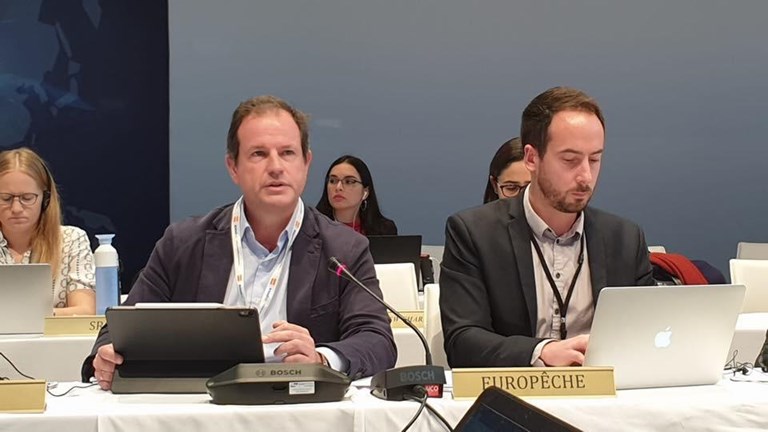
Europêche represented the European fishing fleet at the 27th ordinary meeting of the International Commission for the Conservation of Atlantic Tunas (ICCAT) which just ended yesterday following a week of intensive negotiations via video conference.
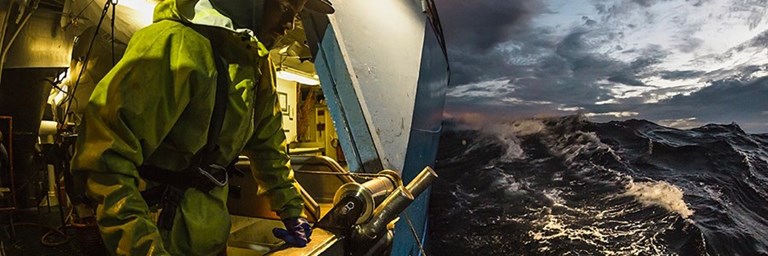
During the plenary session of the European social dialogue committee for sea fisheries held last week, ETF and Europêche adopted a joint resolution establishing benchmark principles aimed at better regulating the proliferation of sustainability labels certifying social conditions on board fishing vessels. The intention is to avoid social-washing labels while stressing the importance of the ILO “Work in Fishing” Convention C188 as guardian of human and labour rights of fishers at sea, which cannot be replaced or substituted by private schemes.
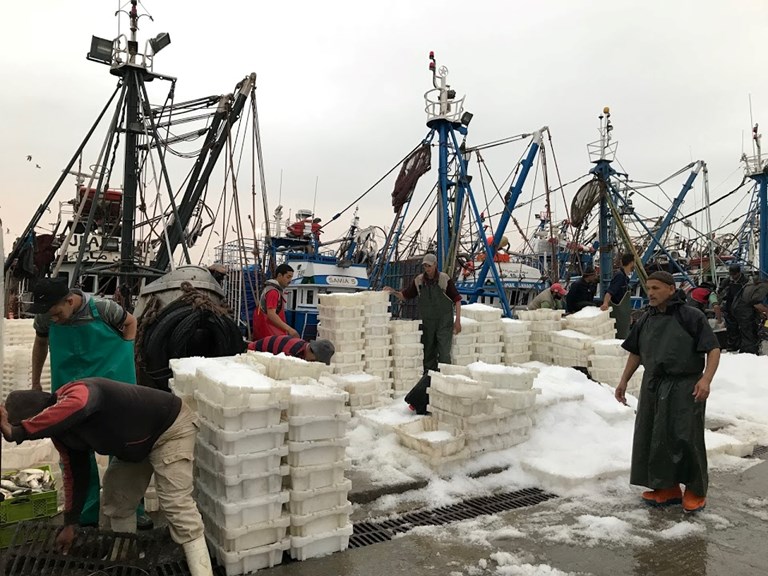
The Joint Euro-Moroccan Commission of Fishing Professionals [1] has met last week to jointly address the options and challenges posed by the ruling of the General Court of the EU that annuls the sustainable fisheries partnership agreement with Morocco. At this meeting, the operators from both sides spoke with one voice. Sector representatives reinstated their commitment to work together with all stakeholders and policy-makers to resolve the situation and prevent any damage to the industry, trade relationship and partnership between the two parties. The Euro-Moroccan Commission will be working on a declaration of intentions that conceptualizes the fishing sector’s vision to ensure that the good cooperation between Morocco and the EU in sustainable fisheries can continue in the future.
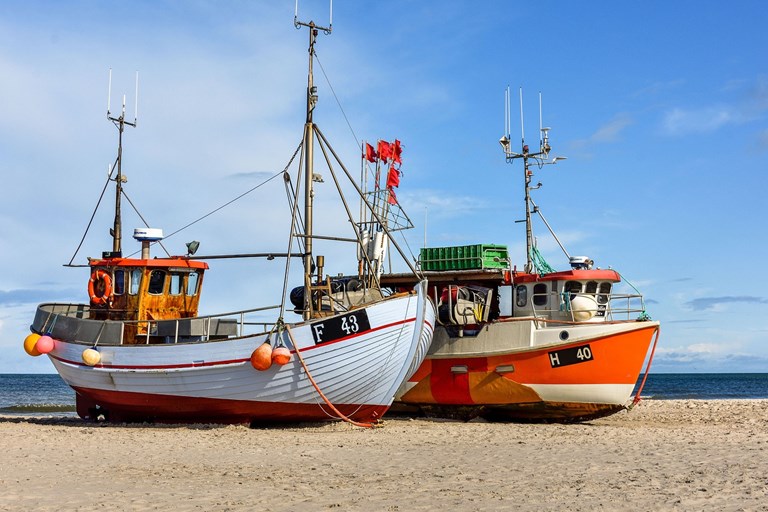
Today, after long hours of discussion in Luxembourg, EU Fisheries Ministers reached an agreement on the catch limits for 2022 for the ten main commercial stocks in the Baltic Sea. Despite the huge quota cuts in the last years for key species such as cod and herring in certain areas, the poor environmental status of the Baltic Sea, and not overfishing, is affecting the sustainability of these stocks. Nevertheless, Ministers have decided to further reduce fishing opportunities for Western and Central herring as well as for Western cod. On the positive side, the Council has agreed to increase fishing opportunities for plaice, sprat, Bothnian herring and Gulf of Finland salmon. Despite these increases, the reality is that 2022 will still remain an extremely challenging year for the Baltic fishers.
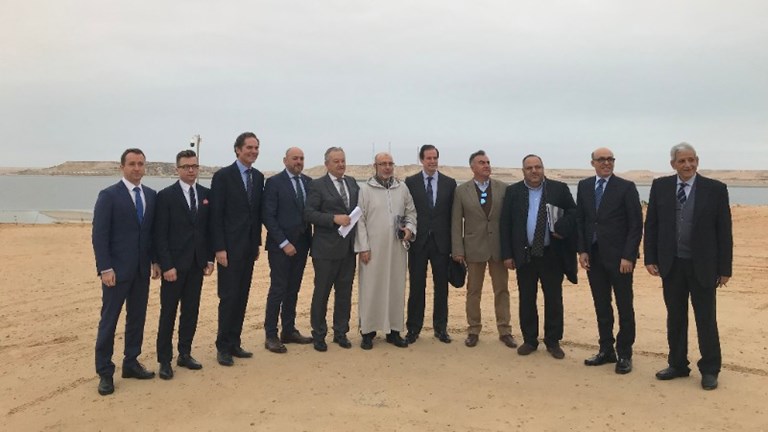
Fishing industry representatives will urgently organize a meeting to address the situation and continue strengthening Euro-Moroccan fishing relations.
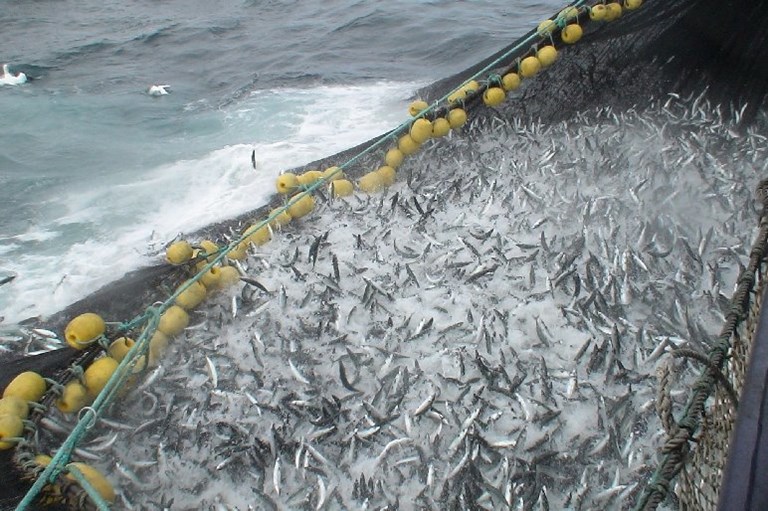
The EU fishing industry is calling for immediate EU action to stop Norway and Faroe Islands in their massive overfishing of the Northeast Atlantic mackerel stock. We reiterate our call on the EU Commission and Council to act swiftly and decisively on this reckless and irresponsible behaviour by using the instruments at its disposal such as trade measures and the IUU regulation.
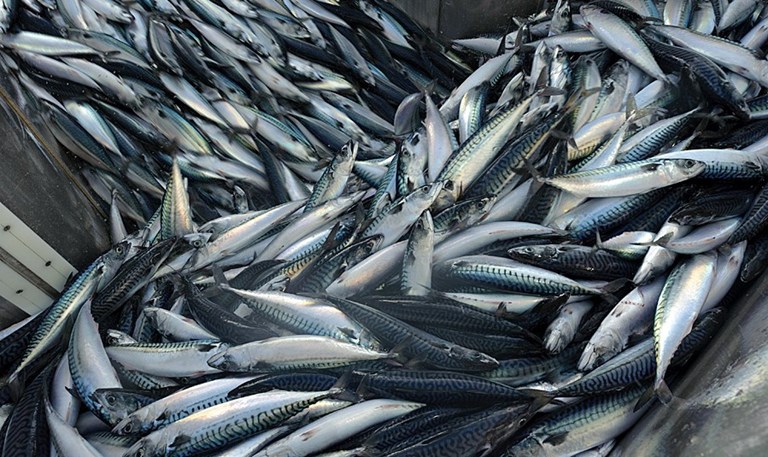
The UK departure from the EU has profoundly altered the fisheries governance and political scenario in the Northeast Atlantic. In a move to take advantage of the new situation, Norway seems to have abandoned the path of dialogue and good cooperation, unilaterally deciding to unlawfully grab EU fish quota. This action not only poses a serious threat over the future of a constructive partnership with the EU but also over the sustainability of important fish stocks such as mackerel and cod. Since 60% of the fish caught by the Norwegians ends up in the European market, EU fishermen urge citizens to stop consuming Norwegian seafood.
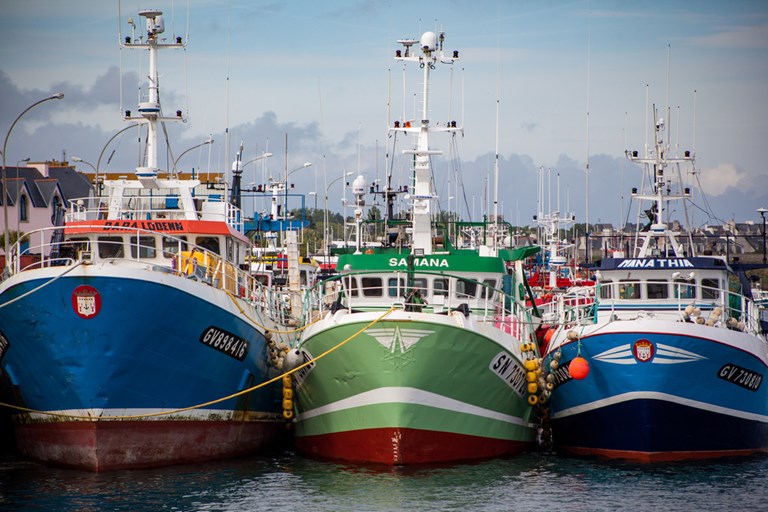
WTO negotiations on fisheries subsidies are now entering the final stage. After two decades of dialogue, trade ministers from 164 countries are resolved to secure an agreement ahead of the ministerial conference of 15 July this year. The European fishing industry represented by Europêche fully sustains the need to curb harmful subsidies globally, similarly to what has been done in the EU in the early 2000’s. In this direction, the fishing sector calls on EU institutions and Member states to defend the public aid system established under EU legislation, including the newly adopted Maritime and Fisheries Fund (EMFAF). Likewise, the sector urges the EU not to succumb to external pressure and defend fuel tax relief schemes. The opposite will drive the fleet to ruin.

The EU pelagic fishing industry, organized under the banners of EAPO and Europêche, strongly rejects the decision made public yesterday by the Norwegian government to unilaterally increase Norway’s share in the mackerel fishery by 55% and is calling on the EU to take immediate action by whatever means to stop it.
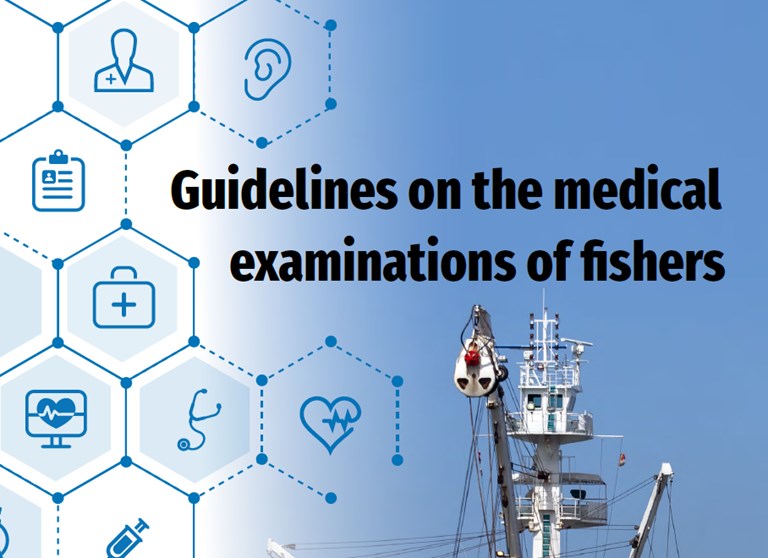
European Transport Workers’ Federation (ETF) and Europêche have published new Guidelines on the medical examinations of fishers, paving the way for the harmonisation of standards for health and fitness checks across Europe and worldwide.
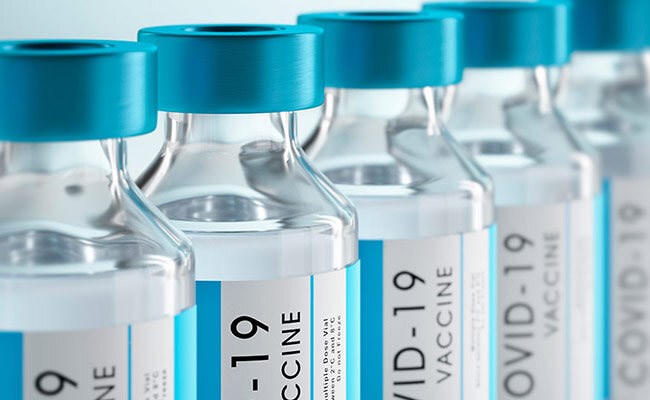
European social partners in the fisheries sector, ETF and Europêche, call on the European Commission to support Member States in developing a specific COVID-19 vaccination protocol for fishers, adapting and prioritizing their access to the vaccine. Considering their recognition as essential workers and the particularities of the fishers' workplaces and working patterns, the social partners have put forward practical guidelines that can help accelerate the process.

This morning, the European Parliament adopted its position on a new set of rules meant to revise the Union Fisheries Control System. In general terms, the Parliament position improves the proposal from the European Commission modernising control and enforcement measures without penalising or creating excessive bureaucracy to fishers. Particularly positive were the changes introducing more flexibility on the margin of tolerance for weight estimates done by fishers on board and the exemption of engine power monitoring devices for fisheries subject to catch limits. However, there is a huge elephant in the room, the mandatory installation of cameras to control a failed EU policy, the landing obligation. In this context, Europêche hopes that governments address this “big brother” issue within the Council in the following months.
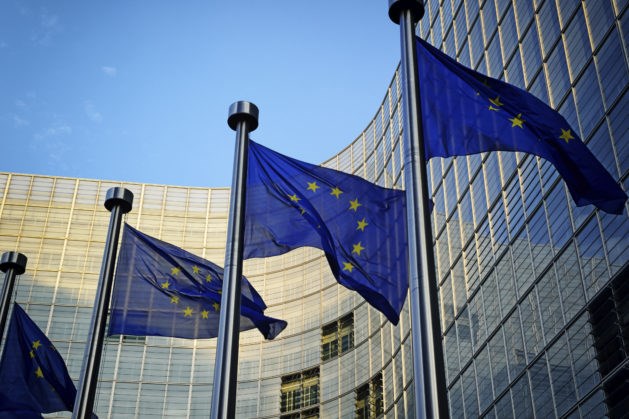
Last Friday an “explanatory note” on the revision of the EU-fisheries control system1 was reportedly circulated by the European Commission services to a few Members of the European Parliament (MEPs), mainly within the Committee on Environment. The note sounded the alarm about the position democratically adopted in the Committee on Fisheries (PECH) which “could reward and legalise underreporting, lead to massive overfishing and allow illegal discards to continue undetected and threaten the sustainable exploitation of marine biological resources”. According to Europêche, these statements unfairly put into question the good record of compliance of EU fleets, damages the image of the sector, lacks empathy with fishers and connection with fisheries’ realities. On top of that, the note clearly interferes the independent co-legislator role of the European Parliament.
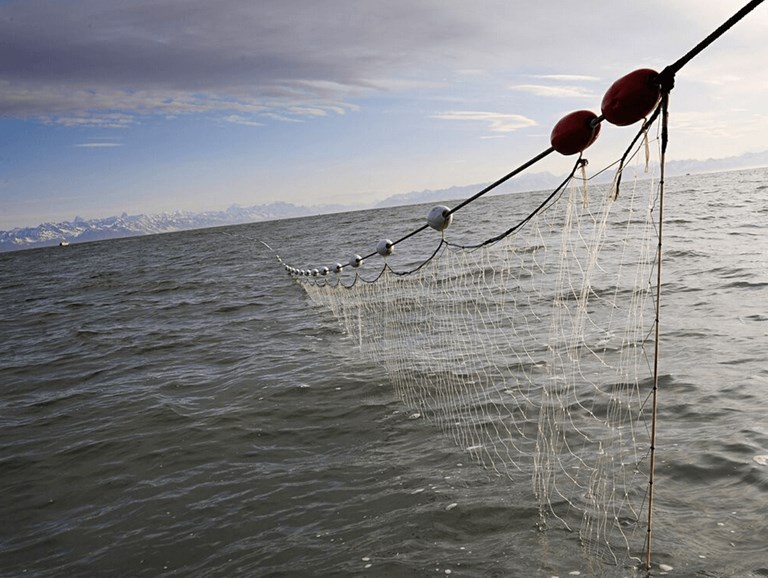
Large pelagic drift nets, are nets of over 2,5-kilometer-long and many meters deep, that are left drifting in the ocean to catch any living creature that happens to swim by. The international community and the EU have long adopted a global moratorium on all large-scale pelagic drift-nets fishing in the world’s oceans and seas, especially to catch migratory species such as tuna. However, their use is still overspread, especially in the Indian Ocean, responsible nowadays for around 20% of the total catches of yellowfin tuna and high levels of by-catch of threatened and protected species such as sharks, marine mammals and turtles. The tuna fishing industry represented by Europêche calls on the EU and IOTC parties to stop turning a blind eye on this long-lasting problem and make a stand against these illegal practices during the next IOTC meeting.
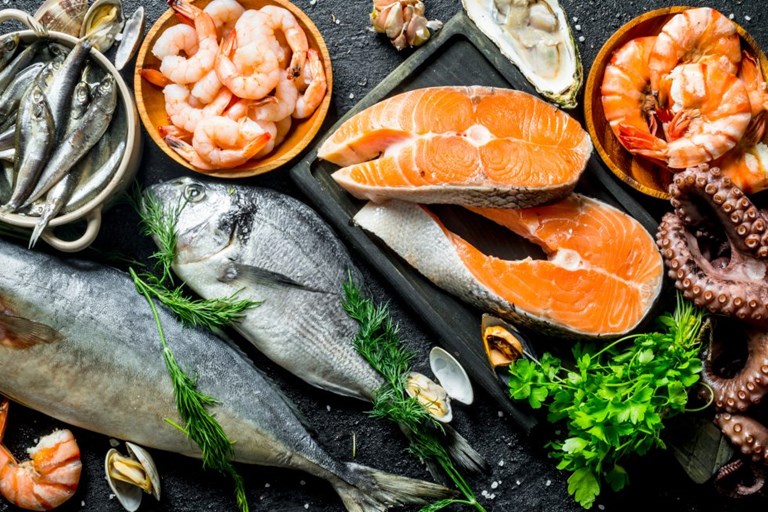
European authorities have set a steady course to make the EU the first climate-neutral continent by 2050. Zero-pollution, preservation of biodiversity as well as healthy and environmentally friendly food systems are some of the priorities that will influence all EU polices in the upcoming years. The European fishing industry has taken a front-runner position, confirming a remarkable cut of its greenhouse gas emissions over the last 30 years while producing the perfect protein for our diets. Europêche seeks now a new narrative that recognises the sector as part of the solution to global environmental threats. Europêche is ready to challenge some of the myths surrounding the fishing industry and show the hard work of fishers that goes into putting sustainable seafood on our plates, reminding that EU-produced wild fish is the healthiest and lowest carbon footprint choice to feed the world and combat climate change.
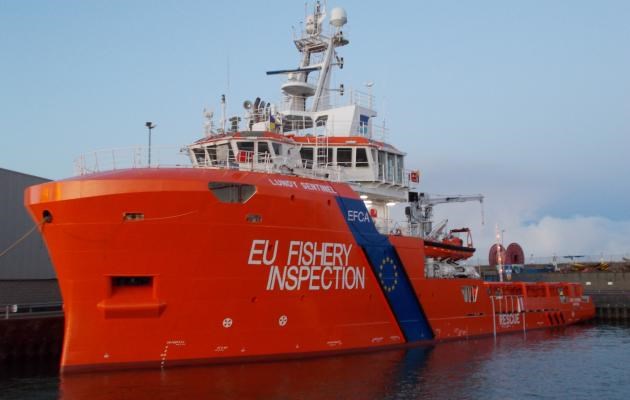
Yesterday, the European Parliament Committee on Fisheries voted on more than a thousand amendments on a new set of rules meant to revise the Union Fisheries Control System. In general terms, the Parliament position improves the proposal from the European Commission modernising and simplifying the control and enforcement measures adopted back in 2009 without creating unnecessary economic and bureaucratic burdens to the fishing industry. The sector appreciates these efforts although still some remaining issues in the Commission’s proposal must be addressed. In this context, Europêche hopes that the agreement found in the Fisheries Committee stands in the upcoming Parliamentary Plenary session.
Comunicados de prensa 2020
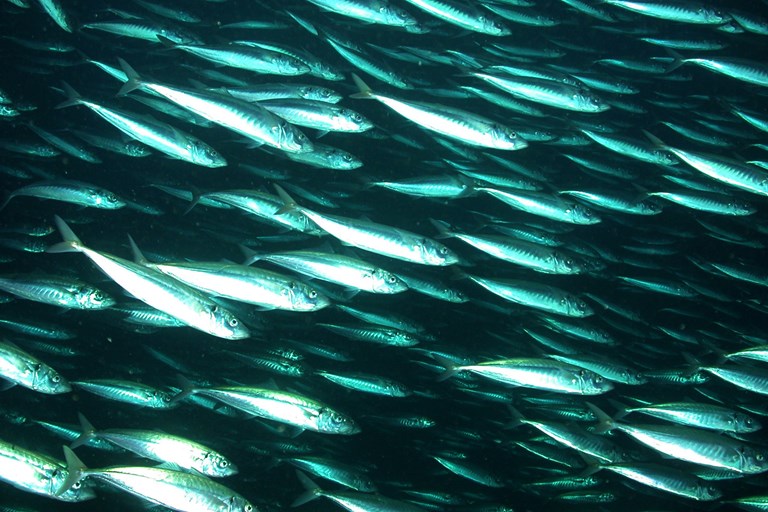
Today, the Fisheries Council has reached an agreement on the fishing opportunities in the Atlantic, North Sea, the Mediterranean and Black Sea for 2021, and for deep-sea stocks for 2021 and 2022. The catch limits are set in the background of the uncertainty surrounding Brexit and the COVID-19, for which this and next year will be one of the most difficult periods for EU fishers. Despite the Council’s efforts to mitigate the predominantly austere proposal from the European Commission, the fishing industry is still left with several quota reductions and restrictive measures adopted concerning key species for the livelihoods of many fishermen and women in the sector.
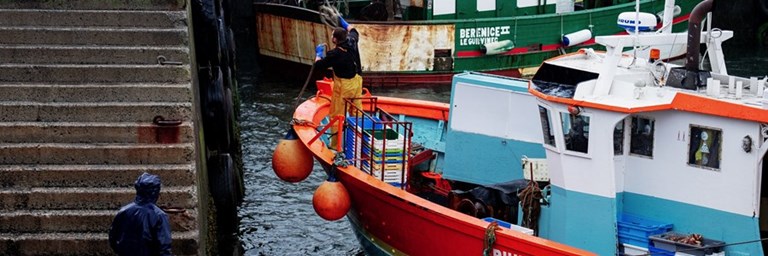
Following a marathon meeting last night, EU decision-makers agreed on the new European Maritime Fisheries and Aquaculture Fund (EMFAF) as part of the package of the Multiannual Financial Framework (MFF). The new fisheries fund will cover the budgetary period 2021-2027 with a financial envelope of €6.108 billion (in current prices). Europêche welcomes the timely consensus on the new regulation before the end of the year as well as the simplification and flexibility offered by the new fund. However, the sector regrets the budget decrease.
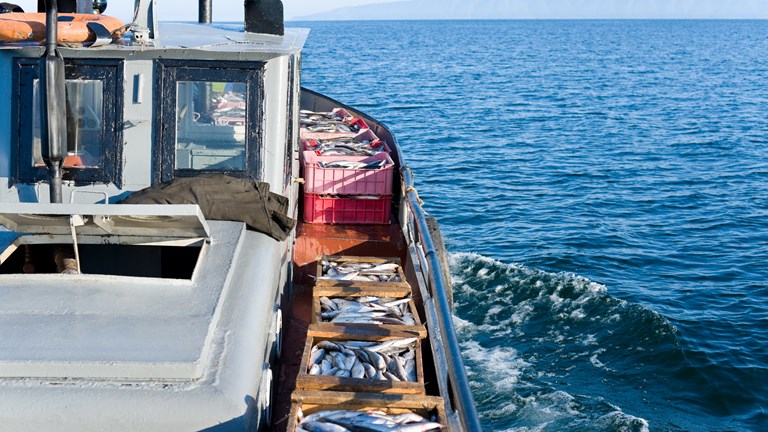
The European Social Partners in the Sea Fisheries Sector (ETF and Europêche) were proud to host yesterday a webinar on the ILO Work in Fishing Convention (C188) considering its value in ensuring effective protection of the rights of fishers at global level. The event was successfully organised in collaboration with the International Labour Organization (ILO), the European Commission and representatives of important fishing nations such as France, the Netherlands, Denmark and the United Kingdom. High-ranked panellists widely called for the ratification and implementation of the ILO C188 and its EU equivalent, EU Directive 2017/159, by addressing the barriers and the benefits of implementing the social standards established in the C188 for the protection of workers.
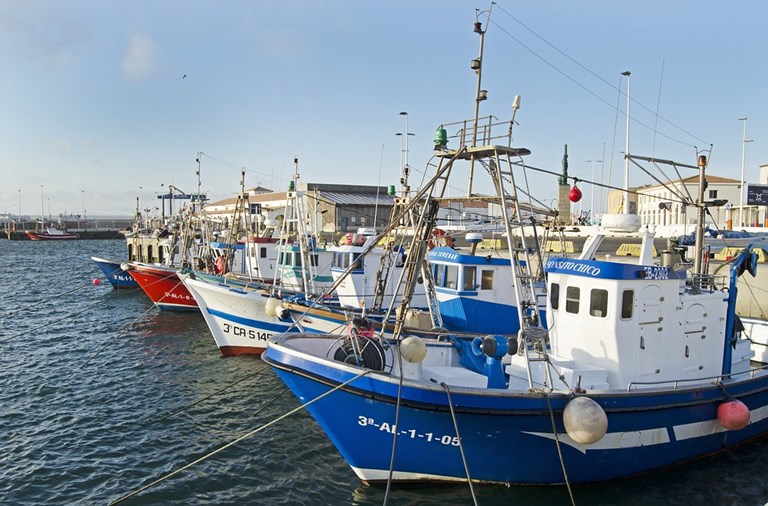
The Secretary General of the Spanish Fisheries Confederation (CEPESCA), Javier Garat, has been re-elected as President of the European Fisheries Association, Europêche. The Dutch representative, Gerard van Balsfoort, President of the Pelagic Freezer-Trawlers Association (PFA), and the French delegate, Marc Ghiglia, Chief Executive of the United Fishing-Vessel Owners’ Organisation of France (UAPF) have also been re-elected as vice-presidents. The management team appointment was unanimously agreed by members of Europêche during the General Assembly held today. Europêche, the foremost trade body representing the fishing industry in Europe, continues relying on the expertise of the board to address the many challenges faced by the sector and promote a new narrative to refresh the image of the sector.

At the Plenary meeting held yesterday, the EU Social Partners in the Fisheries Sector – Europêche, Cogeca and ETF - welcomed the presentation of the Parliamentary draft report “Fishers for the future: Attracting a new generation of labour to the fishing industry and generating employment in coastal communities” of the Member of the European Parliament, Manuel Pizarro. While acknowledging the report as an important step in the right direction, social partners call on the policy-makers to recognize the key social dimension of fishing, thus improving the health and safety of fishers and attracting youth to the sector.
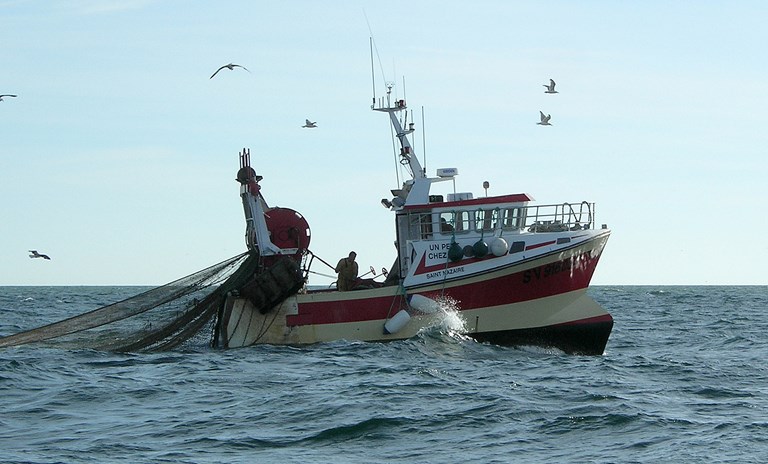
Last year the EU adopted a Multiannual Management Plan (MAP) of demersal fisheries in the Western Mediterranean that regulates the fleets, mainly trawlers, from Italy, France and Spain. Back then, the sector criticised the introduction of severe spatial-seasonal trawl closures and the harsh reduction of the activity at sea from the first year of implementation of the new rules. The fishing industry strictly complied with these measures even though undermined the viability of the Mediterranean fleets. Fishermen, now facing the consequences of the COVID-19, fear further cuts which would lead to a considerable decline in the number of fishing vessels, jobs and fish supply.

810.000 tonnes of imported fish will annually benefit from massive tariff derogations regardless of their origin, way of production, sustainability of the stock, labour standards or even if the third country has been identified by the EU for illegal, unreported and unregulated (IUU) fishing.
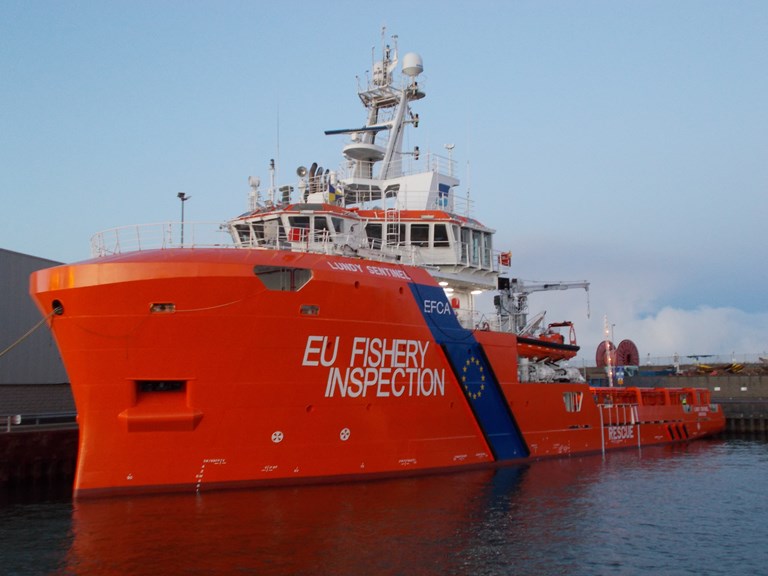
A robust EU control system is critical to ensure that seafood products sold in the EU are sustainably sourced, fully traceable and properly monitored by Member States.
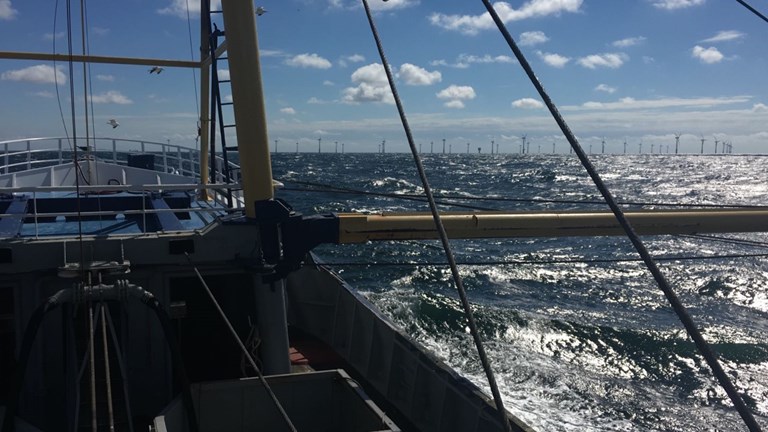
As part of the Green Deal, the European Commission has announced the goal to increase the EU’s offshore energy production twenty times to achieve climate neutrality by 2050. The European Commission aims to meet this target while at the same time managing the maritime space sustainably. A recent study [1] commissioned by the EU Executive body puts forward a set of recommendations for positive interactions between fisheries and offshore wind farms. The fishing sector is sceptical about the main findings of this study which downplays the conflicts and echoes the myth of a so-called “happy co-existence” built by the wind energy sector. Likewise, the authors neglect the negative environmental impacts of windfarms and even more so the socio-economic consequences on the fishing communities.

Europêche has presented today a request to the European Commission for the initiation of an anti-dumping investigation concerning imports of tuna processed loins - mainly skipjack - originating in China, which are causing serious economic damage to the European fishing industry. The information furnished by Europêche to the European authorities discloses the existence of unlawful aids and tax breaks allegedly granted by the Chinese Administration to the Chinese exporters of both tuna loins and canned tuna. The European fishing sector urges the EU to eliminate any present and future tariff derogations granted to tuna loins, which mainly come from China, to mitigate further market and economic disruption.

Charlina Vitcheva, the new Director General of the DG for Maritime Affairs and Fisheries, was welcomed yesterday by the representatives of the European fishing sector, Europêche and EAPO. The meeting allowed the fishers' representatives to present and discuss the key topics with Ms Vitcheva.
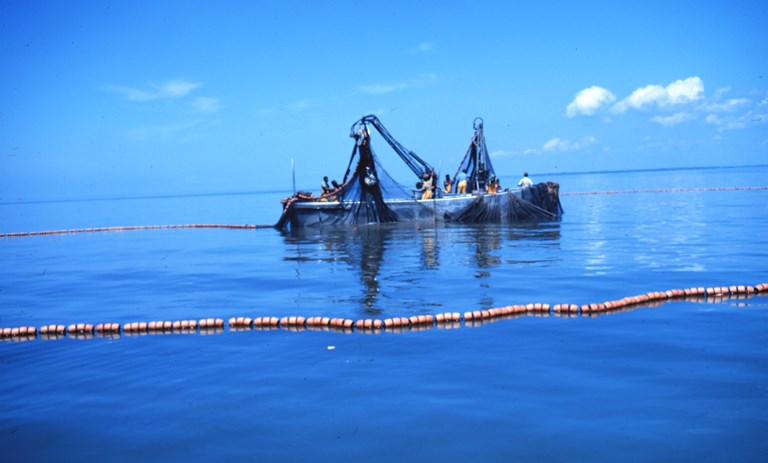
This week, the Food and Agriculture Organization of the United Nations (FAO) has unveiled its famous biannual report on the state of the World’s Fisheries and Aquaculture 2020 (SOFIA) that monitors global trends on fish production and consumption with a focus on sustainability [1]. The report brings about good news evidencing an increase of global capture fisheries production and an increase of seafood consumption, while confirming that the vast majority of landings come from biologically sustainable stocks.
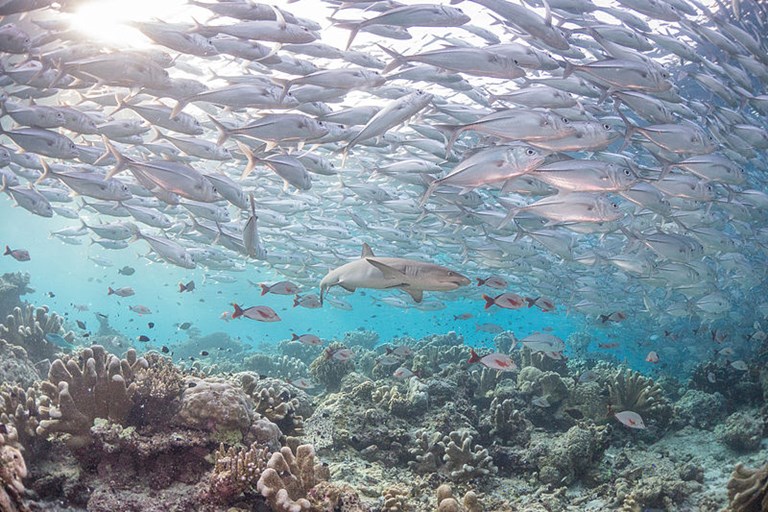
The European Commission has unveiled today its proposal for an EU Biodiversity strategy calling for urgent action to protect nature in the EU and worldwide. The strategy claims to set up a full transformative plan towards an EU environmentally-friendly food production system that preserves and restores biodiversity. Europêche agrees that the EU must be ambitious in setting high environmental standards but not at the cost of increasing imports and lowering EU food production. EU fishermen oppose the new strategy since it is discriminatory, undermines the viability of the sector by decreasing its productivity and capacity to invest in improving social and environmental performance, further restricting the sustainable use of the oceans, subjecting fish products to additional taxation and making fisheries the target of discrediting campaigns.
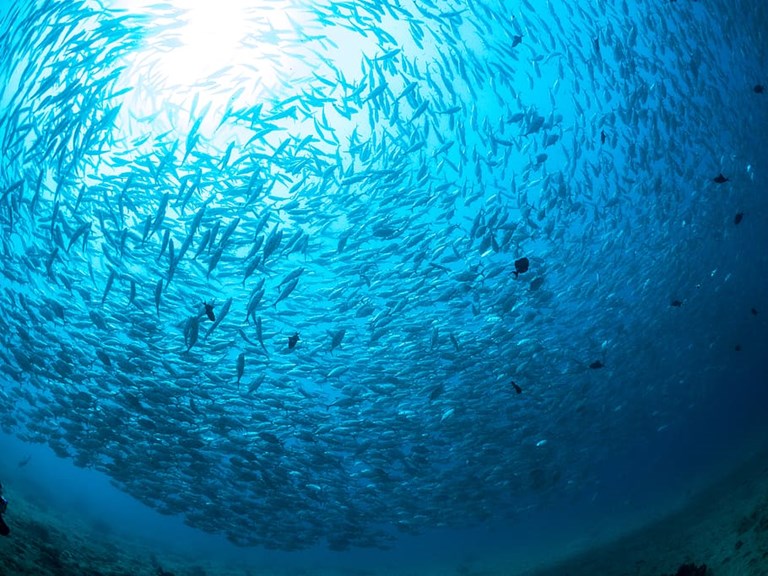
The European Scientific, Technical and Economic Committee for Fisheries (STECF) annual report[1] on the performance of the Common Fisheries Policy (CFP) brings excellent news for another year on the good progress on the state of EU fish stocks. The scientific report shows a substantial drop in fishing pressure over the period 2003-2018 in the North-East Atlantic. On average, for all the stocks evaluated in this area, fishing pressure has been reduced almost by half in the last 20 years, reaching maximum sustainable yield levels (MSY) for most of them. As a consequence, fish populations have been increasing significantly, reaching in 2018 levels 50% higher than in 2010. However, further efforts are still needed, particularly in the Mediterranean.
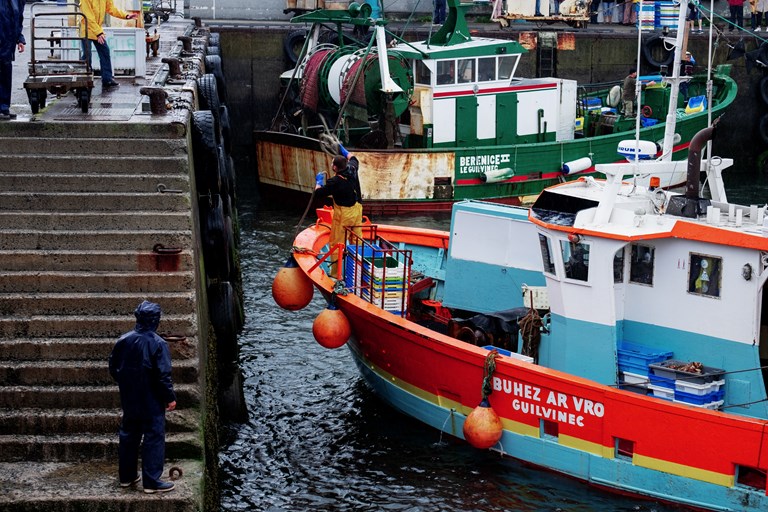
Today, the European Parliament and this week, the Council of the EU, in a coordinated and concerted effort, swiftly adopted their position on the European Commission proposal establishing a set of ambitious measures under the European Maritime & Fisheries Fund (EMFF) to tackle the impact of the Covid-19 pandemic in the fisheries sector. The EU Social Partners in the Fisheries Sector - Europêche and ETF - welcome the positive step forward towards the final adoption of this legislative proposal which will provide much-needed support to fishermen. The sector looks forward to a speedy and flexible implementation of the provisions in the Member States.
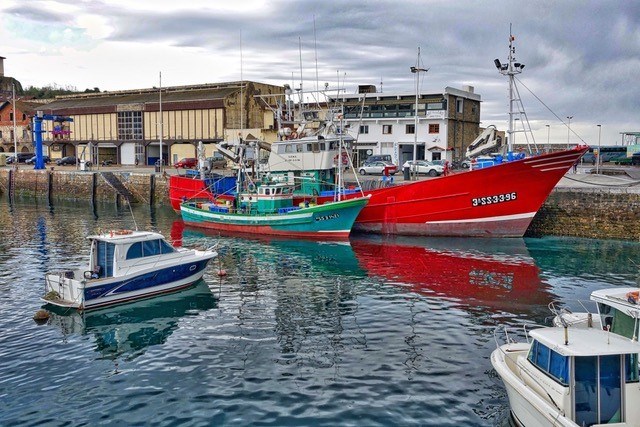
The European Commission today published a legislative package in response to the severe economic impact of the COVID-19 pandemic on the fishing industry. The proposed framework unlocks existing EU funding and market schemes to support affected fishers. The EU fishing industry welcomes the emergency measures proposed by the Commission to try to mitigate the adverse effects of those who are being directly threatened by the crisis and to calm the tension in our markets. The sector looks forward to a quick adoption by EU authorities allowing a speedy and flexible implementation of the provisions in the Member States. The Industry is disappointed that no extra-funding is included and is calling that this be addressed as a matter of urgency in light of the fact that otherwise the measures proposed will not be effective to cope with the unprecedented crisis.
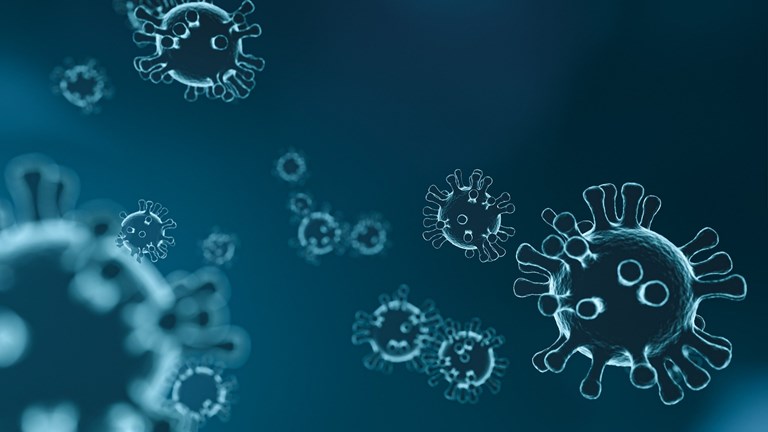
The EU fishing sector has presented to European authorities the critical measures that have to be taken in order to overcome the operational, commercial, and safety problems that the sector has only begun to endure and which will inevitably and without doubt worsen in the coming weeks due to the protective measures taken against the spread of the COVID-19. The primary concern of the sector is the continuity of fishing activities and food supply to EU citizens. Measures are also needed for those vessels forced to cease operations.
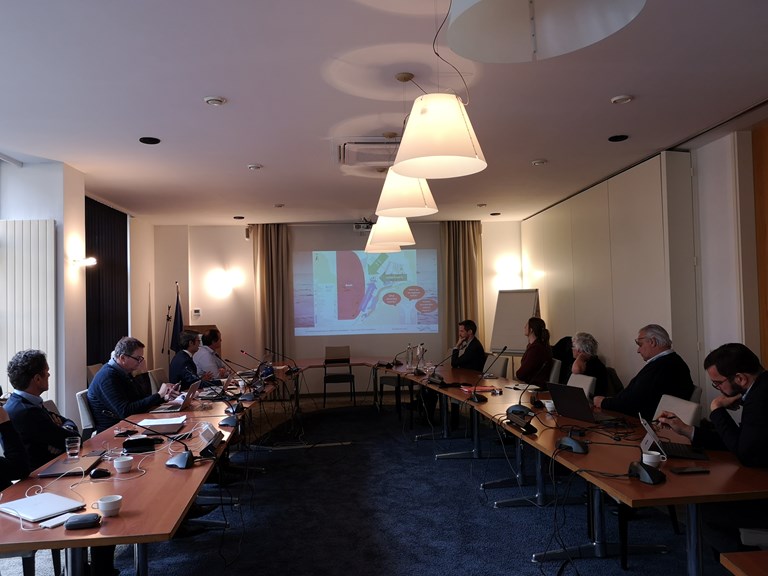
The newly elected chair of the European Parliament Committee on Fisheries (PECH) Pierre Karleskind (Renew Europe, FR), was guest of honour at last week's Europêche General Assembly meeting to discuss the many pressing issues faced by the fishing sector.
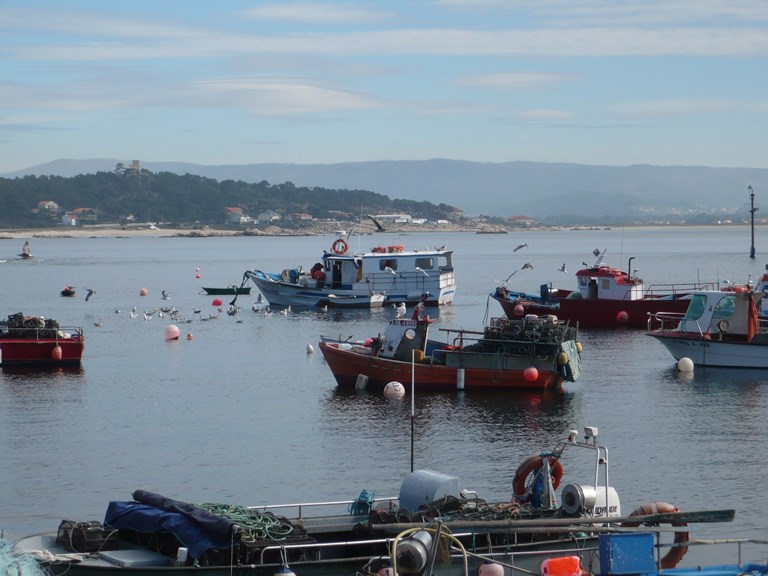
Currently representing around 198 fishermen's associations (also known as “cofradías”), 30,000 affiliates and 8,000 small-scale fishing vessel-owners, the Spanish National Federation of Cofradías (FNCP, according to its Spanish acronym) has become the latest full member to join Europêche as of 1st February 2020. The European fishing body welcomes the new member aboard which further confirms Europêche as the largest fishing trade organisation in Brussels.
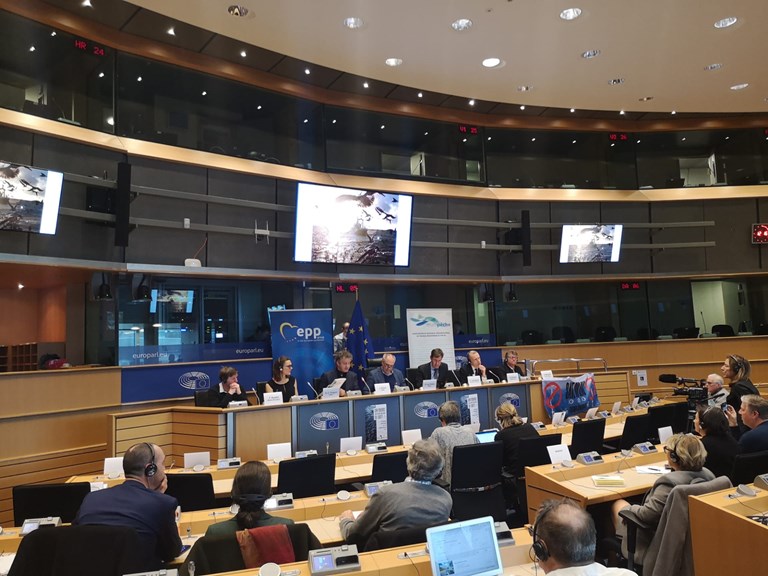
On 22 January 2020, the seminar ‘Can Fisheries and Offshore Wind Farms Coexist?’ took place in the European Parliament hosted by MEP Peter van Dalen (NL-EPP group), vice-president of the Fisheries Committee [1]. The event brought together a large spectrum of stakeholders, including scientists, wind industry representatives, NGOs, legislators, and small-scale fishers from Belgium, France, Germany, the Netherlands and Portugal that are impacted by or exposed to existing or planned offshore wind farms. These EU fishers, representing small and medium family owned businesses, shared their experience and concerns on the increasing competition over the maritime space which is leading to the loss of valuable fishing grounds and access to healthy stocks.
Comunicados de prensa 2019
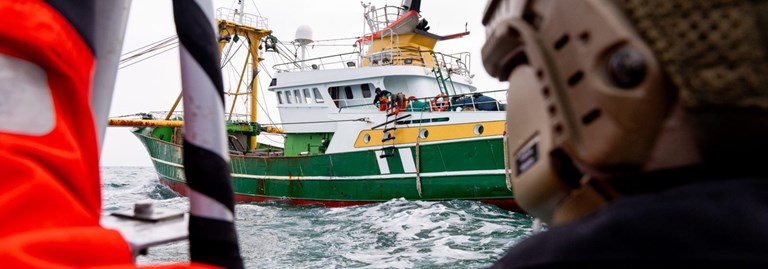
European organisations representing the fishing, fish processing, aquaculture and trading sectors are calling on the European Commission to urgently correct and recalibrate the implementation of the EU Fisheries Control Regulation, including the CATCH IT system. In line with the joint statement submitted by Member States to the Agriculture and Fisheries Council , the sectors urge swift, targeted actions to address provisions that are proving unworkable in practice and that risk undermining safety at sea, legal certainty and the competitiveness of EU operators.
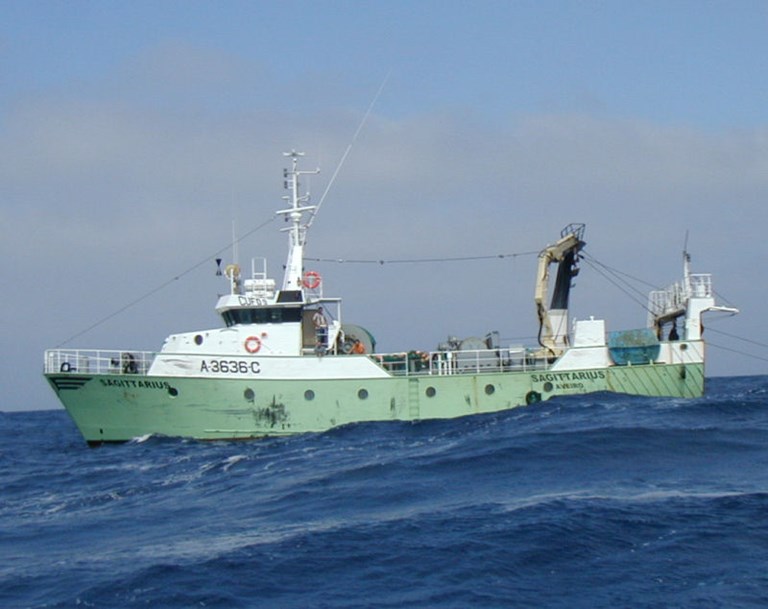
Europêche, the leading representative body of the European fishing sector, is pleased to announce the adhesion of ADAPI (Association of Industrial Fishing Shipowners) as its newest member. ADAPI’s adhesion further strengthens Europêche’s broad, inclusive and geographically balanced representation of fishing enterprises across the European Union, ensuring that the interests of the Portuguese fishing fleet are effectively represented in European policy-making.
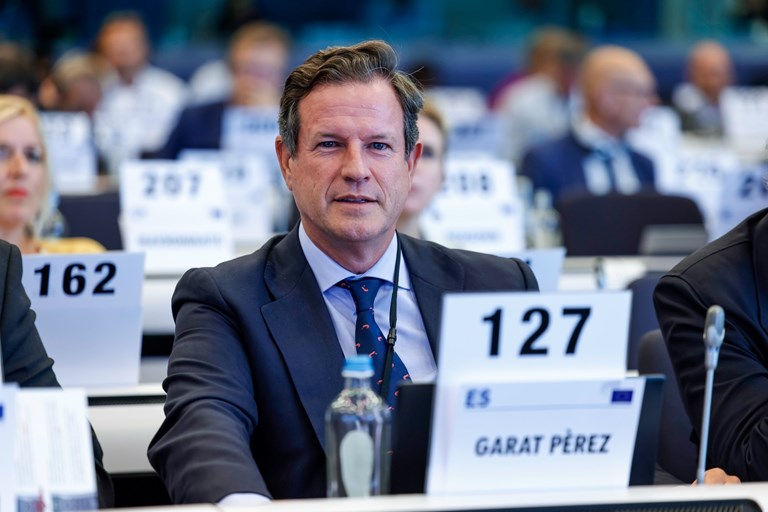
Europêche, the representative body of the European fishing sector, strongly welcomes the adoption by a large majority of the European Economic and Social Committee (EESC) Opinion calling on EU institutions to secure a minimum and mandatory allocation of €6.1 billion for the implementation of the Common Fisheries Policy (CFP) for the 2028–2034 period.
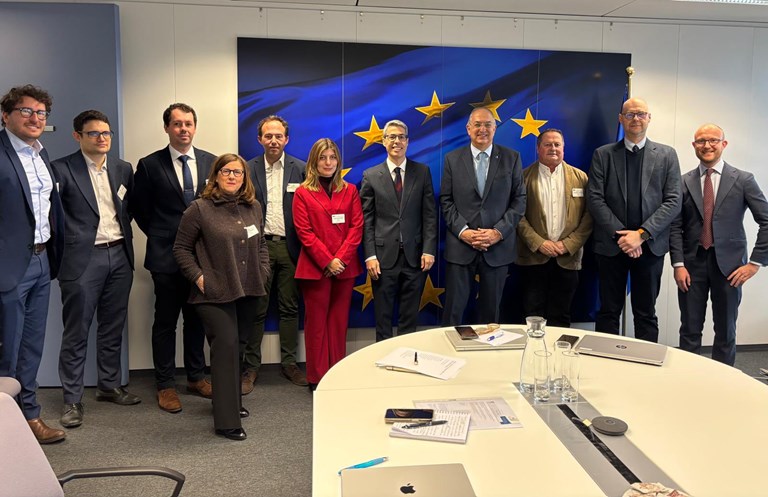
Representatives of the European blue economy value chain met yesterday with Commissioner Costas Kadis, European Commissioner for Fisheries and Oceans, to discuss the forthcoming Roadmap for the Energy Transition of Fisheries. The meeting brought together SEA Europe, Europêche, Copa-Cogeca, the European Transport Workers’ Federation (ETF) and the European Association of Fish Producers’ Organisations (EAPO), representing fishers and aquaculture producers, producers’ organisations, cooperatives, workers, shipyards and maritime equipment manufacturers. The organisations reaffirmed their full commitment to the decarbonisation and long-term sustainability of blue economy sectors, while stressing that progress is currently being held back by EU regulatory constraints, limited access to finance and insufficient investment certainty.
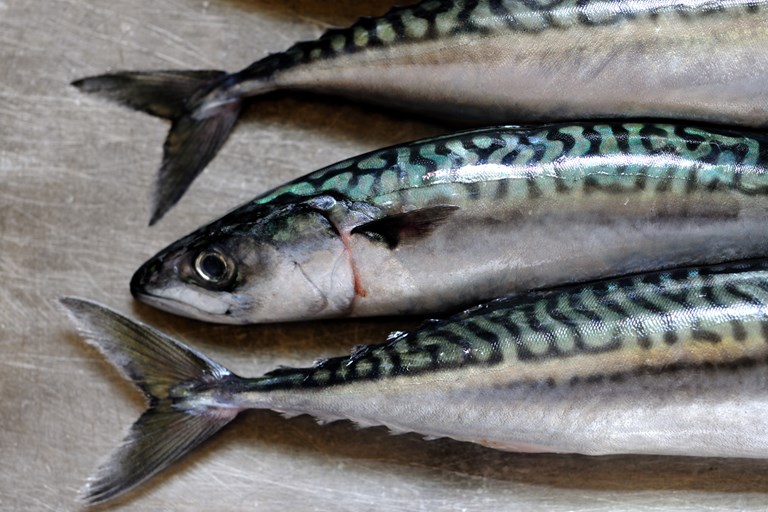
The EU fishing industry is deeply disappointed by the partial mackerel sharing arrangement agreed between the UK, Norway, the Faroe Islands and Iceland. With the four parties opting for a total catch limit of 299,010 tonnes for 2026, there is now a formal disruption of the level playing field, with the EU following the ICES headline advice. The EU industry calls on the EU to do everything in its power to repair the imbalance, to act against institutionalised overfishing, and help broker a fair comprehensive agreement between all Coastal States.
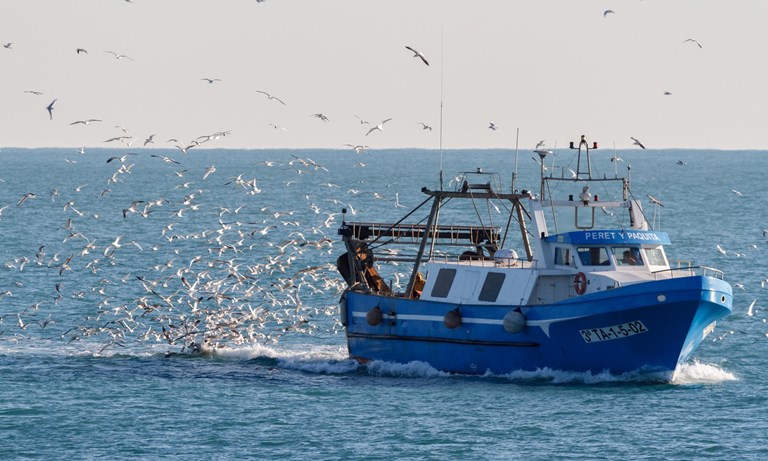
The European Social Partners in Fisheries express their deep concern and strong opposition to the European Commission’s proposal for Mediterranean fishing opportunities for 2026. The measures, representing some of the most severe cuts ever imposed, risk dismantling an entire sector already pushed to its limits, putting at stake thousands of jobs, family livelihoods and the socio-economic fabric of coastal communities across the region.
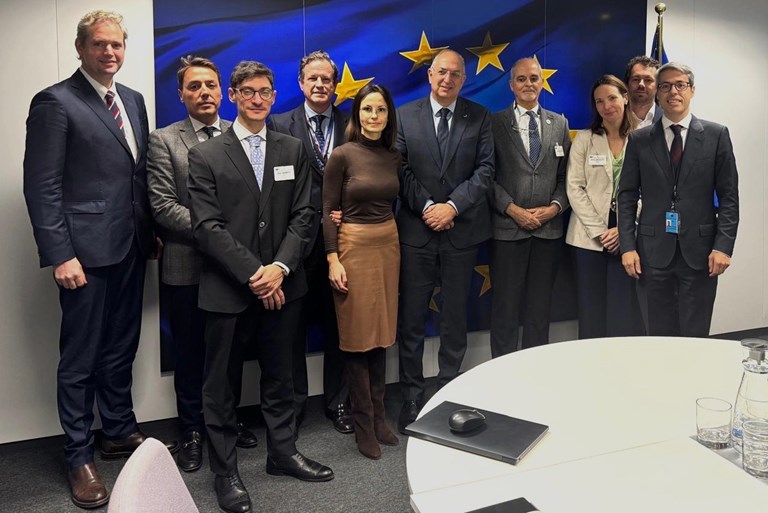
EBCD and the EU Seafood Alliance (Europêche, EAPO, FEAP and Seafood Europe) met with Costas Kadis, Commissioner for Fisheries and Oceans, to discuss their shared priorities for the future of consumption of EU aquatic food in the EU.
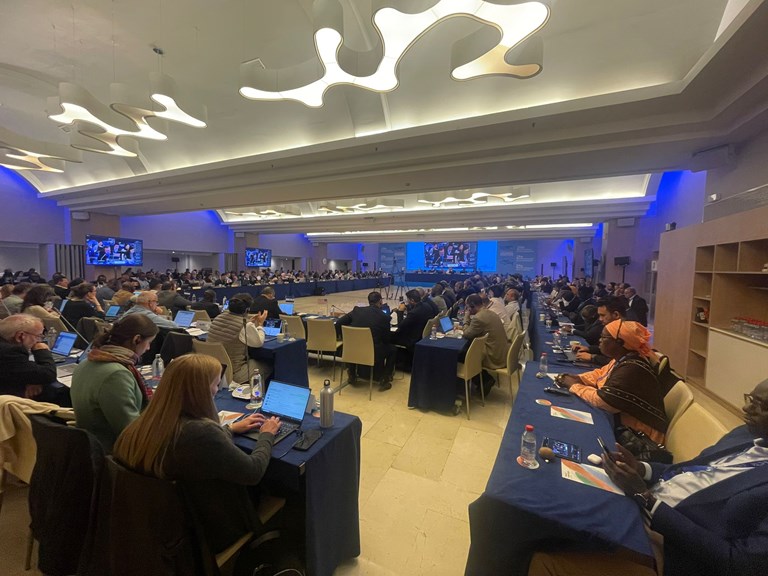
ICCAT updated catch limits and allocation for bluefin tuna, showing once again the Regional Fisheries Management Organisation’s capacity to generate consensus. However, despite, or perhaps because of, the extremely high number of proposals, ICCAT ended up concentrating almost exclusively on this decision and other pressing issues were left to the shadows.
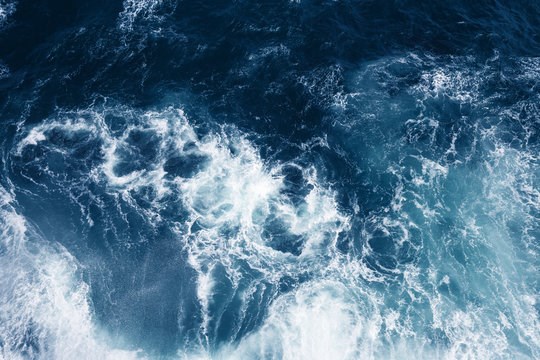
Last week’s NEAFC Annual Meeting again showed that decision-making in Northeast Atlantic fisheries management has become deeply flawed and needs urgent review. Instead of trying to improve management of pelagic stocks and engaging in good faith, parties cold-shouldered each other and appeared to enter into (geo)political games. Proceedings also showed the Russian Federation re-emerging as a pivotal player, openly supported by some of the other delegations.
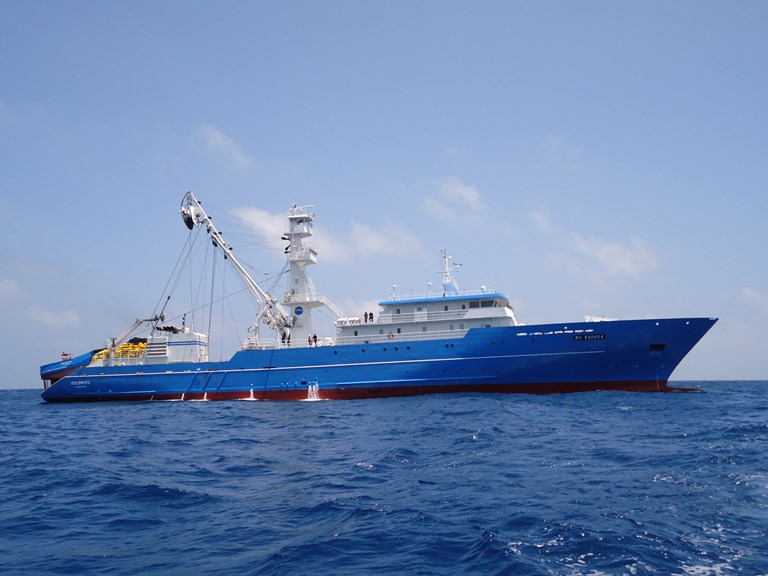
Europêche, the leading representative body for the fishing sector in Europe, stresses the need to fully integrate fisheries into EU trade policy to safeguard fair competition, sustainable seafood and the long-term viability of the EU fleet.
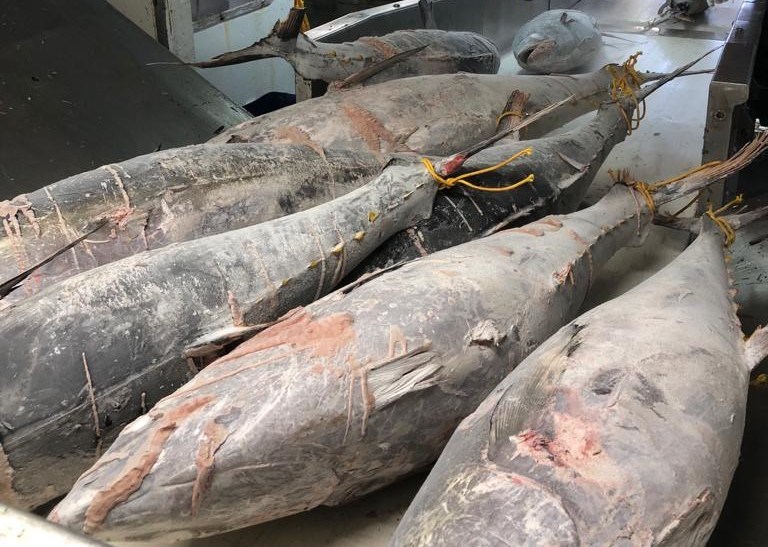
Europêche welcomes the adoption of Regulation (EU) 2025/1444 setting strict brine-freezing conditions for tuna purse seiners. For once, a European regulation rightly recognises and values the high sanitary and technological standards already applied by the European tropical tuna purse seine fleet, that only responsible operators can meet.
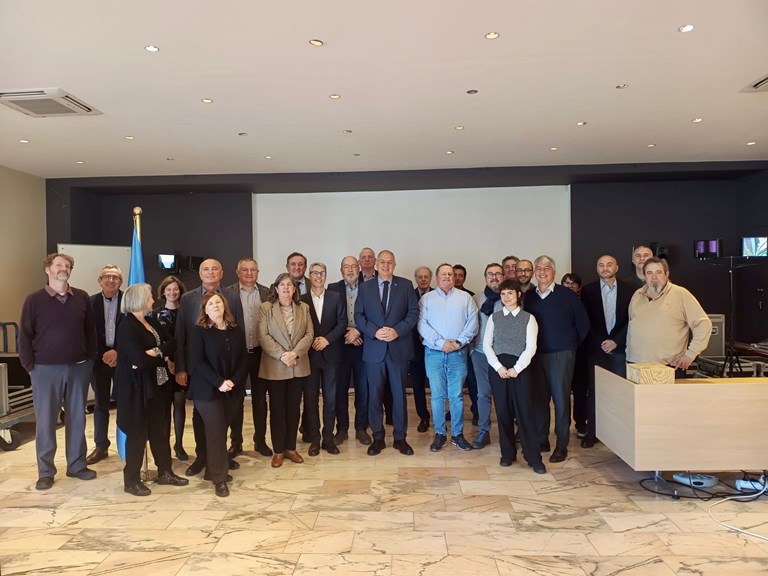
Fishers took centre stage yesterday as Commissioner Costas Kadis met with the European Social Partners — ETF, Europêche, and Cogeca— to shape the future of Europe’s fisheries. The discussion focused on ensuring fair jobs, economic resilience and social sustainability in the sector, while addressing key EU policy priorities including the Multiannual Financial Framework (MFF) 2028–2034, the European Oceans Pact and Vision for Fisheries 2040, and the evaluation of the Common Fisheries Policy (CFP).
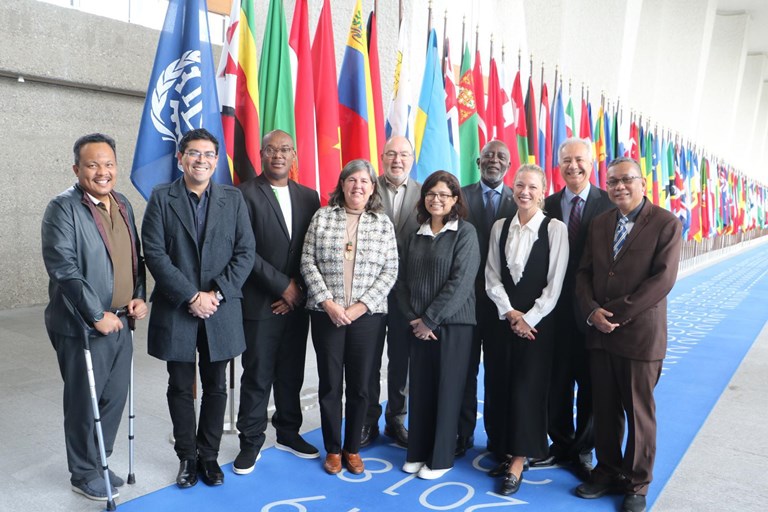
Europêche, the representative body of Europe’s fishing sector, welcomes the successful conclusion of the Meeting of Experts on Guidelines for Fair Labour Market Services for Migrant Fishers, held under the auspices of the International Labour Organization (ILO) from 27 to 31 October 2025 in Geneva.
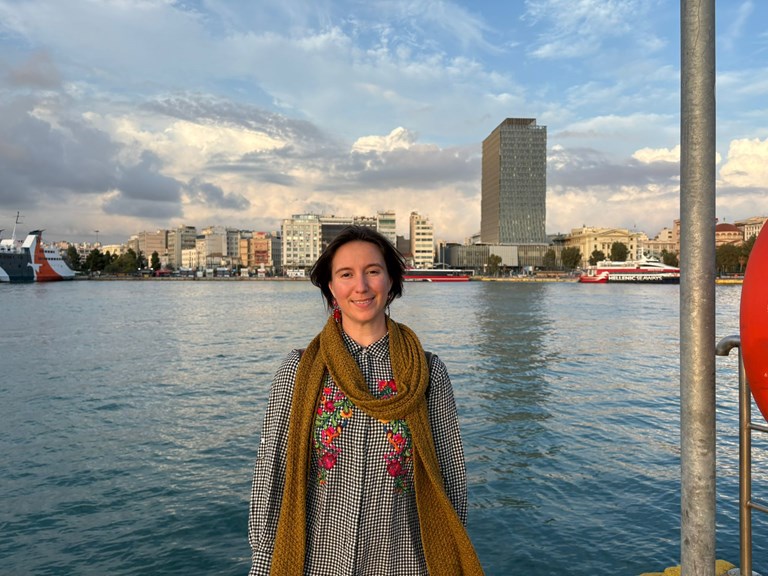
Europêche, the representative body of Europe’s fishing sector, has appointed Margot Angibaud as senior policy advisor to reinforce the organisation’s commitment to sustainable bottom fishing and amplify the sector’s voice in EU and international decision-making. With this move, Europêche aims to intensify its advocacy for the EU fleet by promoting sustainable ocean governance, showcasing the sector’s achievements, boosting business competitiveness and securing a level playing field.

Europêche welcomes today’s political agreement by EU fisheries ministers on the 2026 catch limits for key Baltic Sea fish stocks. The sector particularly recognises that the final Council agreement represents a major improvement compared to the initial European Commission proposal, which would have resulted in the closure of many fishing companies across the Baltic region. The decision more effectively balances environmental sustainability with socioeconomic realities in setting Total Allowable Catches (TACs). For key species such as cod and Western herring, the revised measures will help preserve a minimum level of activity and maintain the viability of remaining fleets while continuing to support stock recovery.
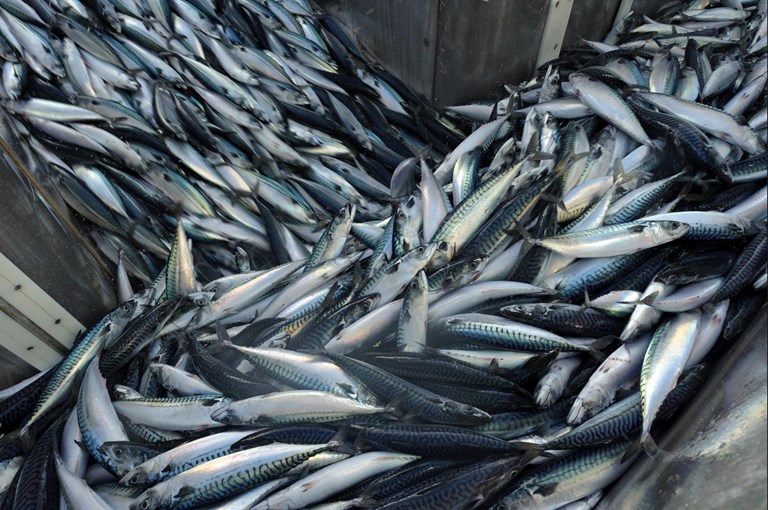
On the eve of the next round of Coastal States consultations on mackerel, the EU fishing industry urges once again decision-makers to finally agree on a comprehensive sharing arrangement for this stock. If this fails, fishers would welcome an interim emergency arrangement for 2026. In the meantime, the industry reminds consumers and retailers that EU mackerel remains responsibly sourced mackerel.
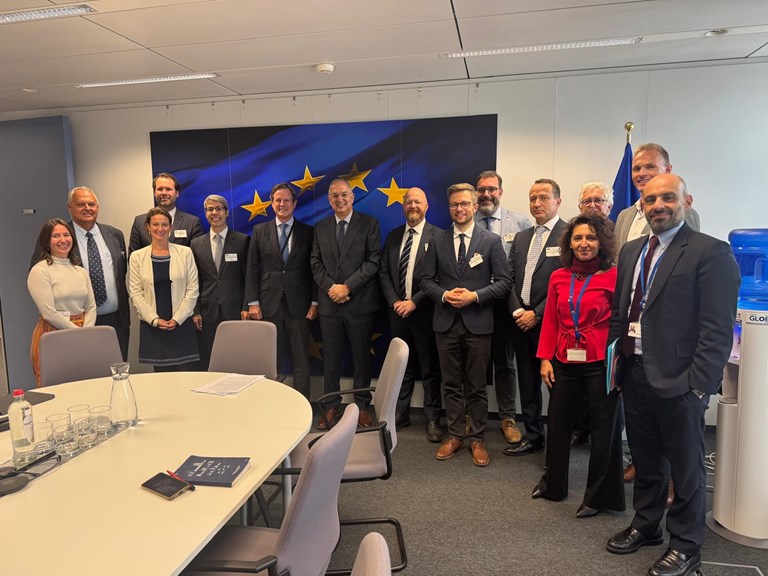
Europêche, the representative body of the EU fishing industry, held high-level meetings last Friday with Commissioner Kadis and Fisheries Attachés from 12 Member States, under the Danish Presidency, to discuss the critical challenges ahead for European fisheries. The dialogue took place against the backdrop of decisive policy discussions on the future EU budget (2028–2034), fishing opportunities for 2026, ongoing negotiations with third countries, and the implementation of new control measures and trade agreements.
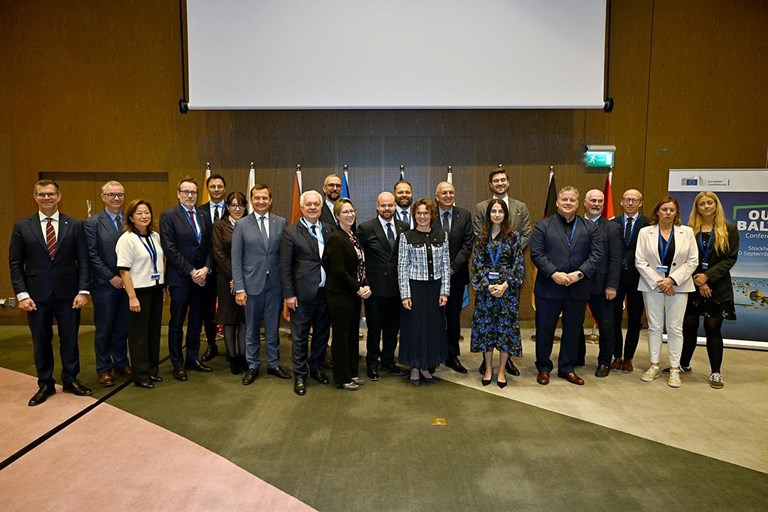
Yesterday, the European Commission hosted the Our Baltic Ministerial Conference in Stockholm to discuss the future of the Baltic Sea, with the participation of ministers from the Baltic region and the EU Commissioner for Fisheries and Oceans, Costas Kadis. This event marked the first initiative under the Ocean Pact on fisheries matters. In this context, Europêche urges the European Commission, Member States and the European Parliament to swiftly agree on a binding recovery plan for the Baltic Sea.
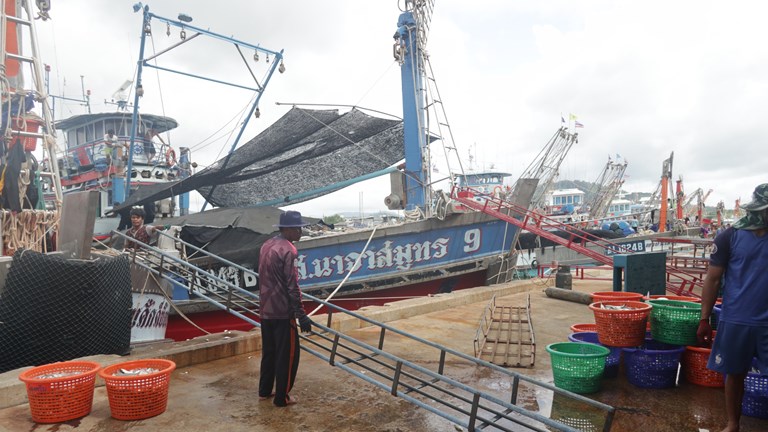
Starting on September 29, the European Commission will kick off a new round of negotiations on the draft free trade agreement (FTA) between the European Union and Thailand. According to the European Commission, tuna production is one of Thailand’s priorities on the Free Trade Agreement negotiations with the EU[1]. The United States’ decision to increase tariffs for Thailand will likely increase this interest for the European market. Europêche, the leading representative body for the fishing industry in Europe, calls for the exclusion of tuna products from this agreement.
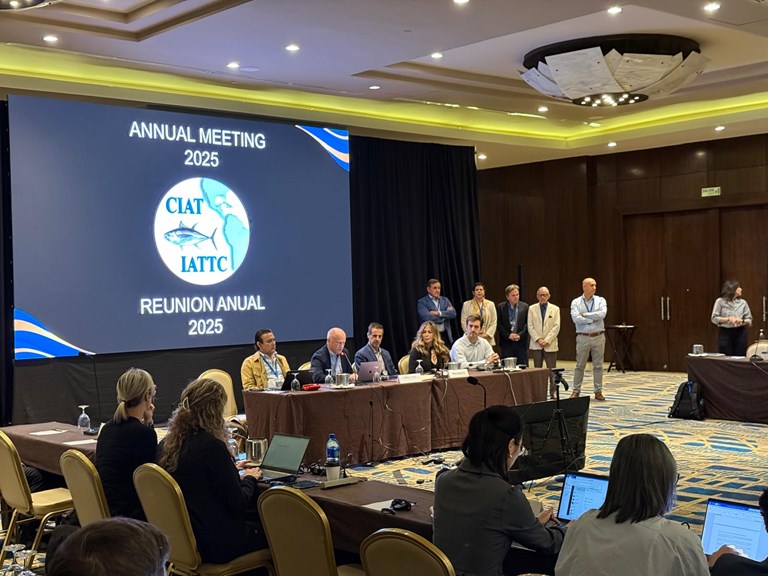
From September 1 to 5, 2025, the 103rd session of the Inter-American Tropical Tuna Commission (IATTC) marked a significant step forward in the sustainable management of tropical tuna stocks.
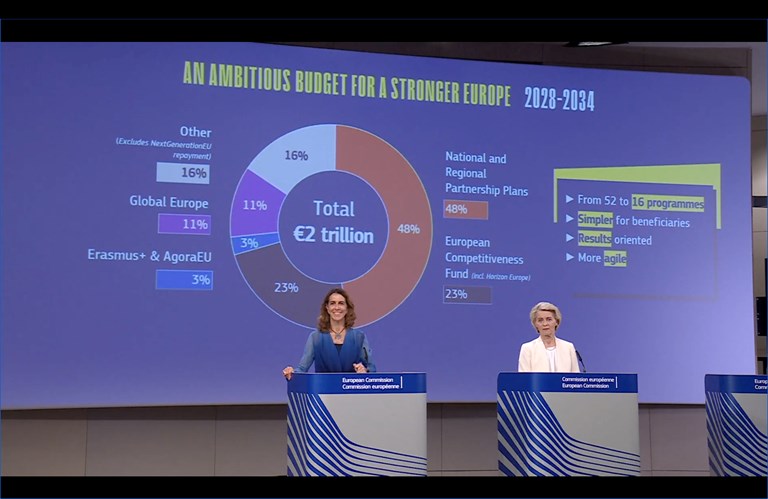
Today, the European Commission has unveiled its proposal for the EU budget covering the period 2028 to 2034. As part of this plan, the Commission aims to consolidate various funding instruments under national and regional partnerships to support investment and reform. One of the key pillars— the European Economic, Territorial, Social, Rural and Maritime Sustainable Prosperity and Security Fund—would merge the European Maritime, Fisheries and Aquaculture Fund (EMFAF) with several other programmes, including those related to agriculture, cohesion and regional development. According to Europêche, such a decision disregards the strategic importance of fisheries, as one of the few truly common EU policies, shockingly omitted even from the new fund’s title. This clearly sends a disheartening signal to the European fishing sector and the coastal communities that depend on it.

The EU Social Partners in the fisheries sector have launched a new digital hub, a one-stop platform to boost visibility, share resources, and drive forward joint action in the sector. The platform brings together the social partners’ collaborative work on safety, working conditions, fair recruitment, training and social sustainability, offering a fresh, accessible way to engage with ongoing developments in EU-level social fisheries policy and practice.
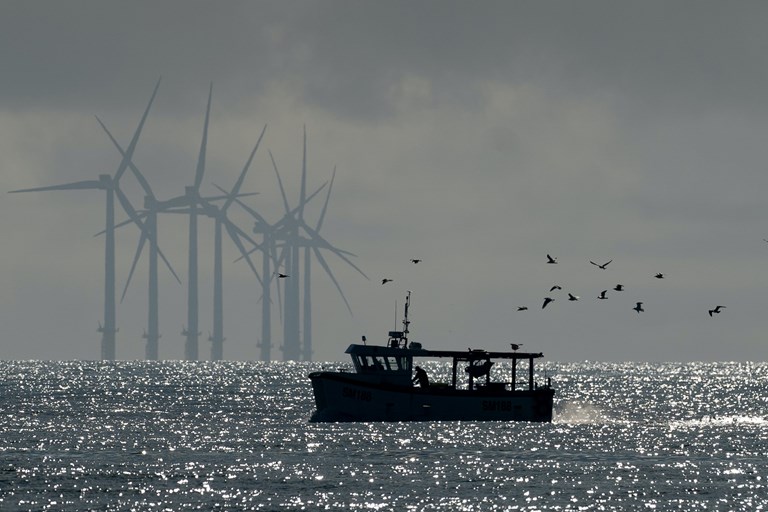
Europeche, the voice of Europe’s fishing industry, welcomes the Implementation Dialogue on the Maritime Spatial Planning (MSP) Directive, chaired by European Commissioner for Fisheries and Oceans, Costas Kadis. This important Dialogue forms part of the European Commission’s commitment to engage stakeholders and align maritime policies with on-the-ground realities ahead of the MSP implementation report due in March 2026. Europeche warned about the loss of traditional fishing grounds to an array of competing spatial pressures, of which offshore wind and marine protected areas top the list.
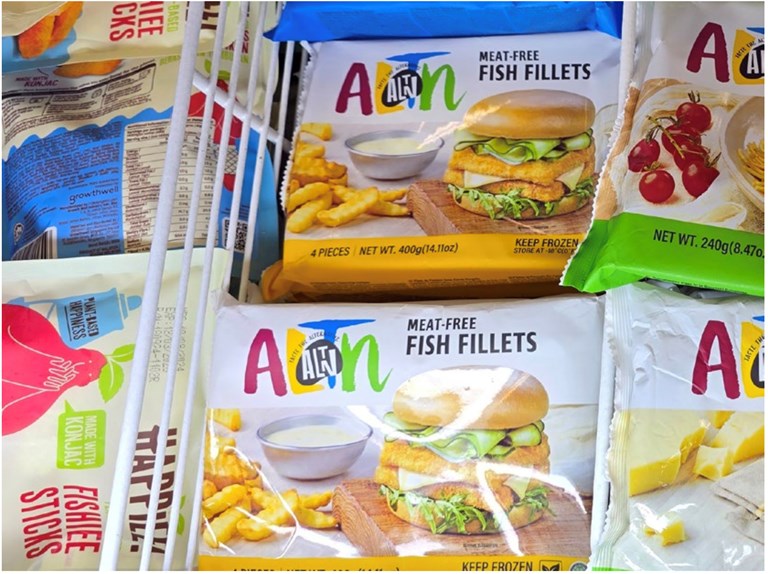
Europêche, the representative body for Europe’s fishing sector, welcomes the recent publication of the European Parliament study ‘Labelling of plant-based seafood substitutes – Scope and issues at stake’. The report highlights the rapid growth of plant-based seafood alternatives and the labelling challenges they pose for the EU fisheries sector. It reveals widespread use of misleading marketing strategies and recommends updates to EU labelling laws to ensure consumers receive accurate information. Notably, the report advises banning the use of commercial names for aquatic species on products that do not contain seafood, a step that would effectively prevent consumer deception.
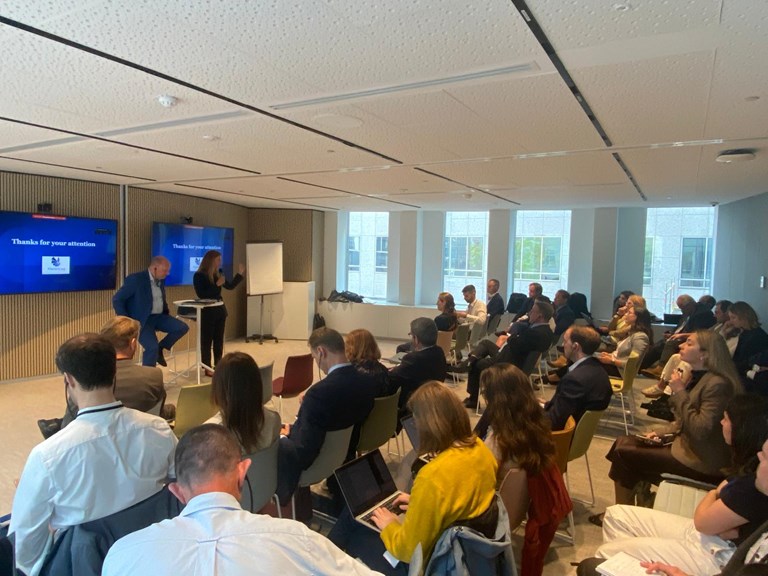
The MarInnLeg Foundation has released a new report entitled “Diagnosis of Blue Interest Groups”, presented at the European Parliament during the event “Financing of Civil Society Actors in Fisheries: Who Pays the Bill?”1, hosted by the EPP Group. The report compiles publicly available data on the so-called “Blue Interest Groups” that influence the development of EU fisheries policies. Its objective, to clarify whom these groups represent, the interests they promote and the financial resources they manage. The report highlights concerns regarding the transparency of funding sources and the potential influence of broader geopolitical interests in some conservation-focused organisations.
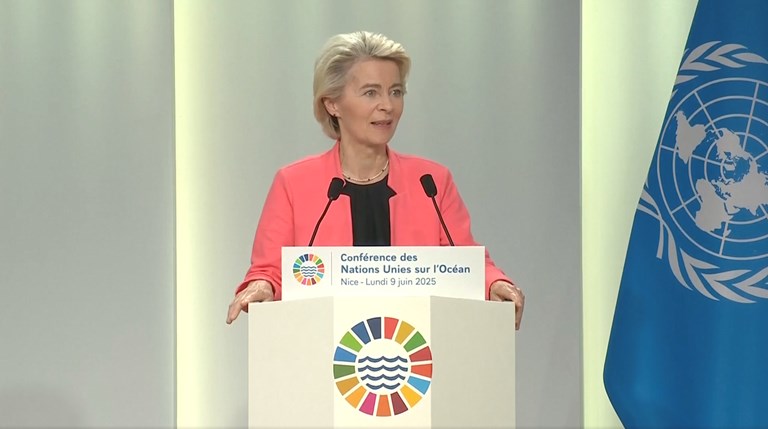
12/06/24 - Europêche supports UNOC3 Declaration to boost multilateral ocean and fisheries governance
Nice, France – Europêche, the leading representative body for the European fishing sector, warmly welcomes the adoption of the UNOC3 Political Declaration , as a significant step forward in strengthening multilateral ocean governance, advancing science-based management, enhancing marine spatial planning, and intensifying the global fight against Illegal, Unreported, and Unregulated (IUU) fishing.
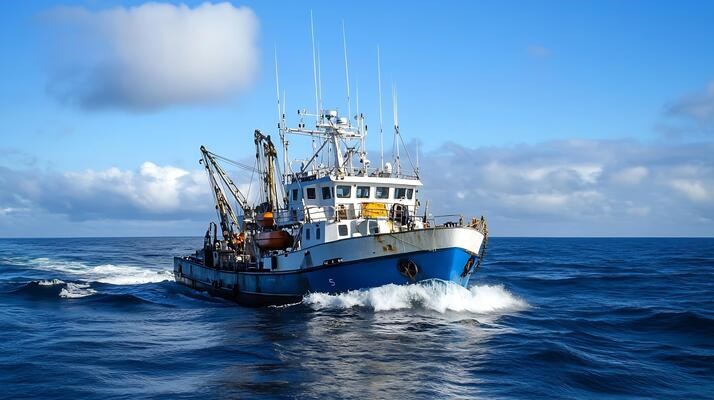
The European Commission has presented today the EU Ocean Pact, a strategic initiative that marks the start of a new framework for the future of fisheries and maritime industries in the European Union. Europêche is encouraged by the recognition of the essential role of fisheries within the broader ocean governance framework.
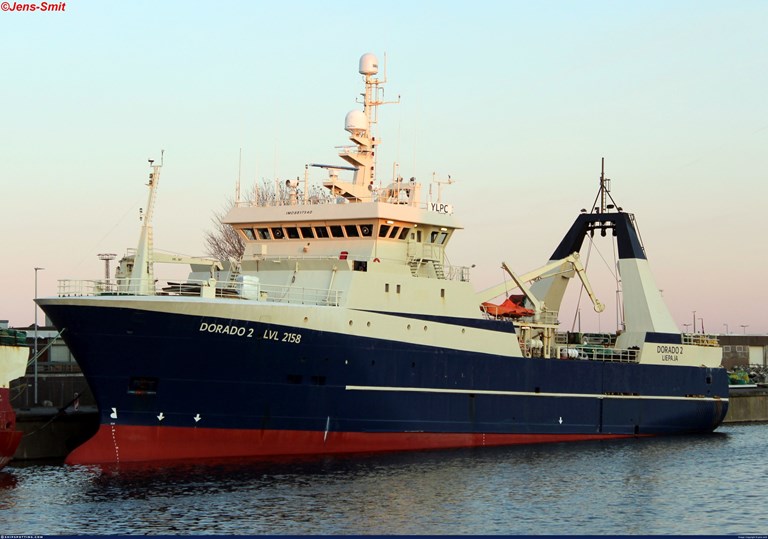
Europêche is pleased to announce that the Latvian North Atlantic Fisheries Association (Latvijas Ziemeļatlantijas Zvejas asociācija) has officially joined as a new member, marking a significant step forward in strengthening the voice of the European fishing sector at EU and international levels.
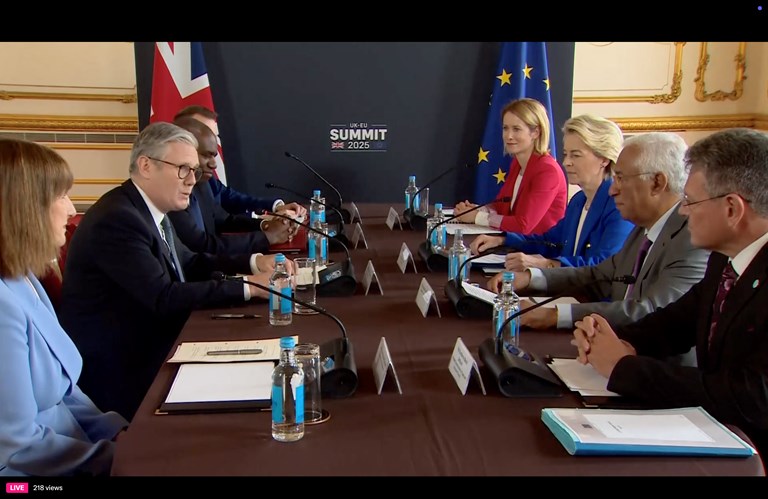
Europêche welcomes the agreement reached today between the European Union and the United Kingdom, which includes extension of fishing access to each other's waters until 2038. The deal, set to be formalised in London by European Commission President Ursula von der Leyen and UK Prime Minister Keir Starmer, represents a constructive step toward stabilising post-Brexit fisheries relations and supporting long-term cooperation. While the final text and specific access conditions are still pending, the agreement signals a shared intent to promote predictability, mutual benefit and closer collaboration in the management of shared marine resources.
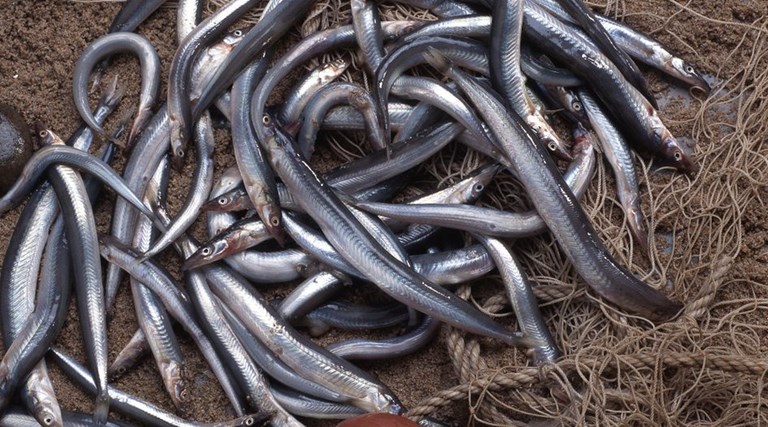
Europêche welcomes the final ruling of the Arbitration Tribunal established under the EU-UK Trade and Cooperation Agreement (TCA) concerning the sandeel fishery, marking a significant step forward for fair and science-based fisheries governance. Europêche expresses strong support for the Tribunal’s decision, which upholds the EU’s interpretation on several pivotal issues and reaffirms fundamental principles guiding fisheries management under the TCA.
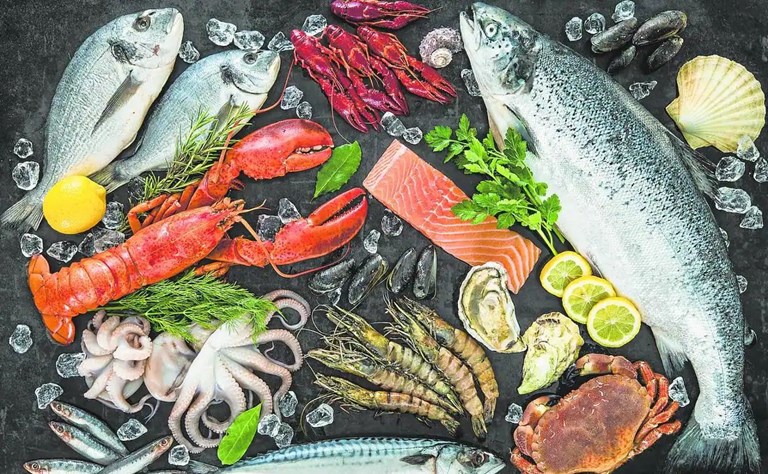
The European Commission has launched a public consultation on the sustainable import of fishery products under the EU Autonomous Tariff Quota (ATQ) Regulation[1]. The Commission is looking to possibly adjust the ATQ regime to incorporate sustainability criteria for imported products to benefit from the tariff derogations. Europêche views this as a unique opportunity to transform the duty-free regime, aligning it with the EU's environmental, social, and food sovereignty objectives and ultimately help achieving a level playing field in the EU market.
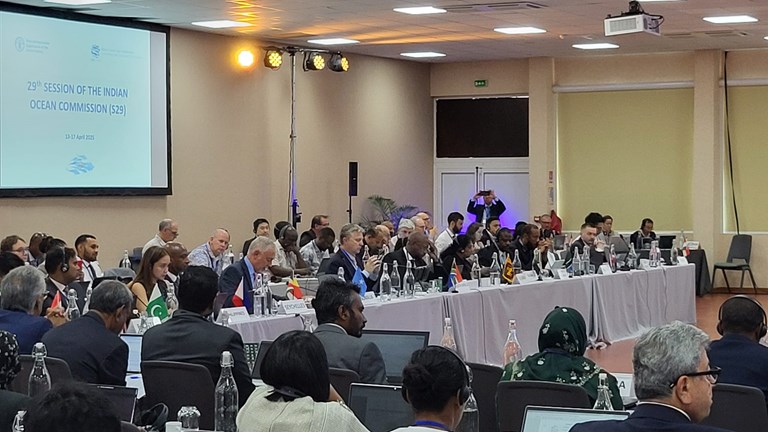
The 29th session of the Indian Ocean Tuna Commission (IOTC), held in La Réunion from 13 to 17 April 2025, concluded with the adoption of a full management framework for tropical tunas. This is a key step which will allow now to focus on other tuna species and control measures, in order to ensure a minimum level playing field between the different fleet within the Indian Ocean. Europêche calls on all IOTC parties and stakeholders to implement and enforce the adopted measures as soon as possible, as well as to begin addressing management needs for other tuna and associated species.
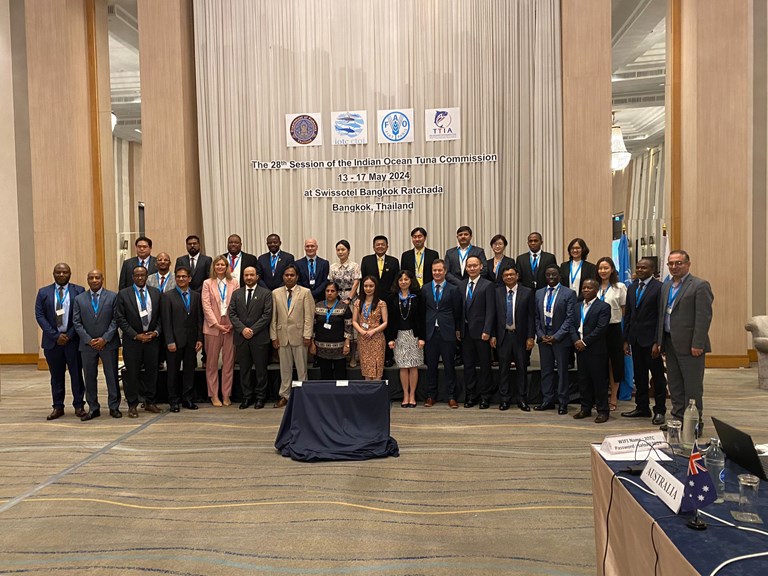
As the 29th session of the Indian Ocean Tuna Commission (IOTC) opens in La Réunion from 13 April 2025, the Europêche Tuna Group (ETG) calls on Contracting Parties to adopt concrete measures to ensure effective and sustainable management of tropical tuna stocks.
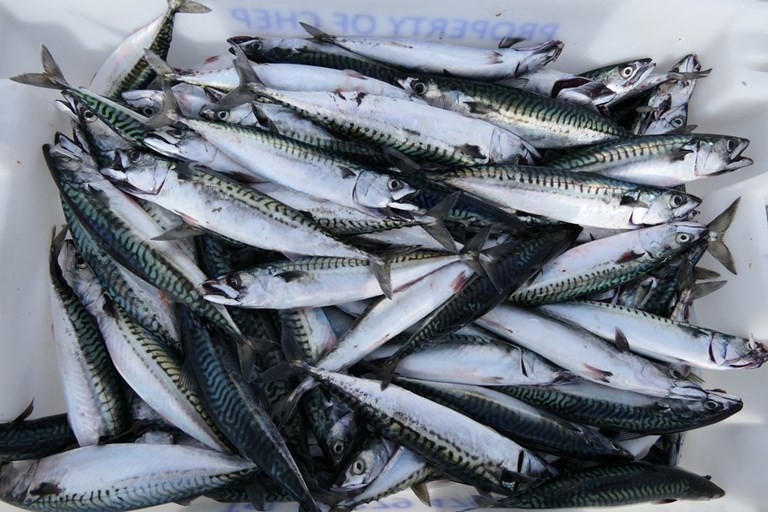
The EU fishing industry laments and criticizes this week’s ill-informed decision by several fish consumption guides in the EU, run by environmental NGO’s such as GoodFish and the World Wildlife Fund (WWF), to advise against buying and consuming Northeast Atlantic mackerel . As no other, we understand and share the major concerns about mackerel’s declining biomass, but by ‘red-listing’ now, fish guides deviate from current scientific advice which puts the stock above the precautionary management trigger point. If buyers and retailers follow the advice of the NGO’s, this will still not improve the chances of successful Coastal States negotiations. What it will do is deal a major blow to the last fleet that is showing restraint and responsibility in this fishery: the EU fleet.
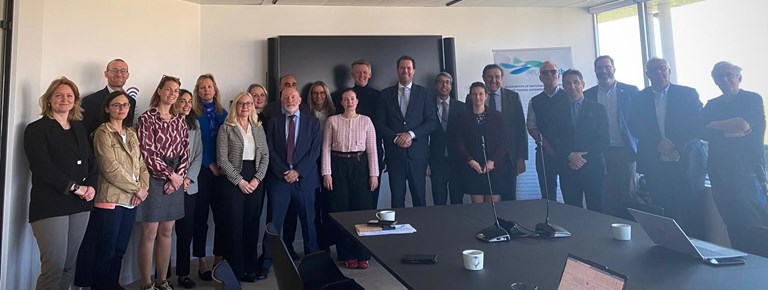
Yesterday, Europêche convened a strategic meeting with EU Member States, marking the first 120 days of the new Commission’s mandate. The meeting offered a timely opportunity to take stock of the progress made and review ongoing challenges and priorities. Reaffirming its commitment to a sustainable and competitive industry, Europêche called for urgent political action to move from words to action, revise unworkable legislation, eliminate excessive bureaucracy, and strike a better balance in fisheries policies.
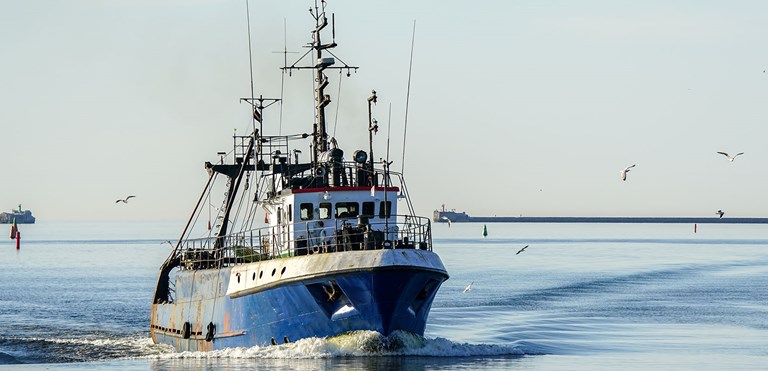
Europêche strongly denounces the list of vessels published by the NGO Bloom and the subsequent calls for supermarkets to boycott fish caught by the listed trawlers. The list is based on flawed and misleading information, misrepresenting the European fishing industry and the actual purpose of Marine Protected Areas (MPAs).

Starting today, the European Commission will kick off a week of negotiations on the draft free trade agreement (FTA) between the European Union and Thailand. These discussions, interrupted for several years and relaunched a couple of years ago, are causing concern in the European tuna industry. Europêche, the leading representative body for the fishing industry in Europe, calls for the exclusion of tuna products from this agreement.

As the European Council and the Parliament prepare to discuss the future Multiannual Financial Framework (MFF), leading EU associations urge EU policymakers to maintain and strengthen the current fund for fisheries and aquaculture, emphasizing its critical role in food security, economic stability and environmental sustainability.
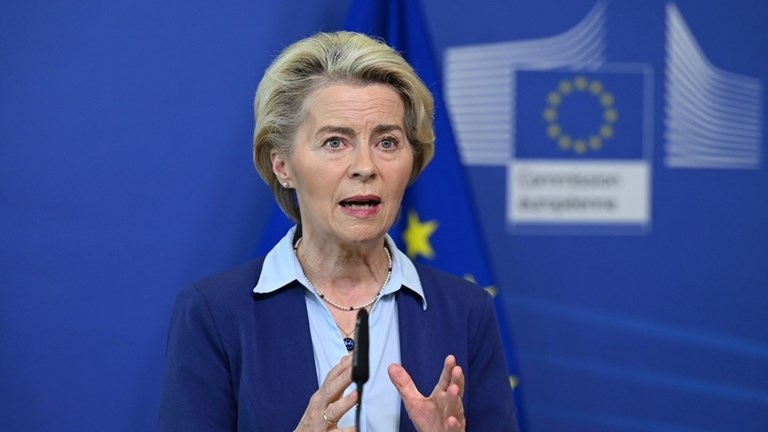
Europêche, the leading representative body for the fishing industry in Europe, welcomes the European Commission’s upcoming Omnibus Simplification Package presented today by President Von der Leyen. This marks a significant first step towards addressing longstanding concerns about regulatory complexity and administrative burdens. The fishing sector urges the Commission to go further and conduct a comprehensive review of fisheries and environmental policies to improve competitiveness while maintaining sustainability goals.
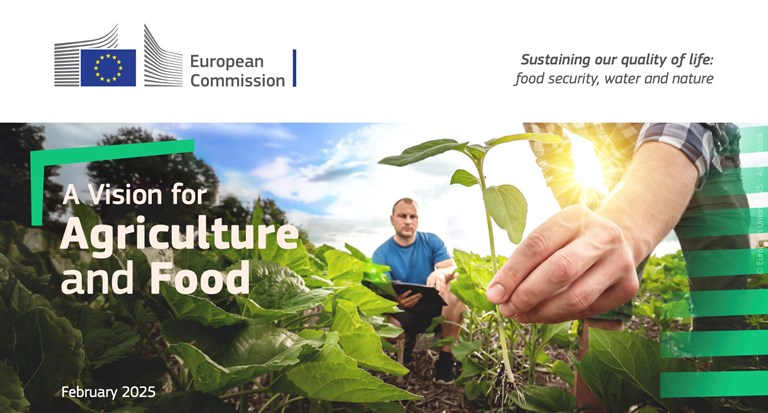
Europêche, the leading representative body for the fishing industry in Europe, welcomes the European Commission’s efforts in presenting its Vision for Agriculture and Food, which aims to ensure a competitive, resilient and sustainable future for European farming and food production. However, Europêche strongly urges the Commission to recognize the vital role of fisheries in EU food autonomy by explicitly including the sector in the policy reforms proposed by the strategic roadmap. Europêche calls for an ambitious Action Plan for Blue Foods.
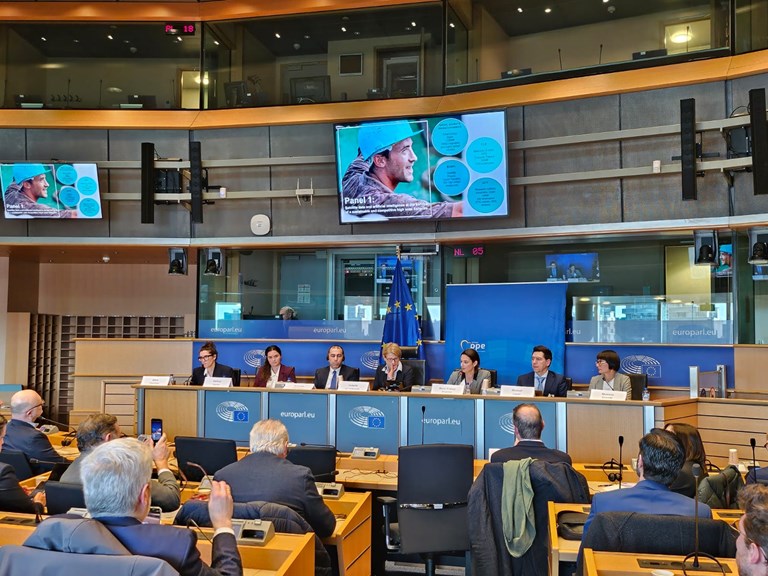
Yesterday, EPP MEP Isabelle Le Callennec, with Europêche’s collaboration, successfully hosted Competitive Blue Tech for Sustainable High Seas Fisheries at the European Parliament. Mr. Polyvios Eliofotou, member of the cabinet of Costas Kadis, Commissioner for Fisheries and Oceans, also introduced the event. Le Callennec was positive that thanks to this event, fisheries and their stakeholders were able to demonstrate their involvement in blue technological and industrial innovation at a critical moment: the EU Clean Industrial Deal is still to be shaped and the European Oceans Pact will be key in the discussions in Nice, at the 3rd United Nations Ocean Conference (9-13 June 2025).
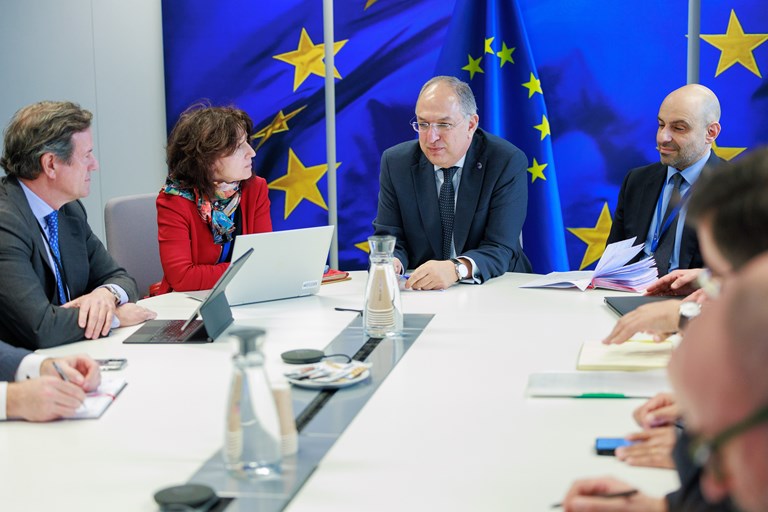
Europêche, the leading representative body for the fishing industry in Europe, held a first meeting yesterday with Commissioner Kadis to address the future of the EU fisheries sector under the legislative term 2024-2029. The dialogue focused on securing workable and balanced EU policies that support the sector, ensure access to traditional fishing grounds, strengthen EU seafood sovereignty, and promote fair market competition—all while fostering socio-economic growth for coastal communities.

The Europêche Tuna Group organised on January 21st in Bermeo its third meeting between industry and science stakeholders at European Level entitled: “Stock assessments in tuna RFMOs”. Scientists from the French Institut de recherche pour le développement (IRD), the Instituto Español de Oceanografia (IEO) and AZTI, a research institution in Spain and meeting host, brainstormed about how better bridge science with fishers’ reality and align fisheries management with scientific evaluation, including consideration of socio-economic indicators in the decision-making process. Ensuring that management measures are well aligned with scientific evaluations is also a common concern of both scientists and fishers.

Europêche, the leading representative body for the fishing industry in Europe, has expressed serious concerns over recent allegations that the European Commission financed environmental non-governmental organizations (NGOs) to lobby Members of the European Parliament (MEPs) and Member States in favor of the European Green Deal. These claims, highlighted in a recent journalistic investigation, raise critical questions about transparency, accountability and democratic integrity in the EU’s policymaking processes.
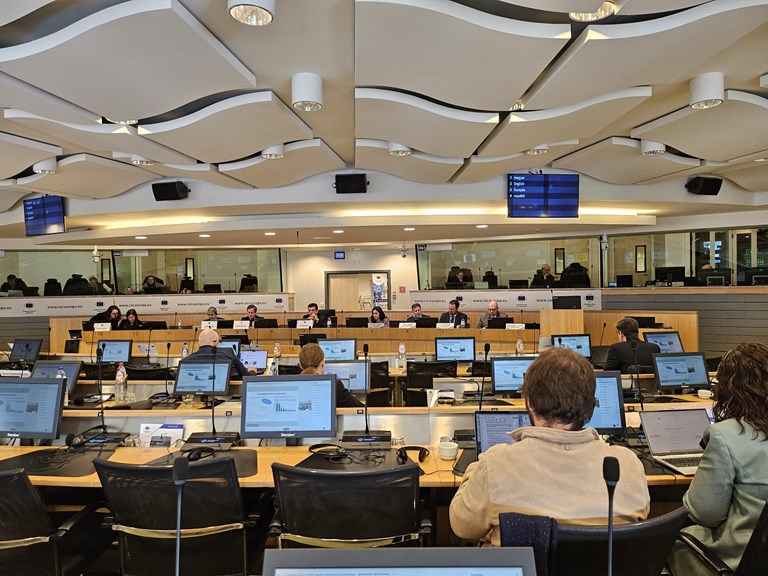
In a public hearing organized by the European Economic and Social Committee (EESC), Tim Heddema, Vice-President of Europêche, emphasized the importance of keeping fisheries at the heart of the EU's vision for the oceans. The sector’s representative highlighted fisheries’ vital contributions to EU food sovereignty, healthy diets, coastal community livelihoods and marine ecosystem stewardship, urging the EU to prioritize and strengthen these roles in the EU Oceans Pact. This political initiative launched by President von der Leyen, is set to be presented at the 3rd UN Ocean Conference in June 2025.
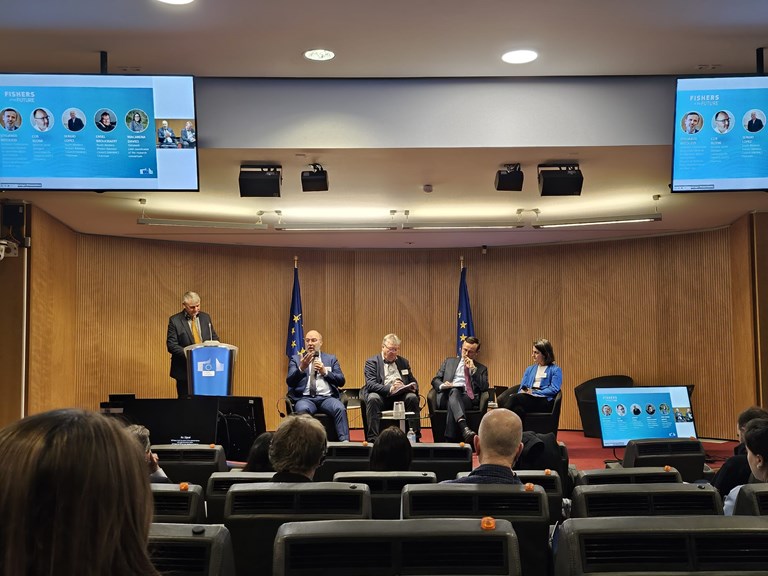
The Chair of the EU Social Dialogue Committee for Sea Fisheries , Cor Blonk, addressed the pressing challenges and opportunities facing the sector during the "Fishers of the Future " conference. A study that examines the future role of fishers in society up to 2050. As part of the expert panel, Mr Blonk, emphasized the indispensable contributions of fishers and vessel owners in ensuring Europe’s food self-sufficiency and supporting coastal communities. He called for urgent, coordinated action from policymakers to secure the fleet’s future, with a strong focus on the social dimension, to support a thriving and resilient fishing industry able to offer quality and safe jobs.
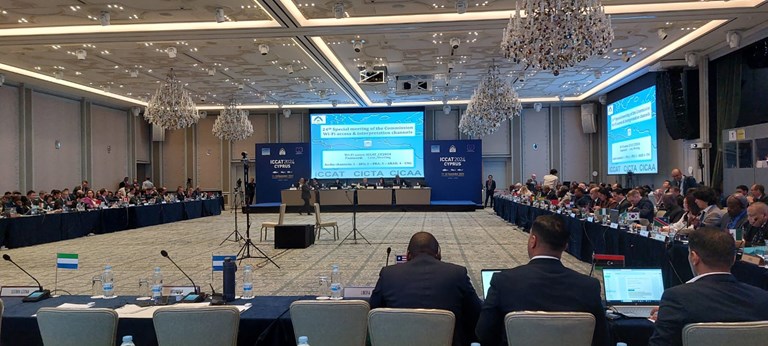
After five years of implementation, the Atlantic Fish Aggregating Device (FAD) moratorium enforced by the International Commission for the Conservation of Atlantic Tunas (ICCAT), was reduced from 72 to 45 days during ICCAT's 24th special meeting, held in Cyprus from November 11 to 18. This decision was taken at the initiative of the European Union, Ivory Coast, and Central American countries.
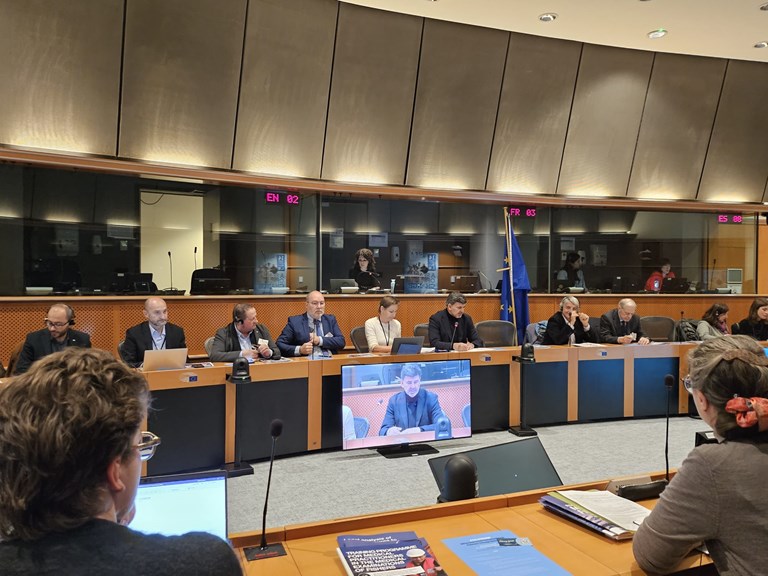
Today, the EU Social Partners in the fisheries sector, represented by Europêche and the European Transport Workers’ Federation (ETF), presented at the European Parliament the results of a major initiative aimed at creating a safer, healthier, and more worker-friendly fisheries sector across Europe. The dissemination conference, hosted by MEPs Nicolás González Casares (Socialists and Democrats) and Paulo do Nascimento Cabral (European People’s Party), provided an opportunity to showcase innovative tools developed under the EU project Pillars of the Sea 3: Roadmap towards socially sustainable fishing.
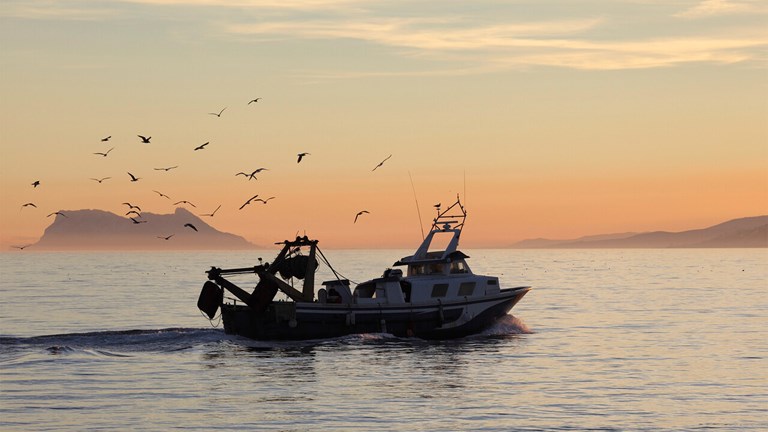
Brussels, 13 November 2024 – The European Transport Workers' Federation (ETF), Europêche and COGECA - European fisheries social partners - jointly adopted a resolution at their plenary meeting, urgently addressing the critical state of the Mediterranean fisheries. This decision highlights shared concerns about the situation of fisheries in the Mediterranean where coastal communities are suffering from sizeable reductions of fishing effort, and the need for sensible EU policies to support both environmental, social and economic dimensions.
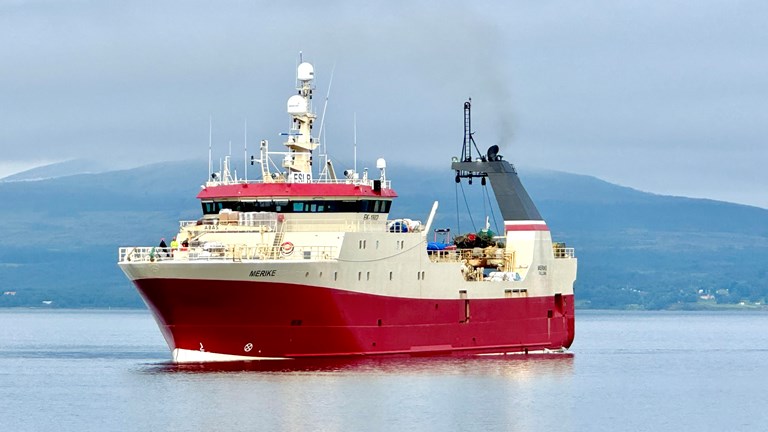
Brussels, 5 November 2024 – Europêche, the foremost representative body for the European Union's fishing industry, is pleased to announce the addition of the Estonian Long Distance Fisheries Association (ELDFA) to its membership. The new member was unanimously welcomed by Europêche’s General Assembly, marking a significant step forward in amplifying the collective voice of Europe’s fishers.
Comunicados de prensa 2018
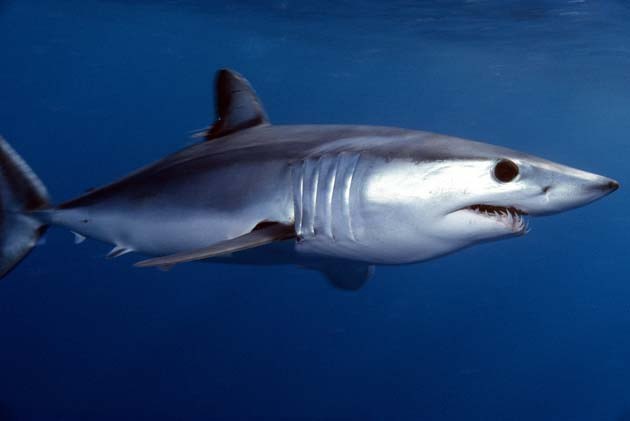
The European fishing industry represented by Europêche opposes the inclusion of shortfin mako shark in Appendix II of CITES which would severely curtail the international trade of the species. Particularly, the sector rejects the EU initiative to co-sign a Mexican proposal for this purpose. Europêche believes that this initiative lacks both scientific and legal basis in light of the strong regulatory framework within the context of Regional Fisheries Management Organizations (RFMOs) and other Regional Agreements, the biological characteristics of the species as well as the absence of illegal trade related to these stocks. Consequently, the species is sufficiently protected and regulated so as to ensure its sustainable exploitation and legal trade.
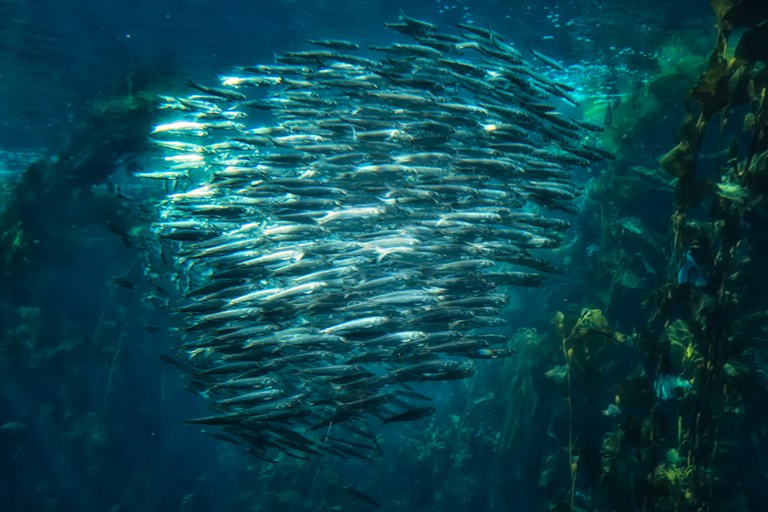
In the early hours, the Fisheries Council reached an agreement on the catch limits for 2019; just two weeks before the latest and toughest phase of the landing obligation comes into effect. Following a fairly conservationist proposal from the European Commission (EC), which proposed for certain stocks even lower levels of quota than recommended by scientists, Ministers adopted a better-balanced decision that will allow to catch more fish while respecting the sustainability of the stocks in the long term. The positive results yielded, thanks to the sacrifices made by the industry over the past decade, may be however compromised by the quick fixes and patches adopted to try to implement an ill-conceived landing obligation for the complexities of the European waters.
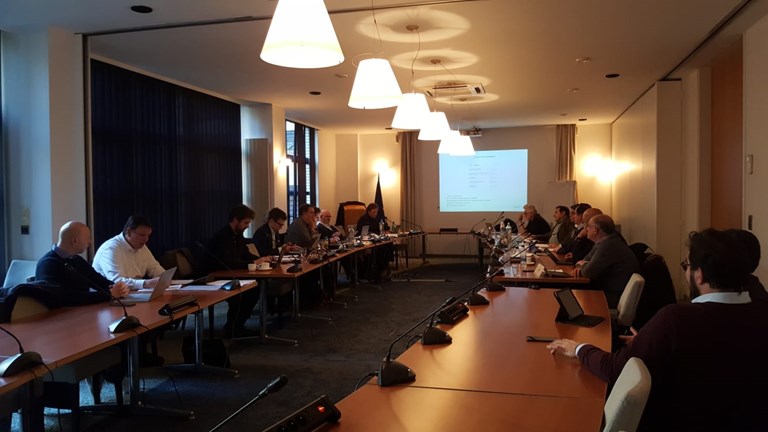
The Secretary General of the Spanish Fisheries Confederation (Cepesca), Javier Garat, has been re-elected as President of the European Fisheries Association, Europêche. The election was unanimously agreed upon by the members of Europêche during the General Assembly held yesterday in Brussels. The Dutch representative, Gerard van Balsfoort, President of the Pelagic Freezer-Trawlers Association (PFA), and the French delegate, Marc Ghiglia, Chief Executive of the United Fishing-Vessel Owners’ Organisation of France (UAPF) have also been re-elected as vice-presidents. Europêche, the foremost trade body representing the fishing industry in Europe, continues relying on the expertise of the managing team to positively contribute and address the many challenges ahead faced by the European fishing sector.
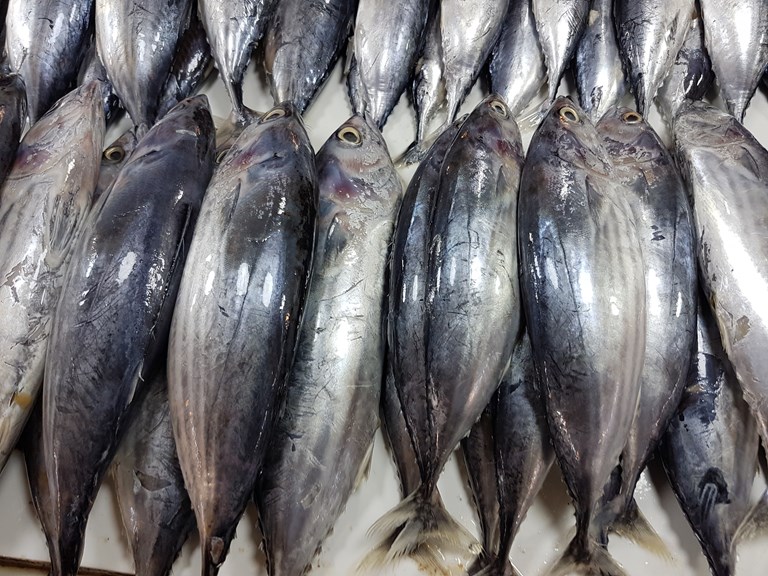
This week, the Council adopted a regulation setting autonomous EU tariff quotas (ATQs) for certain fishery products for the years 2019 and 2020. The ATQ regulation covers species such as tuna, Alaska pollack, cod or flatfish for which a relatively high volume can be imported from non-EU countries at a reduced or zero-duty tariff. Up to 750.000 tonnes of fish will benefit from this scheme and will enter the European markets regardless of their origin, way of production, sustainability of the stock, labour standards or even if the third country has been identified by the EU for illegal, unreported and unregulated (IUU) fishing. Europêche believes that, in many cases, ATQs serve the sole purpose of getting a better price from non-EU producers, while putting pressure on EU producers’ prices and employment.
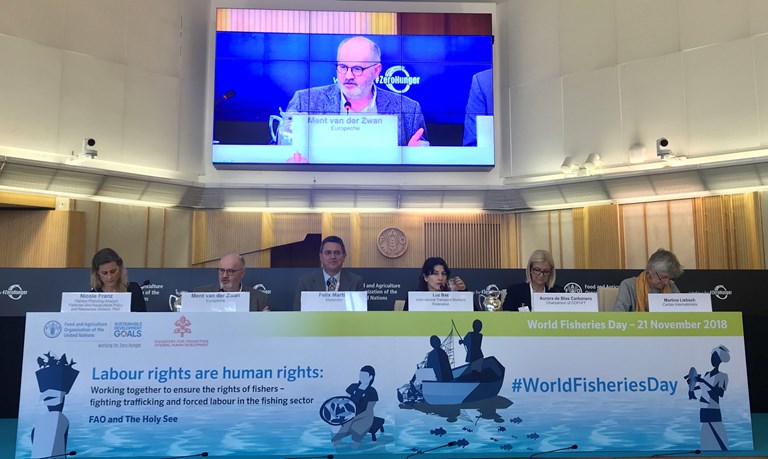
On the occasion of the World Fisheries Day, the FAO and the Holy See joined forces once again to host a successful event focusing international attention on the fair treatment and well-being of fishers around the globe. Europêche, on behalf of the EU fishing industry, participated together with international organizations, government representatives, trade unions and relevant stakeholders in this year’s event titled ‘Labour rights are human rights: working together to ensure the rights of fishers – fighting trafficking and forced labour in the fishing sector’. United Nations specialized agencies in fisheries and their Member states were urged to work together to promote the ratification, implementation and enforcement of internationally agreed social standards to support the livelihoods of 38 million fishers in the planet.
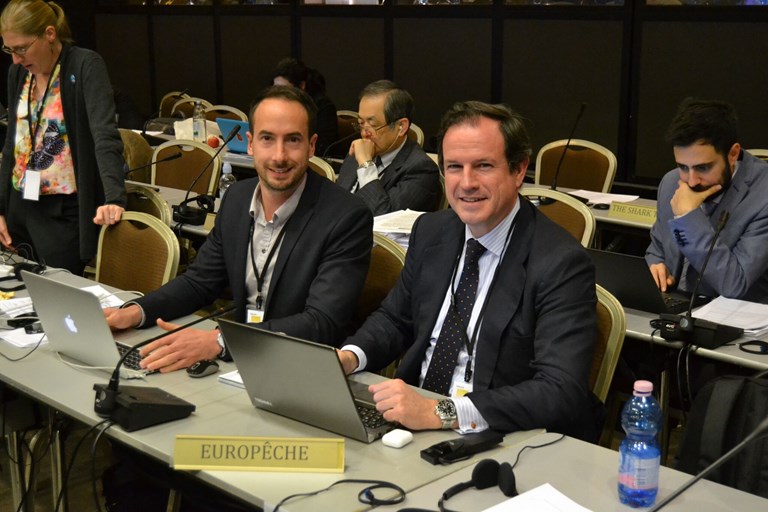
After 9 days of intensive discussions on Atlantic tunas at the plenary meeting of the International Commission for the Conservation of Atlantic Tunas (ICCAT), the results are perceived as being poor and unsatisfactory by the European fishing fleet. Europêche notes with great disappointment that ICCAT has not been able to reach a consensus to revise the management plan for tropical tunas, in particular for bigeye tuna, which is considered to be overexploited by ICCAT’s scientific committee (SCRS).
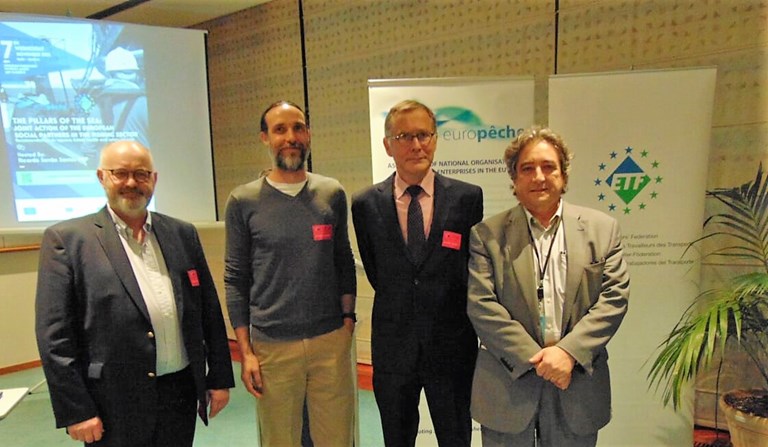
We co-hosted an event with our social partner for fisheries and an MEP. We presented our legal proposals for a safer, healthier and more worker-friendly fisheries sector in Europe.
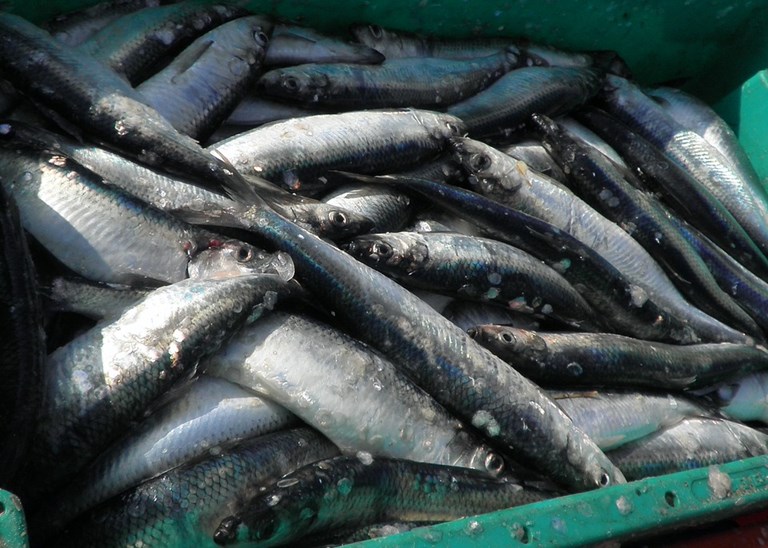
Last night, after long hours of discussion in Luxembourg, EU Fisheries Ministers reached an agreement on fishing opportunities for 2018 for the ten stocks in the Baltic Sea. The total allowable catches (TACs) were unanimously agreed in the framework of the Common Fisheries Policy (CFP) which aims to have all stocks fished at sustainable levels by 2020. For this purpose, Ministers’ decision will allow 7 out of 8 stocks for which complete scientific advice was available to be fished at maximum sustainable yield (MSY) levels, representing 98% of fish landings in volume. However, in view of the huge progress in the sustainable management of the Baltic Sea, fishermen expected better quota allocations for 2019.
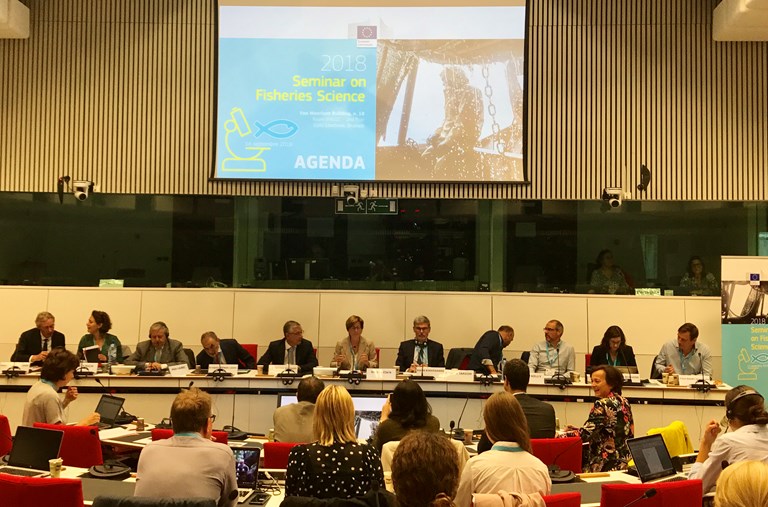
Europêche has welcomed the clear message from the scientific community and DG MARE Director General, Mr Aguiar Machado, at Friday's “Scientific Seminar on Fisheries Science” organised by the European Commission. The scientific data presented evidenced in the North East Atlantic a drastic reduction in fishing pressure which is now stabilizing at sustainable levels. As a consequence, overexploited stocks decreased by 43% in the last decade and the proportion of stocks outside safe biological limits dropped by more than half during the same period. Fish populations have been generally increasing, reaching in 2016 biomass levels 39% higher than in 2003. The seminar also reviewed fisheries science challenges such as integrating socio-economic advice, multispecies management transition, climate change consequences and insufficient data processing.
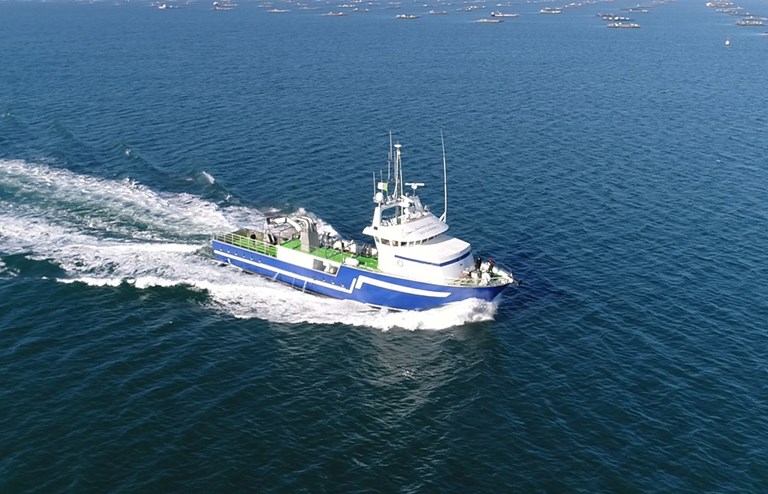
Earlier this year, a group of researches claimed that fishing activities occurred in 55% of the world’s oceans [1]. As a result, their study found that the area fished is four times bigger than the area occupied by agriculture in terms of square kilometres. Europêche then argued that the study was based on scientifically unsound data [2], overestimating the proportion of the seabed where fishing occurs. A new scientific research developed by the Department of Marine Sciences and Fisheries of the University of Washington evidences this by showing that when low-resolution data are replaced by high-resolution data, the true footprint of fishing is revealed to be less than 4%. Science confirms that fishing continues to hold the first place as the lowest impact production method.
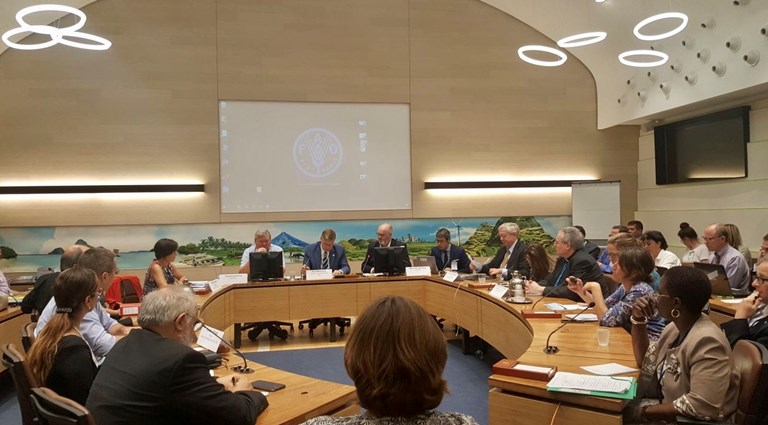
The European Social Partners in the Fisheries Sector were proud to host today together with the Kingdom of the Netherlands, the European Commission and the Holy See, a side-event on the social dimension of fisheries during the 33rd session of the Committee on Fisheries (COFI), a subsidiary body of the Food and Agriculture Organization (FAO). Despite the progress in health and safety operations, insufficient attention has been given by governments to the implementation of essential principles of international law for the protection of fishers, making fishing still a hazardous activity. In order to bridge the gap, participants widely called for the development, in close cooperation with UN agencies, of an effective roadmap for the rapid worldwide implementation of the international agreements relating to work and safety in the fishing sector.

The European Commission has published yesterday the new European Maritime and Fisheries Fund (EMFF) as part of the package of the Multiannual Financial Framework (MFF). The new fisheries fund will cover the budgetary period 2021-2027 with a financial envelope of €6.14 billion. This represents a 5% drop compared with the current EMFF budget (2014-2020) mainly to compensate the upcoming Brexit gap in the EU budget. Europêche calls on co-legislators to adopt the new fund before the end of the current legislative term, increase the budget allocation for sustainable fisheries, ease access to funding for all fishermen and enlarge the scope of the priorities proposed by the Commission.
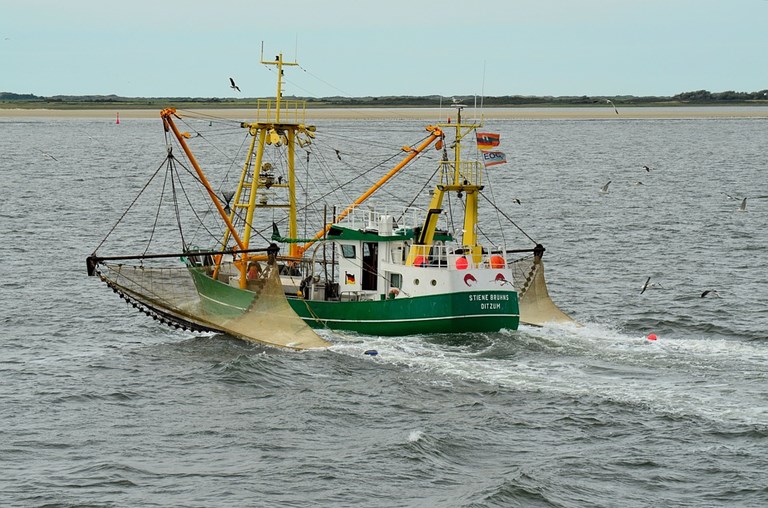
The International Council for the Exploration of the Sea (ICES) has recently provided its advice to the European Commission (EC) to set the fishing opportunities in the Baltic Sea for 2019. Despite fishermen’s full compliance with the quotas proposed, a growing stock biomass and fishing pressure in line with scientific advice, news are not good for certain stocks such as herring. Particularly, in the western Baltic, Skagerrak and Kattegat areas, ICES is recommending a zero catch in 2019. Europêche calls on the EC to take into consideration not only the good progress of the stock during the last few years but also the massive socio-economic impact for the small-scale fishermen depending on this stock.
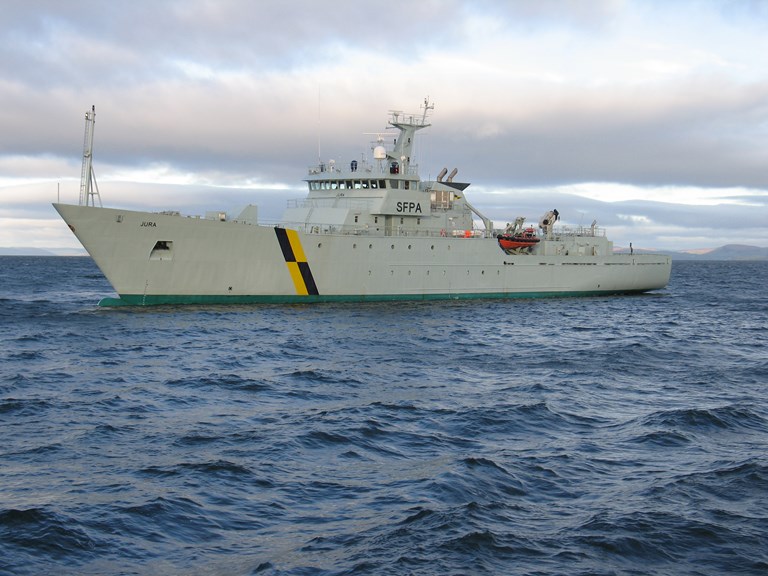
The European Commission proposed yesterday a new set of rules meant to revise the Union Fisheries Control System. Europêche, the representative body for fishermen and fishing vessel owners in the EU, agrees on the need to modernise and simplify the control and enforcement measures adopted back in 2009 as well as to ensure full compliance with the Common Fisheries Policy (CFP). However, the European Commission (EC) pursues these objectives at the expense of the sector which will have to face extraordinary bureaucratic and economic burdens.
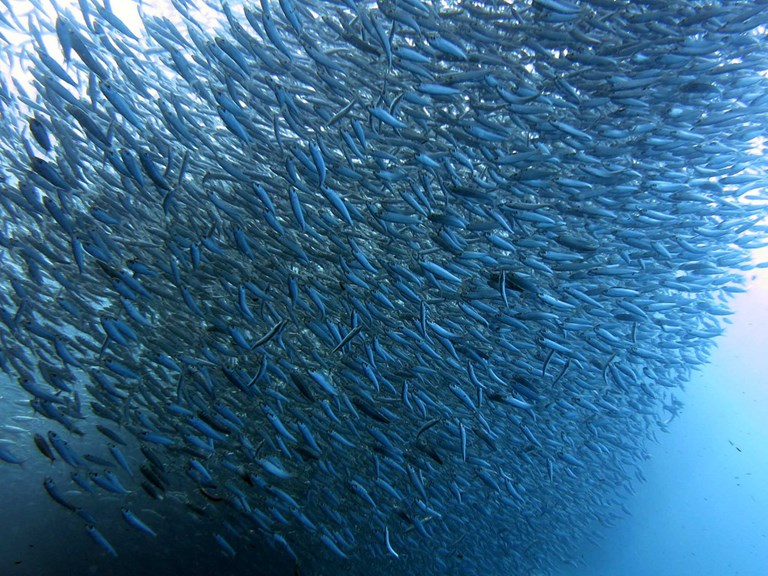
Last week, the European Scientific, Technical and Economic Committee for Fisheries (STECF) published its annual report on the performance of the Common Fisheries Policy (CFP) concerning the progress on the situation of the fish stocks and exploitation levels. The report concludes that stocks status has significantly improved although the rate of progress has slowed in the last few years. It also reflects an overall downward trend in the fishing pressure over the period 2003-2015 in the North-East Atlantic. As a consequence, the biomass has been generally increasing since 2006, and was in 2016 on average around 39% higher than in 2003. However, further efforts are still needed, particularly in the Mediterranean.
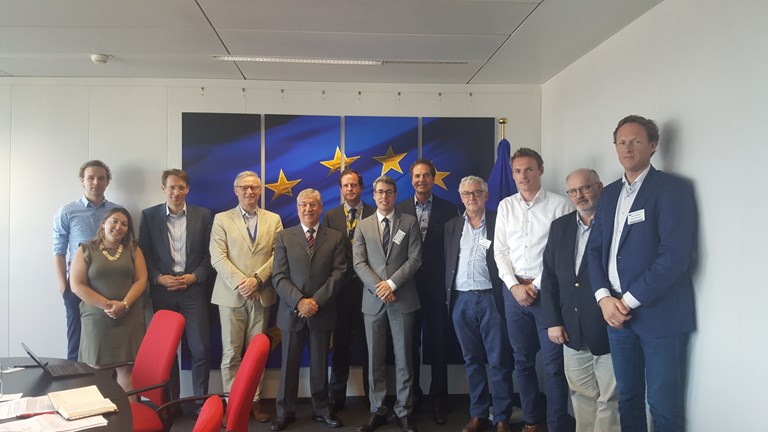
Today, a delegation of fishing representatives from Europêche met with Mr Karmenu Vella, Commissioner for Environment, Maritime Affairs and Fisheries to discuss the main topics at the top of the political and legislative fisheries agenda in the EU. Both Commissioner Vella and Europêche credited the great progress in achieving sustainable fisheries with already 97% of the landings in the North East Atlantic coming from EU managed stocks fished at Maximum Sustainable Yield (MSY) levels. The sector showed support to Commissioner Vella to continue proposing the necessary legislation to implement the Common Fisheries Policy (CFP), however called for rational policies which take into consideration socio-economic aspects and that can be implemented in practice.
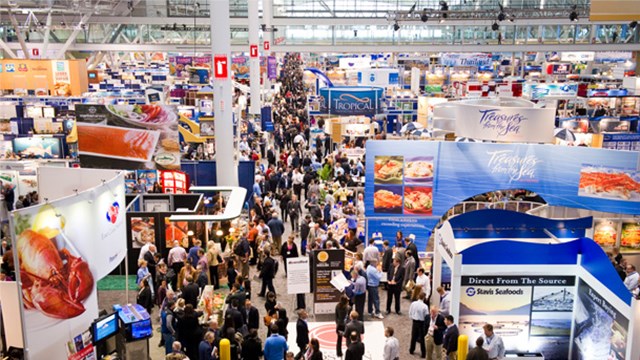
During the Seafood Expo Global 2018 that will take place from 24-26 of April in Brussels, gathering stakeholders from every corner of the globe, the European Commission will hold an event featuring the importance of food security and the social dimension of fisheries. The Seafood Expo creates the perfect platform to get Europe’s message on the three sustainability dimensions of fisheries management across with thousands of seafood professionals all together. More specifically, the social pillar will be at the core of the event and will touch upon subjects like international conventions, working conditions, safety, training and fight against forced labour.
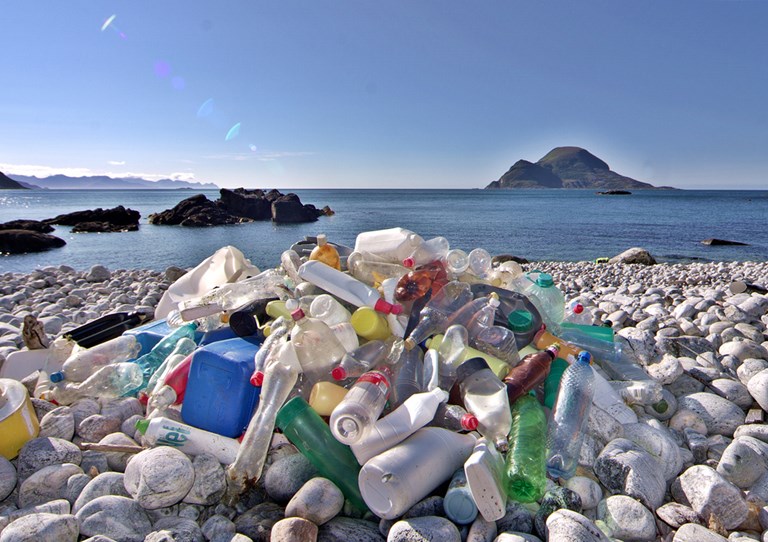
Marine litter and plastic waste have been identified as one of the main threats to the oceans and the marine ecosystems, to the point that many have voiced that by 2050 there will be more plastics than fish in our oceans. Scientists have estimated that up to 12 million tonnes of plastic is entering our oceans every year. Fishermen are deeply concerned since fish stocks heavily depend on a healthy marine environment. Europêche members, aware of the problem, increasingly getting involved in environmental schemes to help combat the growing issue of marine litter and encourage fishermen across Europe to participate in recycling and clean up initiatives.
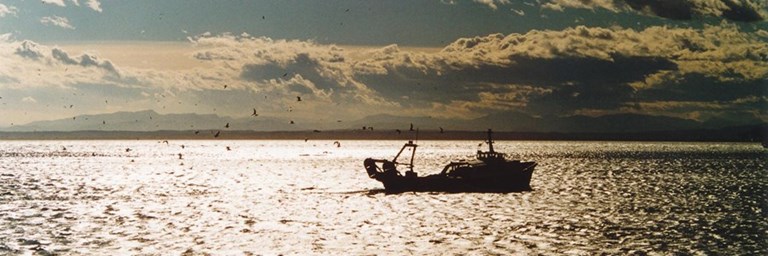
After tracking the satellite messages transmitting the position of 70.000 fishing vessels for the past 4 years, a group of researches [1] claim that commercial fishing covers over 55% of the ocean's surface. As a result, their study states that the area fished is four times bigger than the area occupied by agriculture in terms of square kilometres. Europêche argues that the study does not provide any new insight since fishing vessel monitoring systems have been widely implemented and enforced across the oceans for decades showing the exact location of our vessels to the competent authorities. In addition, the report is based on scientifically unsound data, overestimates the proportion of the seabed where fishing occurs and has little use for fisheries management.

The Court of Justice of the European Union (CJEU) has ruled today that the Fisheries Agreement concluded between the EU and Morocco is valid in so far as it is not applicable to Western Sahara and to its adjacent waters. Considering that around 94% of the catches under the Fisheries Agreement takes place in these waters, this judicial decision clearly disregards the importance of the agreement for the fisheries sector. The EU fishing fleet is nonetheless resolved to continue to strengthen the cooperation and business relations with our strategic neighbour country since the Fisheries Agreement proved to bring about socio-economic benefits for both parties, particularly for the local population in Western Sahara. In this respect, Europêche calls on both parties to negotiate a new Fisheries Agreement.
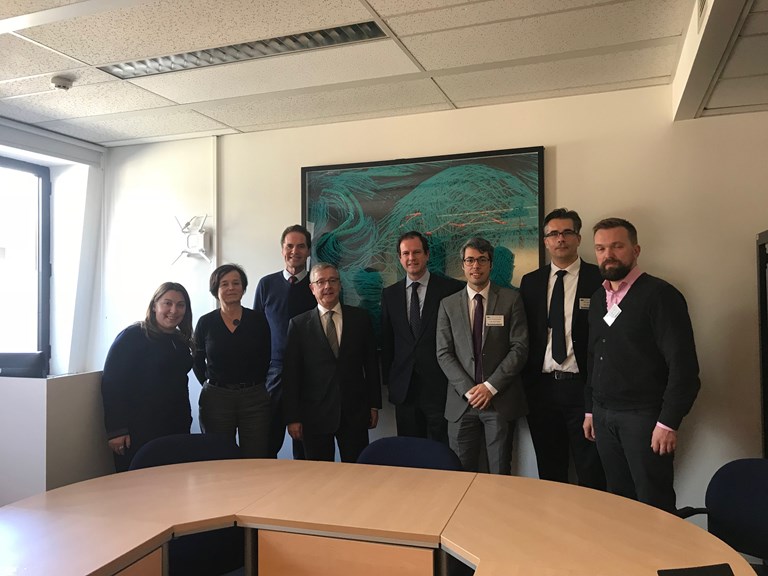
Mr Aguiar Machado, Director General of the Directorate-General for Fisheries in the European Commission (DG MARE), met today with a delegation of fishing representatives from Europêche to discuss industry’s concerns relating to recent political and legislative developments at European and international level. Both Mr Machado and Europêche positively valued the good results in achieving sustainable fisheries, leading to healthier stocks and greater socio-economic benefits for the sector. However, the sector recalled the importance to adopt workable measures that can realistically be applied by the industry which has not been the case with the landing obligation. In addition, Europêche requested further efforts and diplomatic pressure for more fisheries agreements with 3rd countries which must be linked to trade and regional policies.
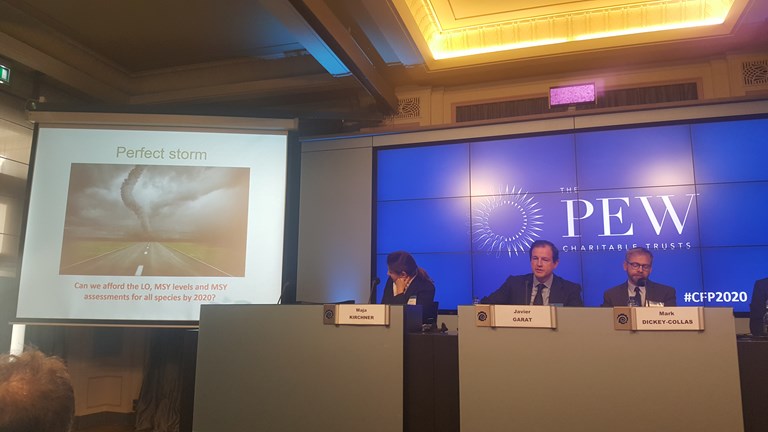
President of Europêche, Javier Garat, has voiced the challenges faced by the European fishing sector due to the ambitious and rigid objectives set by the Common Fisheries Policy to achieve Maximum Sustainable Yield (MSY) levels by 2020, the implementation of the landing obligation and the uncertainty that Brexit is creating. The combination of all these factors, known in the sector as "the perfect storm", have been presented by Garat at the conference "How far has the EU come in ending overfishing?", held today in Brussels and organised by the environmental organization PEW.

An unfavourable judicial decision would bring about serious consequences for the relations between Europe and Morocco beyond the fishing interests and would undermine the socio-economic benefits yielded thanks to the good relations between both parties.
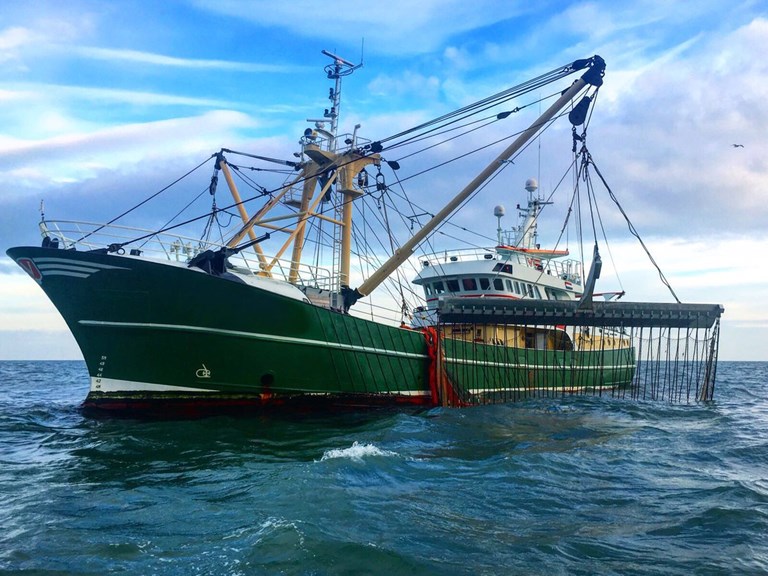
The anti-pulse lobby peaked this week in Brussels with their misleading campaign in light of the crucial vote on a new regulation for the conservation of fishery resources that will take place on 16 January 2018. The European fishing industry believes that this is the umpteenth attempt to demonize an innovative fishing method. Radical NGOs are trying to sabotage the difficult compromise[1] reached in the Fisheries Committee of the European Parliament back in November that represented a democratic, reasonable and sustainable solution. Europêche urges the European Parliament Plenary to respect this compromise in order to allow innovation and the development of new sustainable fishing techniques which is the sole way the sector can adapt to new legislative scenarios such as the landing obligation.
Comunicados de prensa 2017
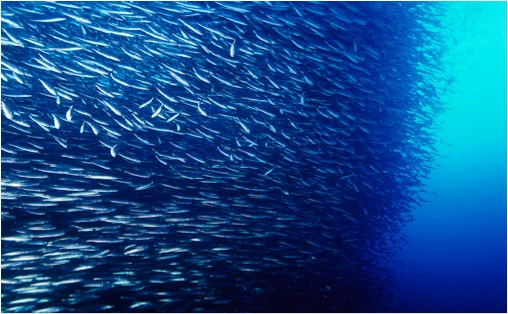
The European Commission (EC) has launched its annual consultation on setting fishing opportunities for 2018. As a novelty, this year it is being accompanied by a Communication which, besides setting the traditional principles underpinning the EC 's proposal for Atlantic and North Sea fish quotas (TACs) in 2018, it gives an overview on the progress made towards the achievement of the Common Fisheries Policy (CFP) objectives. Europêche is very pleased with this new approach since it provides European citizens with objective information in a digestible manner. The sector also welcomes the upward trends in many fish stocks and sustainable exploitation levels across Europe as revealed by the latest scientific data .
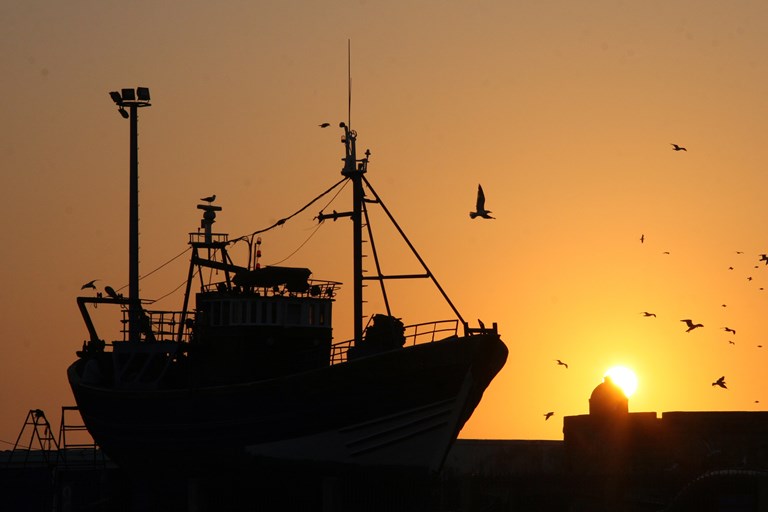
• Appointment of new Managing Director signals fresh drive to communicate the modern face of the sector to the public and policy-makers. Europêche, the foremost trade body representing the fishing industry in Europe, is strengthening its office and activities in Brussels to champion the sector and ensure its vital contribution to the economy, social fabric and food supply chain is fully recognised by EU policy-makers.
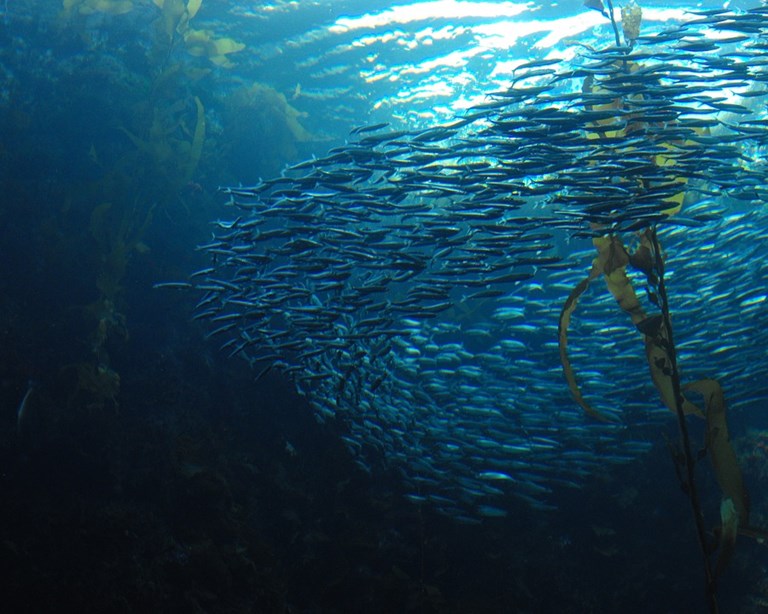
After two-day intensive negotiations, this very morning the Fisheries Council has reached a long-awaited agreement over the fishing opportunities for 2018. Following a particularly conservationist proposal adopted by the European Commission (EC) for certain stocks, Ministers adopted a better-balanced Regulation in light of the socio-economic data provided by Member States. The ambitious agreement will increase the number of stocks fished at Maximum Sustainable Yield (MSY) levels to 53 next year, compared to only 5 in 2009. The new text also introduces strong measures to improve the state of seabass and eel stocks.
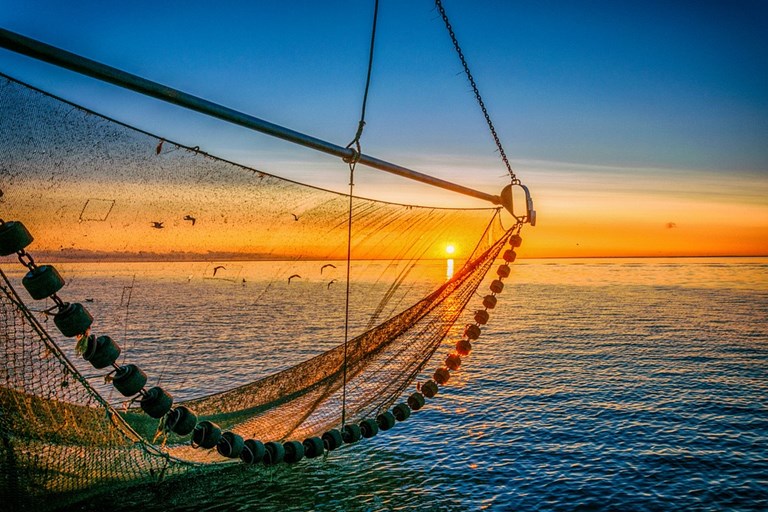
Today, the European Parliament and the Council of the EU have reached a political agreement on the European Commission proposal establishing a multi-annual plan for demersal stocks in the North Sea, the second of its kind. Europêche welcomes the final adoption of this legislative proposal which, in the context of regionalisation, will bring decision-making closer to Member States and fishermen through the adoption of joint recommendations. However, many questions such as the implementation of landing obligation and negotiations with third countries still remain open and unclear.
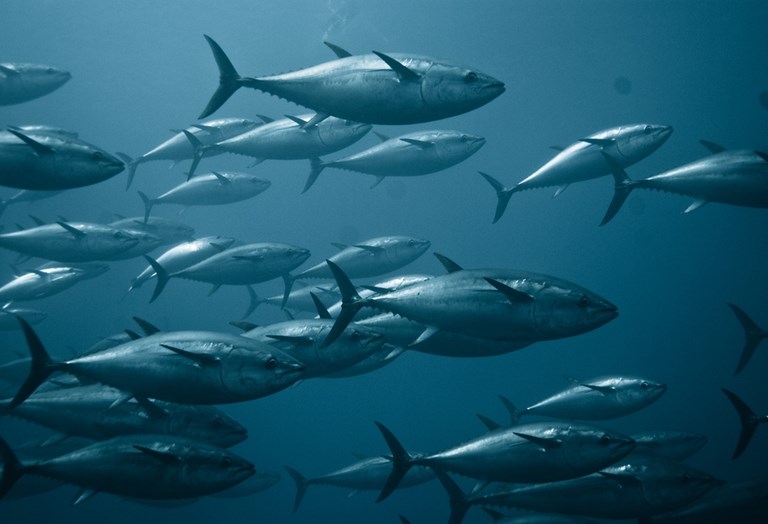
After lengthy negotiations, the International Commission for the Conservation of Atlantic Tunas (ICCAT) has adopted this week a set of Recommendations on the management of tunas and tuna like species in the Atlantic Ocean and adjacent seas. Regarding bluefin tuna, ICCAT approved a gradual increase of the total allowed catch (TAC), which translates into 28,200 tonnes (t) in 2018, 32,240t in 2019 and 36,000t in 2020. The member organisations represented by Europêche have unanimously described these results as disappointing. Particularly, concerning the TAC for 2018, the entire sector expected to reach 32,000t in view of the positive scientific data that reported the full recovery of this emblematic species.
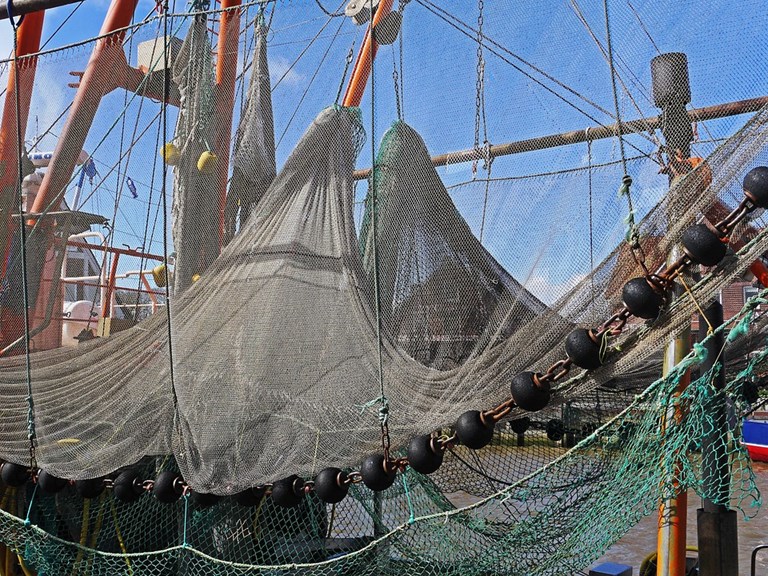
Today the European Parliament (EP) Committee on Fisheries adopted its position on the European Commission (EC) proposal establishing new rules on the conservation of fishery resources and the protection of marine ecosystems, so-called ‘technical measures’. Europêche welcomes the positive step forward towards the final adoption of this legislative proposal which, in the context of regionalisation, will bring decision-making closer to fishermen and coastal communities. However, these results have been overshadowed by the decision taken by the Committee not to give mandate to the rapporteur, Mr Gabriel Mato, to enter into negotiations with the Council until this report is voted in Plenary, possibly in February 2018. This decision will unnecessarily delay the legislative process and put at risk the difficult compromises achieved on very complex fishery issues.
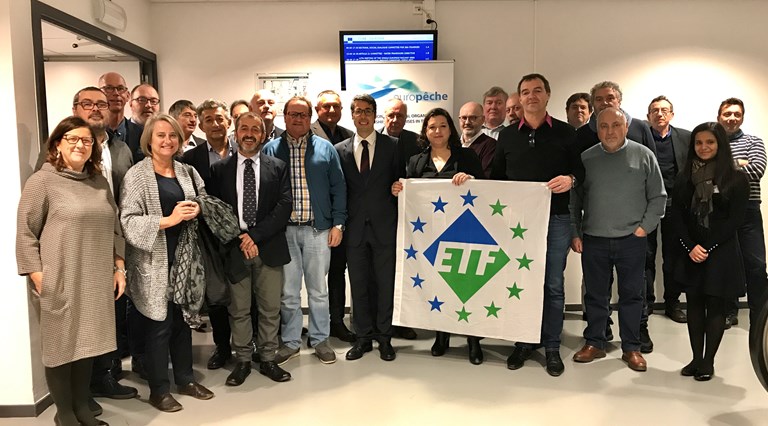
On 9th November 2017, during their annual plenary meeting, the EU Social Partners in the fisheries sector (Europêche1 and ETF2) met with the specialised agencies of the United Nations which play a vital role in fishers’ safety at sea and working conditions. Representatives from the Food and Agriculture Organisation (FAO), the International Maritime Organisation (IMO), and the International Labour Organisation (ILO) together with the European Commission (EC) and Social Partners laid the foundations for a comprehensive action plan to raise awareness and jointly promote worldwide all relevant international instruments on fisheries to ultimately improve safety and labour conditions.
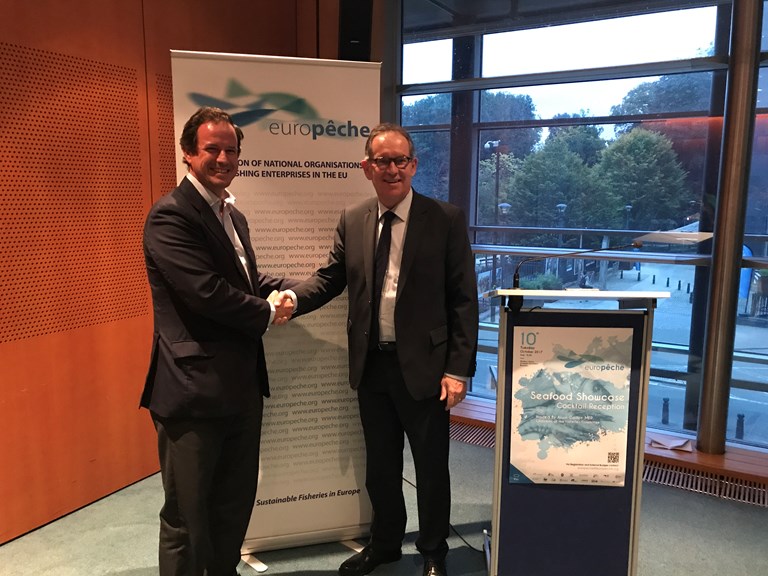
The European fishing sector, represented by Europêche, together with the Chairman of the Fisheries Committee, Alain Cadec Member of the European Parliament (MEP), co-hosted a successful Seafood Showcase reception yesterday evening in the European Parliament. The event, attended by MEPs, EU officials and stakeholders showcased fisheries products from all across Europe detailing the sustainable way in which they were caught. Attendees celebrated the significant progress in achieving sustainable fisheries in the EU.
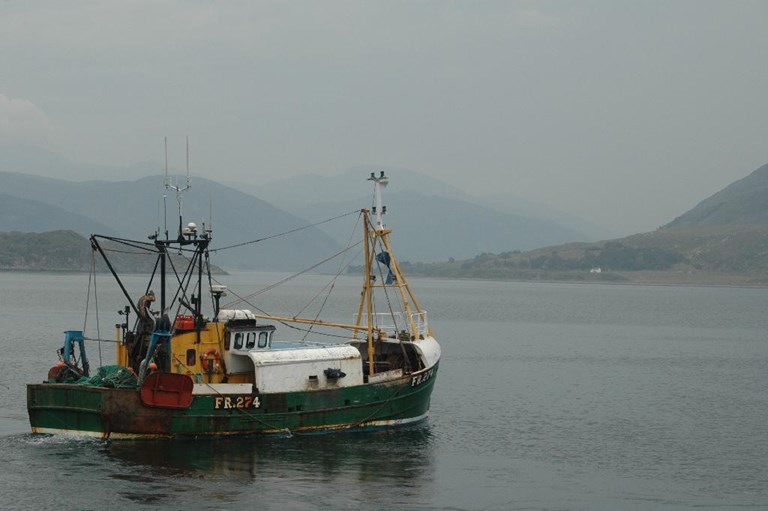
After long hours of discussion, EU Fisheries Ministers have finally agreed fishing opportunities for 2018 for the ten stocks in the Baltic Sea following talks in Luxembourg yesterday. The total allowable catches (TACs) were agreed in the framework of the Common Fisheries Policy which aims to have all stocks fished at sustainable levels by 2020.
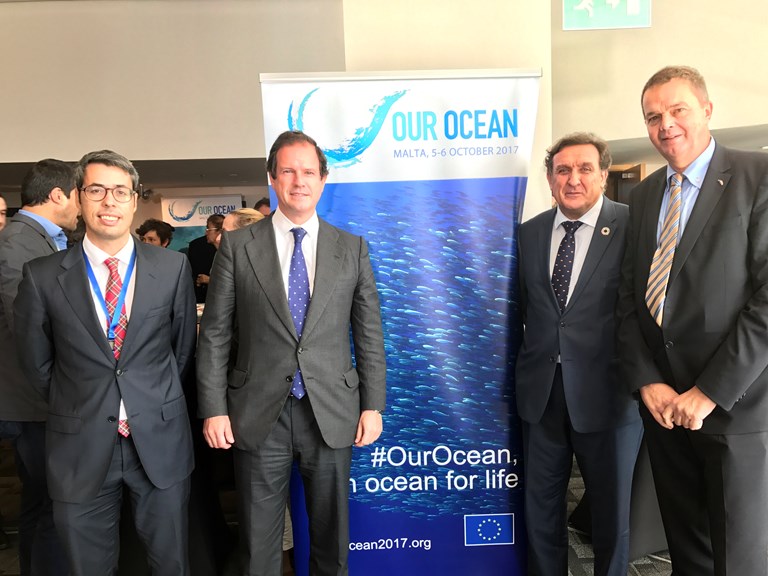
The EU hosted the fourth high-level ‘Our Ocean’ conference in Malta on 5-6 October 2017 aimed at bringing together world leaders to propose commitments to face global marine challenges and sustainably use the seas and oceans. Europêche members were honoured to contribute concrete actions, through commitments, to address these emerging issues. These pledges notably focused on the reduction of marine litter, improvement of fisheries management and fight against illegal fishing.
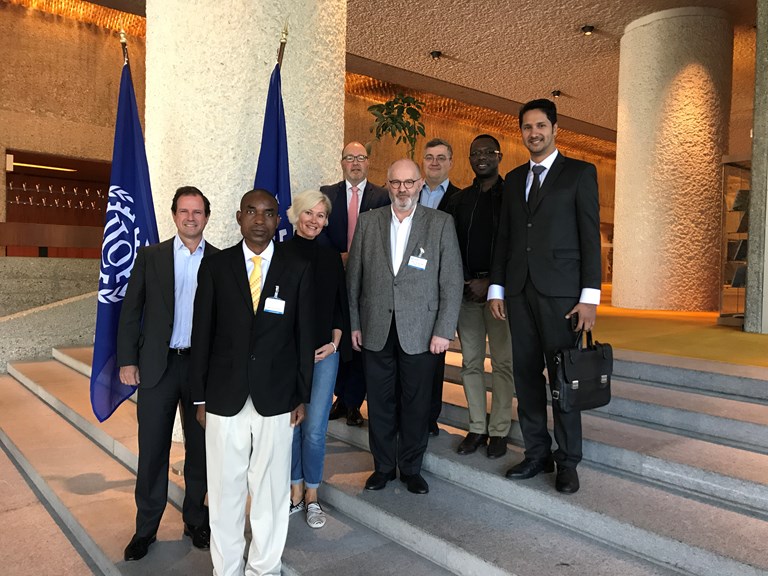
At the ‘Tripartite Meeting on Issues Relating to Migrant Fishers’ organised by the International Labour Organization (ILO) this week in Geneva, representatives from Governments, Workers and Employers adopted a set of conclusions, which includes a joint resolution, to address the challenges faced by fishers working on foreign vessels. Europêche’s representatives defended and promoted full respect for the social and labour rights of all fishing vessel’s crews and demanded that the same level of compliance must be required for all countries.
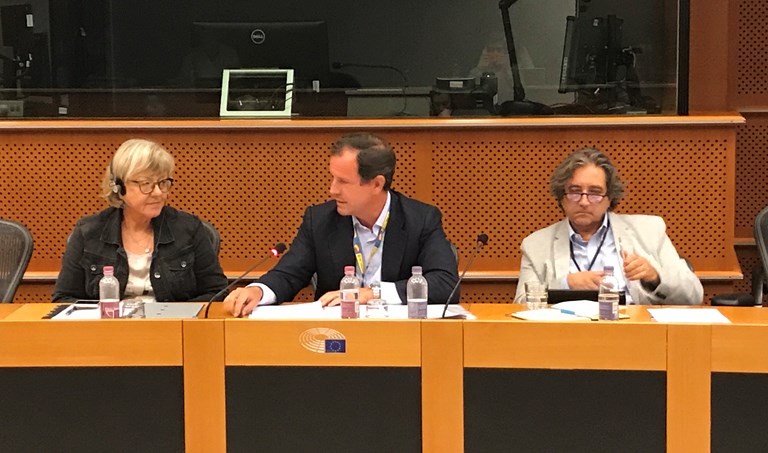
The European fishing industry represented by Europêche voiced concerns in the European Parliament (EP) over the almost total lack of implementation of the European Maritime and Fisheries Fund (EMFF) 2014-2020. The EUR 6.4 billion fund has not been operational for more than three years after its adoption (15 May 2014) and only now it is starting to be used by the Member States. In fact, although the EMFF is essential to achieve the ambitious objectives set out in the Common Fisheries Policy (CFP), up until September 2017, only 1.4% of the fund has been used. The sector also called for a post-2020 specific, flexible and simplified fisheries fund, with a larger budgetary allocation and much less bureaucracy, allowing its full use from the very beginning.
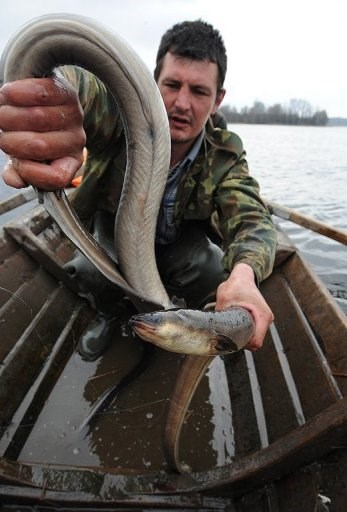
The European Commission (EC) released last week its annual proposal for fishing opportunities in the Baltic Sea 2018. With this proposal, the EC intends to ban for the first time all marine eel commercial and recreational fisheries in the EU waters of the Baltic Sea for 2018. This radical measure comes as a surprise to fisheries associations which were not previously consulted. Such a prohibition would hit particularly small-scale fishers that are critically dependent on this species.

Mr Karmenu Vella, Commissioner for Environment, Maritime Affairs and Fisheries, met yesterday with a Europêche delegation representing the long distance fishing fleet in Europe. Both Commissioner Vella and Europêche valued positively the major improvements made in the external dimension of the Common Fisheries Policy (CFP), which positions the EU distant-water fishing fleets at the forefront of the world's sustainable fisheries. The sector recalled the importance of adopting more fisheries agreements with 3rd countries which must be linked to trade and regional policies. Europêche requested further diplomatic pressure on Norway on the issue of snow crabbing and other important fish stocks in the Barents Sea and Svalbard waters.
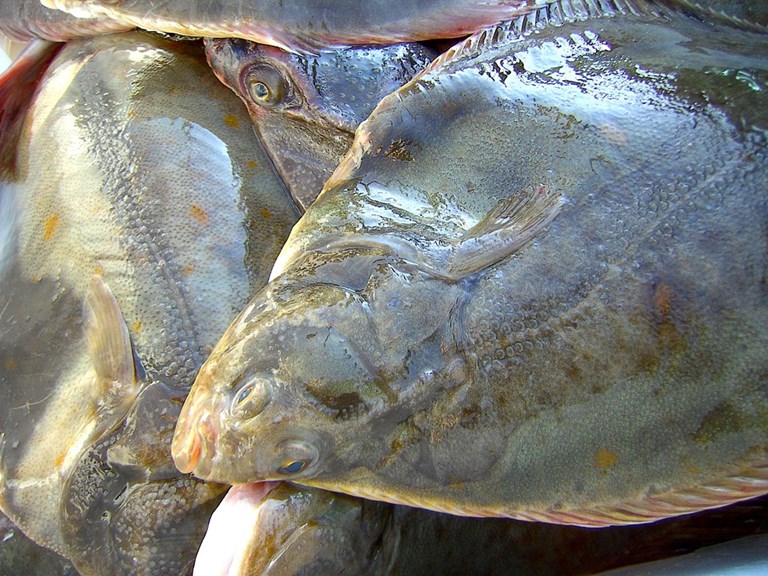
Yesterday, 12th July 2017, the European Parliament (EP) Committee on Fisheries adopted its position on the European Commission proposal establishing a multi-annual plan for demersal stocks in the North Sea. Europêche welcomes the decisive step forward towards the final adoption of this legislative proposal which, in the context of regionalisation, will bring decision-making closer to fishers operating in this area. However, certain measures adopted by the EP, such as the introduction of multiannual fishing quotas for certain stocks, would pose a threat to the implementation of the landing obligation and therefore would fail to tackle the complexities of mixed fisheries.
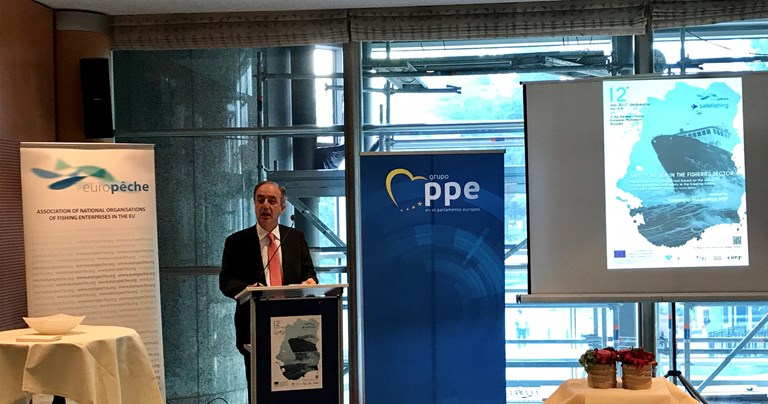
The European fishing sector, represented by a consortium of fisheries organisations, together with the Member of the European Parliament (MEP), Mr Millán Mon, co-hosted a successful reception yesterday evening in the European Parliament. The event brought together a wide range of fisheries stakeholders, including representatives of EU Institutions, industry and civil society with the aim to present and disseminate the results of the EU project called ‘SAFEFISHING’, aimed at promoting best safety practices at work and reducing the accident rate in the fishing sector.
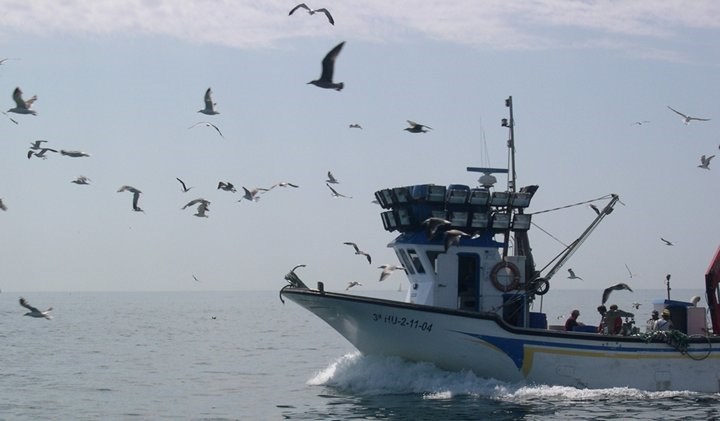
This week, officials from the European Union and Guinea-Bissau (GB) met in Brussels to discuss the new terms and conditions for a new Protocol implementing the current sustainable fisheries partnership agreement (SFPA). This new agreement would allow around 50 EU vessels to continue fishing important species such as tuna, cephalopods, horse mackerel or shrimps in GB's waters for the next years in a transparent legal framework. However, due to disproportionate economic and technical conditions proposed by GB's authorities, the negotiations have been put on hold. The fishing vessel owners represented by Europêche regret these developments and hope that negotiations can resume and lead to a realistic agreement beneficial for both parties in the near future.

The European Court of Auditors (ECA) presented today at the European Parliament a special report called "EU fisheries controls: more efforts needed". The report examined the effectiveness of the current EU fisheries Control Regulation by auditing the control system implemented in four key Member States (Spain, France, Italy and the UK (Scotland)). The ECA concluded that the EU does not yet have a sufficiently effective system of fisheries controls to support the Common Fisheries Policy (CFP). Europêche, while recognising that there are areas for improvement, considers that the report does not reflect the significant progress made on fisheries control and monitoring over the last years nor represents the actual situation in the whole European Union.

The Council of the EU and the European Parliament have reached a political agreement on a new legislative framework for the sustainable management of the external fishing fleets. The new regime sets out strict, transparent and harmonised rules for issuing and managing fishing authorisations to EU vessels fishing outside Community waters and to foreign vessels operating in EU waters. While Europêche agreed on the need to modernise the system, the fishing body urged the deletion of certain provisions which were threatening the survival of responsible fishing companies. In this sense, the fishing association celebrates that their call to eliminate the infamous “double penalty system” from the text of the Regulation was finally endorsed by the co-legislators.
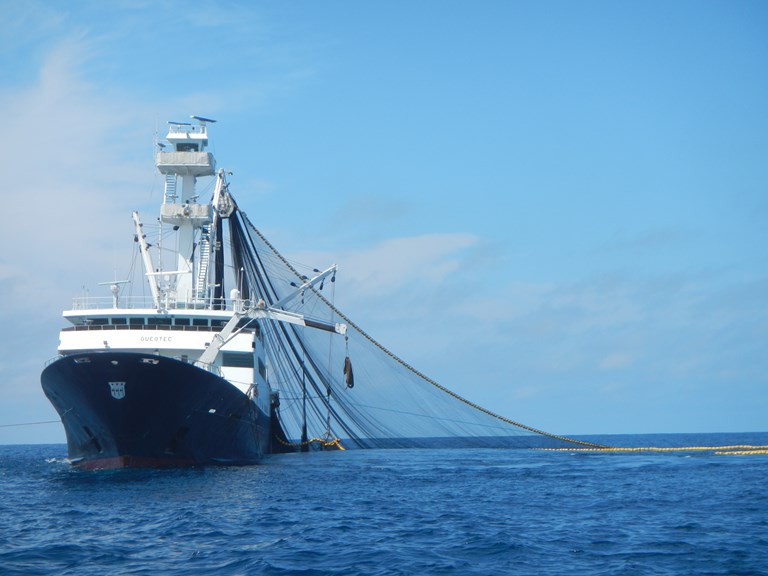
On 26th April, the European Union and the Republic of Mauritius signed a new Protocol to implement the Sustainable Fisheries Partnership Agreement in place, setting the legal conditions to allow EU tuna fishing vessels to fish in Mauritius waters for the next 4 years. While the EU fishing sector broadly welcomes this agreement, it regrets the missed opportunity to strengthen sustainable fisheries and ocean governance in the Indian Ocean by linking this and other fisheries agreements to regional management policies and negotiations.
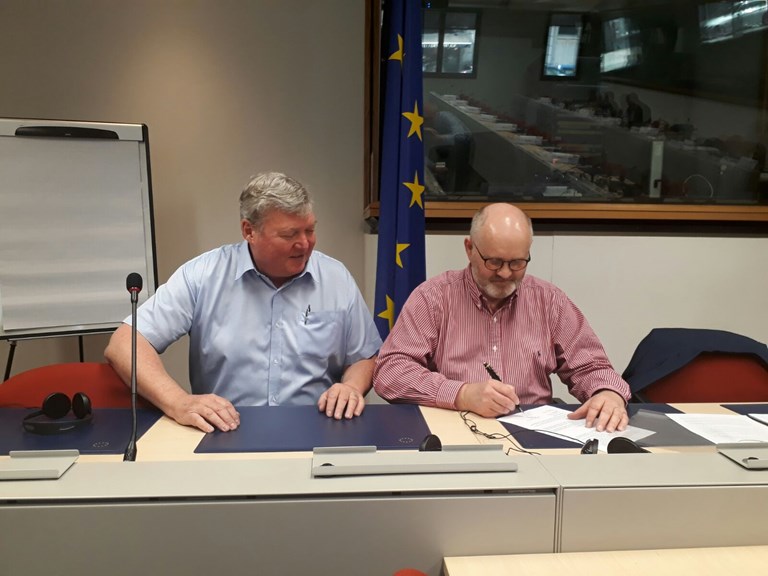
On Wednesday 10 May the European social partners* on sea-fisheries signed a resolution inviting the European Union (EU) to take up its responsibility and end forced labour practices in EU waters. Investigations executed by the International Transport Workers’ Federation (ITF) revealed serious infringements of fundamental principles at work and social protection rights of migrant fishers in a part of the EU’s fishing sector. The social partners expect the EU to ensure fulfilment by Member States of their obligations and to adopt guidelines for flag state and port state inspections to prevent such practices.
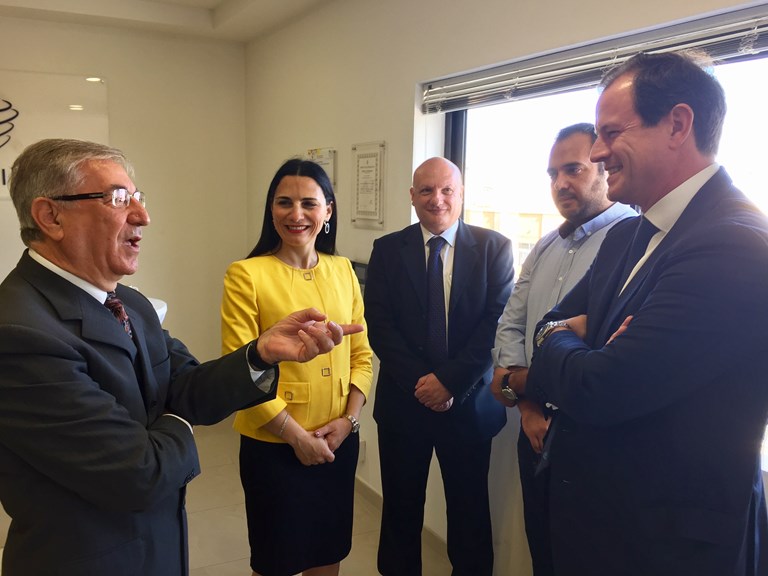
Europêche, the representative body for fishermen and fishing vessel owners in the EU, had the privileged to receive Mr Karmenu Vella (Commissioner for Environment, Maritime Affairs and Fisheries) and Dr Andreina Fenech (Director General, Ministry for Sustainable Development, Environment and Climate Change) as guests of honour at Europêche’s General Assembly held at Koperattivi Malta headquarters. Both the Commissioner and the Director General coincided in valuing optimistically the positive trend in European fisheries and listened to the industry’s concerns regarding current developments on fisheries policies, particularly the landings obligation. All parties showed a strong commitment to reverse the situation in the Mediterranean by adhering to the ambitious targets set in the Malta MedFish4Ever Declaration.
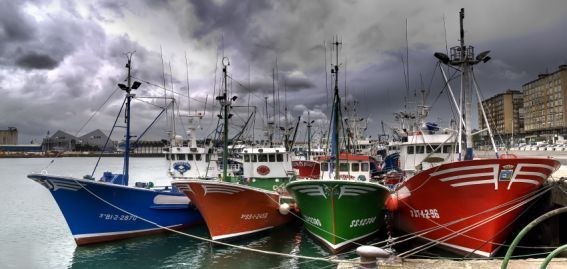
A recent report published by Corporate Europe Observatory (CEO) and Seas at Risk criticises fishing industry representatives for having accessed the press room of the EU Council building during past year’s negotiations on fishing opportunities (or total allowable catches – TACs and Quota) and accuses the Fisheries Ministers of adopting the level of TACs above the scientific advice due to the influence of the fishing lobby.
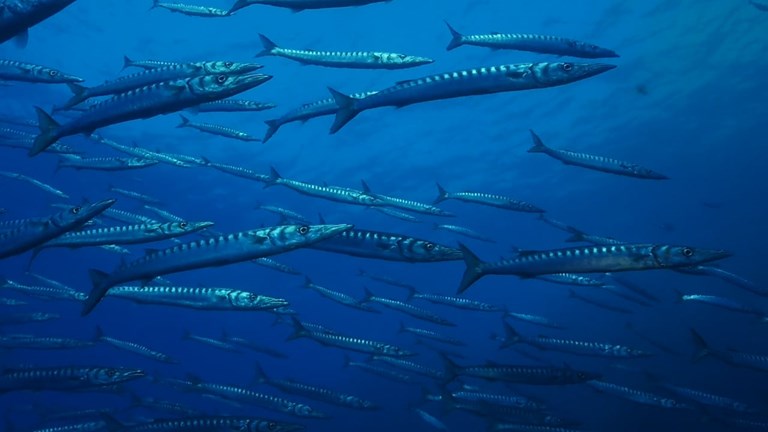
The European Scientific, Technical and Economic Committee for Fisheries (STECF) has recently published its annual report on the performance of the Common Fisheries Policy (CFP) as regards the progress on the situation of the fish stocks and exploitation levels. Decades of self-sacrifice is returning our fisheries to greatness, since the report clearly shows that stocks status is significantly improving. It also reflects an overall downward trend in the fishing pressure. However, additional efforts are still needed, particularly in the Mediterranean.
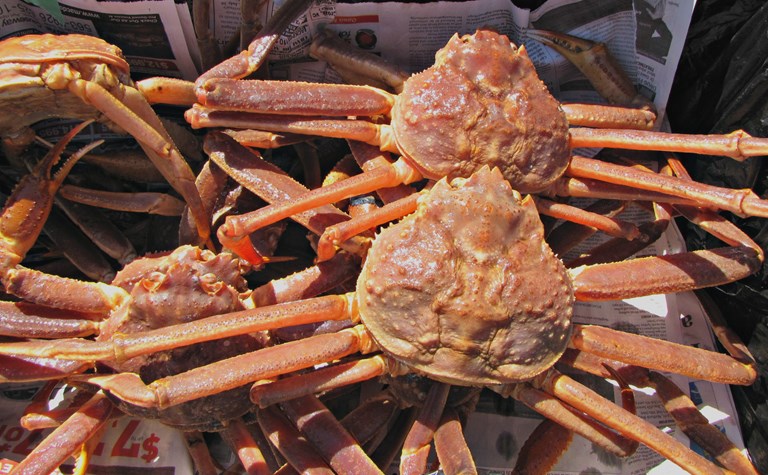
Since 2013, EU vessels have been authorised to fish for snow crab in the Barents Sea and Svalbard waters. Even though these vessels carry a valid fishing license, a few were arrested by the Norwegian authorities, who refuse to recognise the legitimate right of EU vessels to sustainably and legally operate in this area. To date, 19 large boats from several EU countries remain tied up in port out of fear of being arrested. A recent Norwegian court ruling has declared Norwegian restrictions illegitimate and contrary to the international obligations undertaken by Norway.
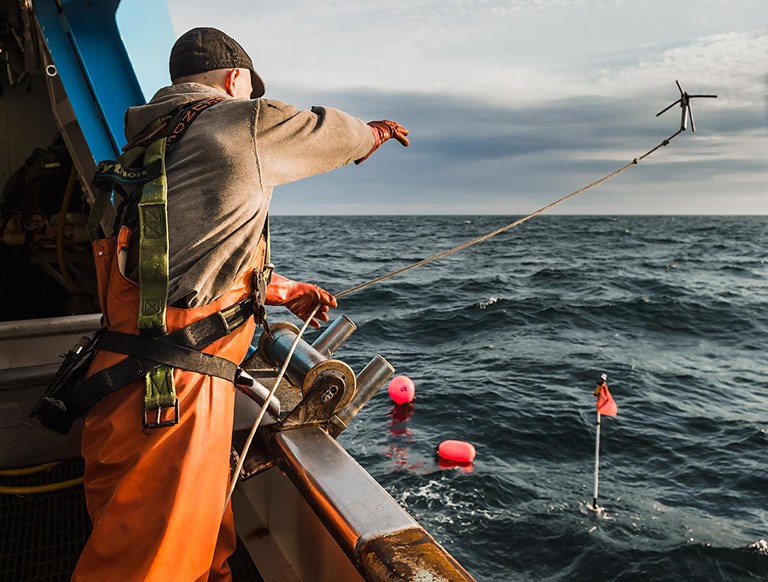
01/03/17 - Industry welcomes French government call for more socially sustainable fisheries policies
Yesterday, 28 February 2017, during a seminar organised by the European Transport Workers’ Federation (ETF) in the framework of the European Shipping Week, Thierry Coquil, Director for Maritime Affairs in the French administration, delivered a message of the French Secretary of State for Transport Alain Vidalies, which also included concerns on fisheries.
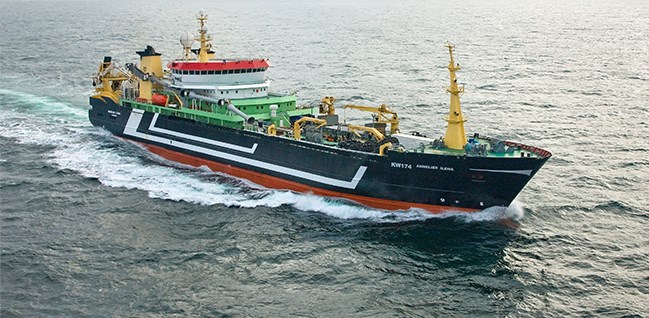
Today, the European Parliament (EP), in its plenary session in Brussels, voted in favour of the new proposal for a regulation on the sustainable management of external fishing fleets (COM(2015)636). The whole EU fishing industry is deeply concerned with one of the articles adopted since it could put out of business environmentally and socially responsible fishing companies which may commit one single mistake.
Comunicados de prensa 2016
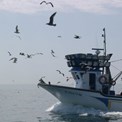
La industria pesquera está decepcionada por la decisión de la Comisión Europea de mantener las Directivas sobre aves y hábitats sin cambios
Europêche, organismo representativo del sector pesquero de la UE, ha expresado su frustración por la decisión adoptada por el Colegio de Comisarios de reconocer que, tras un "control de aptitud", las Directivas europeas sobre aves y hábitats siguen siendo pertinentes y adecuadas. Por lo tanto, sobre la base de esta decisión, estas Directivas no serán revisadas. Sin embargo, la Comisión Europea (CE) elaborará un plan de acción para corregir las deficiencias detectadas en la aplicación de las Directivas sobre aves y hábitats.
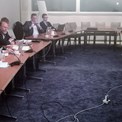
El equipo directivo de Europêche confirmó por otros dos años
En su Asamblea General celebrada esta semana, Europêche confirmó el mandato de su Presidente, Javier Garat, por otros dos años. El Sr. Garat es Secretario General de CEPESCA, Confederación Española de Pesca.
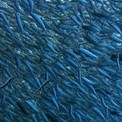
El Consejo de Pesca establece límites de captura en el Atlántico y el Mar del Norte para 2017
En las primeras horas, tras negociaciones intensivas de dos días, el Consejo de Pesca ha alcanzado un acuerdo sobre las posibilidades de pesca para 2017 sobre la base del objetivo de alcanzar los rendimientos máximos sostenibles hasta 2017, cuando sea posible y, a más tardar en 2020, teniendo en cuenta factores socioeconómicos debidamente justificados.
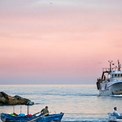
EUROPECHE y EAPO piden a los Ministros de los Estados miembros de la UE que decidan los TAC y cuotas 2017 teniendo en cuenta la integridad de las pesquerías de la UE
Antes del Consejo de Pesca de diciembre de 2016, la EAPO y Europêche han enviado a los miembros del Consejo un documento de posición conjunto con observaciones generales y recomendaciones pertinentes sobre unas 25 poblaciones de peces. Como tal, la industria pesquera está pidiendo al Consejo de Ministros de Pesca que no adopte el calendario para alcanzar el máximo rendimiento sostenible como dogma, sino aplicar un enfoque pragmático y de sentido común para alcanzar los objetivos de la Política Pesquera Común (PPC).

Los interlocutores sociales de la UE en el sector pesquero se reúnen con el Comisario Vella para garantizar unas normas sociales sólidas en el sector pesquero
En la sesión plenaria celebrada el 4 de noviembre de 2016, los interlocutores sociales de la UE en el sector pesquero * celebraron una reunión positiva con Karmenu Vella, Comisario de Medio Ambiente, Asuntos Marítimos y Pesca, para debatir los numerosos problemas apremiantes que afronta el sector pesquero; especialmente en materia de seguridad, salud y condiciones de trabajo en el mar.
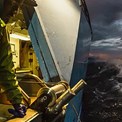
El Acuerdo de los Socios Sociales se convierte en Directiva de la UE y abre el camino hacia un trabajo decente en el sector pesquero
Hoy en día, el Consejo de la UE aprobó una Directiva que regula las condiciones de trabajo en el sector pesquero, a raíz de una solicitud de larga data de los interlocutores sociales de la UE (la Federación Europea de Trabajadores del Transporte (ETF), Europêche * y Cogeca).
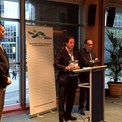
El sector pesquero de la UE celebra los pescados y mariscos de origen sostenible en el Parlamento Europeo
El sector europeo de la pesca, representado por Europêche y EAPO, junto con el Presidente de la Comisión de Pesca, Alain Cadec Miembro del Parlamento Europeo (MPE), acogió ayer por la noche en el Parlamento Europeo una recepción triunfal de Seafood Showcase. El evento, al que asistieron los eurodiputados, funcionarios de la Comisión Europea y partes interesadas, expuso productos pesqueros de toda Europa detallando la forma sostenible en la que fueron capturados.
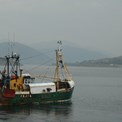
Los pescadores demersales en el Báltico sufrieron un duro golpe por parte de la UE
La pesca demersal en el Mar Báltico se ha visto afectada por el Consejo de Ministros el lunes por la noche cuando llegaron a un acuerdo sobre las posibilidades de pesca para 2017 en el Báltico. Los ministros terminaron por acordar una reducción de las cuotas de nada menos del 56% para el bacalao en el Mar Báltico occidental, mientras que la cuota de bacalao en el Mar Báltico oriental se redujo en un 25%.
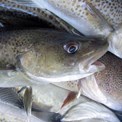
Los pescadores en pequeña escala pierden con los recortes propuestos por la Comisión al bacalao del Báltico
Europêche, organismo representativo de los pescadores europeos, ha respondido a las propuestas de la Comisión para 2017 sobre las asignaciones de bacalao del Báltico, que muestran una caída colosal con respecto a las cifras del año pasado. La cuota propuesta para el bacalao del Báltico Occidental asciende a 1588 toneladas, un 88% menos que las cifras de 2016 y una reducción de casi el 40% para el stock oriental.
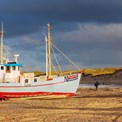
Industria indignada por recomendación infundada de cerrar 30% de áreas marinas a nivel mundial a la pesca
Europêche, organismo representativo del sector pesquero de la UE y EAPO, organismo europeo que representa a las organizaciones de productores, han expresado su indignación ante la decisión adoptada por la Unión Internacional para la Conservación de la Naturaleza (UICN) de fijar un objetivo ambicioso con el objetivo de cerrar del 30% de todas las áreas marinas de actividades extractivas para 2030.
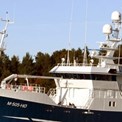
Europêche: la prohibición arbitraria de 800m en alta mar carece de base científica
Según Europêche, la prohibición de ayer establecida por el Parlamento, el Consejo y la Comisión Europea es arbitraria y sólo responde a intereses políticos y no a las amenazas ambientales reales. La prohibición está incluida en la regulación de la pesca en aguas profundas desde ayer.

Los científicos están de acuerdo con la mejora de las poblaciones en las pesquerías europeas pero queda trabajo por hacer
Europêche ha acogido las palabras de la comunidad científica y del Comisario Vella en el seminario sobre "el estado de las poblaciones de pescado" organizado por la Comisión Europea. El Comisario reflejó las palabras de los científicos que, de manera general, la mortalidad por pesca se ha reducido y las existencias están creciendo, por lo que es una industria más rentable para los pescadores. Sin embargo, a pesar de estas buenas noticias, reiteró que se necesitaban más esfuerzos respecto al mar Mediterráneo.
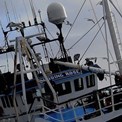
Europêche: la prohibición arbitraria de 800m en alta mar carece de base científica
Según Europêche, la prohibición de ayer establecida por el Parlamento, el Consejo y la Comisión Europea es arbitraria y sólo responde a intereses políticos y no a las amenazas ambientales reales. La prohibición está incluida en la regulación de la pesca en aguas profundas desde ayer.
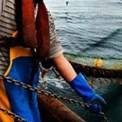
El Acuerdo de los interlocutores sociales para mejorar las condiciones de trabajo en el sector pesquero, finalmente presentado al Consejo
Casi tres años después de la presentación del Acuerdo de los interlocutores sociales (SPA) sobre la aplicación del Convenio sobre el trabajo en la pesca C188 de la OIT , la Comisión Europea (CE) ha presentado hoy, el 29 de abril de 2016, el acuerdo ante el Consejo de la UE. Los interlocutores sociales europeos de Pesca, Europêche, Cogeca y la Federación Europea de Trabajadores del Transporte (ETF) **, han calurosamente dado la bienvenida a este paso pero lamentan el retraso considerable en la aplicación del SPA que garantiza un alto nivel de protección para los pescadores en todos los aspectos de su trabajo. Los interlocutores sociales llamaron a todos los Estados miembros de la UE para apoyar la propuesta de Directiva del Consejo e instarlos a ratificar el Convenio 188 de la OIT.
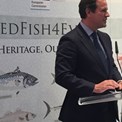
El potencial de recuperación del mar Mediterráneo es alto
El presidente de Europêche, Javier Garat, fue el orador clave en un debate público celebrado en el evento más grande de la industria de Europa, Seafood EXPO en Bruselas organizado por el Comisario Vella. Durante el debate, el Comisario puso en marcha una 'Estrategia Mediterránea' y una llamada a la acción para detener la degradación del medio ambiente y la amenaza para muchas comunidades pesqueras vulnerables.
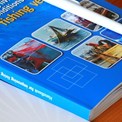
Llamada de atención para que los Estados miembros de la UE ratifiquen el Convenio sobre el trabajo en la pesca C188 de la OIT
Los interlocutores sociales europeos para la pesca, Europêche y la Federación Europea de Trabajadores del Transporte (ETF)*, llamaron a todos los Estados miembros de la UE a ratificar con urgencia el Convenio de la OIT ** que proporciona normas mínimas para proteger a los pescadores en todos los aspectos de su trabajo. En una declaración conjunta firmada el 14 de abril en La Haya, Países Bajos y los interlocutores sociales recordaron también las instituciones europeas sobre sus responsabilidades en este proceso. Los interlocutores sociales se han felicitado de la volontad de la Presidencia del Consejo de la UE para trabajar en el acuerdo de los interlocutores sociales (SPA), que ha sido firmado en 2012, pero aún no ha sido presentado ante el Consejo.

El sector pesquero exige la igualdad de trato en las actividades marinas
Europêche, el cuerpo líder representativo de la industria de la pesca en Europa ha pedido la igualdad de trato tras la publicación de las nuevas áreas de exploración de petróleo y de gas en un momento en que estas áreas estan amenazadas de cierre a una parte de la flota pesquera europea.
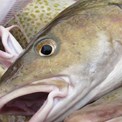
Plan plurianual Báltico: Cuando la hilatura política se desliza
Europêche, el cuerpo líder representativo de la industria de la pesca en Europa, ha respondido a las reclamaciones del artículo publicado en The Guardian el jueves 10 en marzo, el cual establece que un plan de la Comisión Europea para el Mar Báltico se había filtrado y abriria las puertas hacia la sobrepesca. El artículo afirma que el bacalao del Báltico podría extinguirse y que algunas poblaciones de peces están en malas condiciones hasta tal punto que los científicos son incapaces de llevar a cabo una evaluación adecuada.
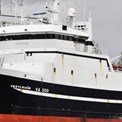
EUROPECHE ruega la Comisión Europea de promover la política de pesca en aguas profundas en línea con los estándares internacionales y la ciencia
Los miembros de Europêche se reunieron hoy con el Director General de la DG MARE, Joao Aguiar Machado, para expresar su preocupación por las negociaciones en curso en relación con posibles restricciones a la pesca de arrastre. Podría ser el comienzo de una prohibición de 800m, incluso para áreas ya reguladas en aguas internacionales.
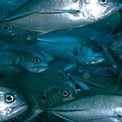
Los científicos y la industria unidos declarando que un estudio de la captura global es erróneo y engañoso
Un nuevo documento dirigido por Daniel Pauly ha afirmado que los datos de capturas mundiales, según lo informado por la Organización para la Agricultura y la Alimentación (FAO), es incorrecta y que, de hecho, debería ser más baja, citando la sobrepesca como la causa.

Los interlocutores sociales europeos promoven la ratificación del Convenio sobre el trabajo en la pesca C188 de la OIT en Bulgaria
Durante una reunión celebrada el 28 de enero en Sofía, Bulgaria, los interlocutores sociales europeos de la pesca *, la ETF y Europêche, promovieron junto con la OIT ** la rápida ratificación del Convenio sobre el trabajo en la pesca C188. El evento también contó con la participación de representantes de alto nivel de los Ministerios Bulgaros del Trabajo, del Transporte y de la Agricultura, que comparten la competencia sobre la ratificación de la Convención.
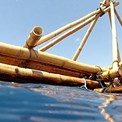
Las ONG reconocen los esfuerzos del sector del atún en la mejora de gestión de pesca
Hoy Europêche, el organismo europeo que representa el sector pesquero se reunió con varias ONG en el Parlamento Europeo para discutir del uso de dispositivos de concentración de peces (DCP) y la forma de mejorar la gestión de las pesquerías de atún. La reunión, organizada por el eurodiputado Ulrike Rodust y asistida por los eurodiputados socialistas y demócratas, permitió al sector del atún transmitir sus iniciativas para una mejor gestión de los DCP y explicar cómo el sector se ha comprometido a una explotación sostenible de las especies.
Comunicados de prensa 2015
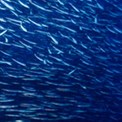
Las posibilidades de pesca de la UE para 2016
En las primeras horas, el Consejo de Pesca llegó a un acuerdo largamente esperado sobre las posibilidades de pesca para 2016; justo unas semanas antes de la que la última y más difícil etapa de la prohibición de los descartes entre en vigor. De manera general ha sido positivo respecto al aumento de las cuotas en muchas poblaciones, lo cual refleja una gran mejora en las medidas de gestión y pone de relieve los enormes sacrificios realizados por el sector pesquero.
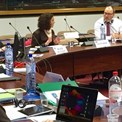
Los interlocutores sociales europeos estan comprometidos a superar las deficiencias sociales en la Política Pesquera Común (PPC)
En la reunión plenaria celebrada el 30 de noviembre de 2015 los representantes de Europêche, de Cogeca y de la organización de trabajadores ETF se han renido para mejorar las condiciones sociales y del trabajo de los pescadores por toda Europa. Las discusiones se llevaron a cabo para hacer frente a los problemas que enfrenta la industria pesquera europea debido a la falta de reconocimiento de las cualificaciones de los pescadores, la falta de seguridad y de formación profesional, la alta tasa de accidentes en el mar, la salud laboral y de los trabajadores migrantes.
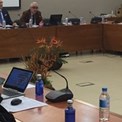
Los interlocutores sociales europeos en el sector pesquero encomiendan las autoridades españolas a ratificar rápidamente el Convenio sobre el trabajo en la pesca C188 de la OIT.
En el marco de un proyecto europeo cofinanciado, los interlocutores sociales europeos de la pesca, ETF y Europêche, Organizaron una reunión en Madrid para pedir a España que ratificara rapidamente el Convenio sobre el trabajo en la pesca C188 de la OIT. Esta convención es aplicable a todos los tipos de buques de pesca y tiene como objetivo proporcionar normas mínimas que protejan a los pescadores en todos los aspectos de su trabajo, en lo que se considera una de las profesiones más peligrosas del mundo.

La respuesta Pew no consigue contestar a las preocupaciones de la industria pesquera de la UE con respecto a la información engañosa
Es decepcionante ver que su respuesta no aborda las cuestiones planteadas. Llamamos la atención sobre la diferencia sorprendente entre la vision del Consejo Internacional para la Exploración del Mar (CIEM) y la visión de Pew acerca de la presión de pesca y del estado de las poblaciones del Norte de Europa Occidental.
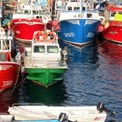
El sector pesquero de la UE manda una carta abierta a Pew sobre los daños generados por la información engañosa
En marzo de este año, Pew Charitable Trusts publicó el informe Inversion de tendencia: acabar con la sobrepesca en el norte de Europa Occidental. Ese informe contiene una serie de declaraciones que son demostrablemente falsas y contrarias a la opinión científica.
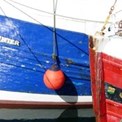
Las posibilidades de pesca para 2016 presentarán reducciones en las principales poblaciones.
La Comisión Europea ha propuesto hoy recomendaciones sobre las posibilidades de pesca para el Atlántico y el Mar del Norte para 2016. La propuesta prevé que la cuota de 35 poblaciones seguirá sin cambios o aumentara y que 28 poblaciones seran reducidas. Esta será también la primera vez que veremos un aumento de cuotas que tiene como objetivo ofrecer una compensación a los pescadores por cada pez que tienen que desembarcar en la segunda fase de la obligación de desembarque, que entrara en vigor en enero de 2016. Estos "incrementos" serán propuestos a finales de este mes. La propuesta contiene sólo la mitad del TAC ya que las negociaciones con terceros países y las OROP están aún en curso.

Europêche defiende un aumento del TAC para el atún rojo, planes de gestión para los tiburones y la recuperación del pez espada en el Mar Mediterráneo, en la reunión anual de la CICAA
En preparación de la 24ª reunión de la Comisión Internacional para la Conservación del Atún Atlántico (CICAA), que tendrá lugar en Malta desde el 10 hasta el 17 de noviembre de 2015, Europêche ha revelado sus propuestas para las diferentes especies de atún, pez espada y tiburones. En su calidad de observador, Europêche defenderá las siguientes consideraciones para garantizar la sostenibilidad tanto de las poblaciones de peces que de la industria pesquera europea.
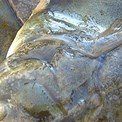
Las posibilidades de pesca del mar Báltico: cuotas manejables pero el cierre será perjudiciales para las poblaciones
Los Ministros europeos de la pesca finalmente acordaron las posibilidades de pesca para 2016 para los diez poblaciones del Mar Báltico tras las conversaciones de ayer en Luxemburgo. Las cuotas fueron consentidas en el marco de la reforma de la Política Pesquera Común con el objetivo de llegar a tener todas las reservas de pesca a niveles sostenibles para el año 2020.
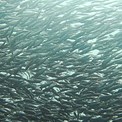
La ciencia indica que las poblaciones marinas se mantuvieron sin cambios durante casi 30 años
Las cifras publicadas por la WWF muestran que las poblaciones marinas se han mantenido casi sin cambios durante casi 30 años. A pesar de años de malas noticias sobre la muerte inminente de los océanos en el mundo, las cifras presentadas por la Sociedad Zoológica de Londres, al nombre de la WWF, muestran claramente que en los últimos 30 años ha habido poco cambio en las 5.829 poblaciones de 1.234 especies en el mundo entero. El declive de las poblaciones marinas pregonado por la WWF, se llevo realmente durante el período de 1970-1988. Desde entonces, los gráficos de WWF muestran que se quedo estable.
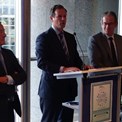
Europêche presenta pescado de la pesca sostenible en el Parlamento Europeo
Europêche y el Presidente de la Comisión de Pesca, el eurodiputado Alain Cadec, co-organizaron su segunda recepción triunfal de mariscos. El evento, al que asistio el nuevo Director General de la DG MARE, Joao Aguiar Machado, se llevó a cabo en el Parlamento Europeo y exhibio los productos pesqueros de toda Europa, detallando la forma sostenible en que fueron capturados.

Europêche exige oportunidades de pesca justa y equilibrada en el Mar Báltico
La Comisión Europea acaba publicar su propuesta de posibilidades de pesca para 2016 para las 10 grandes especies comerciales en el mar Báltico. Para 7 de estas poblaciones, la opinión científica ha aconsejado unos límites de captura a niveles de RMS.
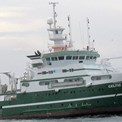
El informe sobre la regulación de la pesca profunda es una exageración
La investigación que pretende que los niveles de captura en la pesca en aguas profundas son mayores que los beneficios es falsa, según Europêche, el órgano representativo de la industria de la pesca en Europa.
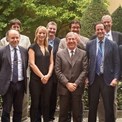
El Comisario Vella se ha comprometido en el apoyo del sector pesquero de la UE
Karmenu Vella, Comisario de Medio Ambiente, Asuntos Marítimos y Pesca, fue el invitado de honor en la Asamblea General de Europêche de esta semana, presidida por el Presidente de Europêche, Javier Garat. Durante más de dos horas, el Comisario escuchó las preocupaciones europeas sobre el desarrollo actual de la política de pesca, en el marco de la nueva Política Pesquera Común.
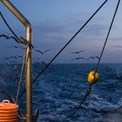
El dictamen del CIEM sobre las cuotas de pesca en el Mar del Norte de 2016 recomienda un aumento en las principales poblaciones
El Consejo Internacional para la Exploración del Mar (CIEM) acaba de publicar sus recomendaciones de cuota de captura en el Golfo de Vizcaya (incluyendo a las costas ibéricas), el Mar Céltico y el Mar del Norte para el 2016. Estas cifras, basadas en evaluaciones científicas, muestran un aumento significativo de las especies clave para el 2016, con muchas poblaciones mostrando signos claros de recuperación. Los datos científicos presentados reflejan una tendencia positiva a largo plazo del aumento de las poblaciones marinas y una reducción de la mortalidad por pesca.
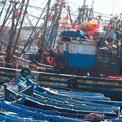
Una pesca justa en Africa
La reforma de la política pesquera común (que entró en vigor en enero de 2014) establece un marco jurídico para buques de la UE para pescar fuera de las aguas europeas. Los acuerdos de asociación de pesca sostenible (SFPAs) permiten a las flotas comunitarias pescar en aguas extranjeras, de acuerdo con el asesoramiento científico de los excedentes que de otra forma no hubiera sido capturada, mientras que proporciona una serie de beneficios para ese país. La flota de la Unión Europea que opera en la costa Áfricana se compone de unas 400 embarcaciones. Representa menos de 1% de flota europea.
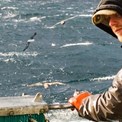
Un Taller Europeo se enfrenta a la movilidad restringida de trabajo en la industria de la pesca
Los interlocutores sociales europeos en el sector de la pesca, la industria europea de navegación, la eurodiputada Sofia Ribeiro y la Comisión Europea se reunieron para solucionar los vacíos legales existentes en las industrias de pesca y la navegación en relación con el reconocimiento de los certificados, la libre circulación de los trabajadores y la seguridad.

Les partenaires sociaux européens engagés à vaincre les lacunes sociales de la Politique commune de la pêche (PCP)
Lors de la réunion plénière tenue le 30 novembre 2015, les représentants Europêche, Cogeca, et ETF se sont rencontrés dans le but d'améliorer les conditions de travail des pêcheurs en Europe. Des discussions ont été tenues afin de répondre aux problèmes rencontrés par l'industrie de la pêche européenne, en raison de l'absence de reconnaissance des qualifications des pêcheurs, une mauvaise sécurité et formation professionnelle, au taux élevé d'accidents en mer, à la santé au travail et aux travailleurs migrants.
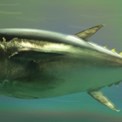
La industria pesquera acoge con satisfacción la introducción de las primeras medidas de gestión para limitar los FADs
La industria pesquera atunera de la UE acoge con satisfacción la nueva política diseñada para ayudar a la mejora continua de la sostenibilidad de los métodos de pesca, comprometiéndose a limitar el número de dispositivos de concentración de peces (FADs) que puede ser utilizado por cualquier barco pesquero.
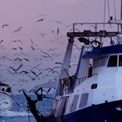
Los europeos llaman a los gobiernos a hacer más para apoyar a la industria pesquera
Los europeos creen que el sector pesquero tiene un papel vital que desempeñar en la alimentación de una población mundial en crecimiento, pero han acusado a los gobiernos de no hacer lo suficiente para apoyar al sector, según una encuesta realizada a los consumidores de todo el continente.
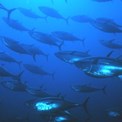
Europêche insta a la CE a eliminar los contingentes arancelarios libres de derechos de 22.000t para los lomos de atún de países del sudeste asiático
Europêche considera que existen suficientes lomos de atún procedentes de la flota comunitaria y de los países con acceso libre de aranceles a la UE. Europêche también sostienen que hay otras especies como la platija, panga, abadejo de Alaska y tilapia comúnmente utilizados como productos sustitutivos que también se benefician de las importaciones libres de aranceles a pesar de una importante mejora en los stocks comunitarios.
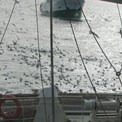
¿Quién ha realmente “invertido la tendencia”?
Declaración de Javier Garat, presidente de Europêche, en respuesta al Informe 'Turning the tide' (invirtiendo la tendencia) de la Fundación Pew.
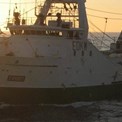
EUROPECHE REFUERZA SU TRABAJO PARA APOYAR LA INDUSTRIA PESQUERA DE EUROPA
El nombramiento de la nueva directora es señal de un nuevo impulso de renovación por parte de la patronal para transmitir la cara moderna del sector al público y los políticos
Comunicados de prensa 2014
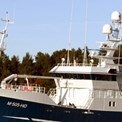
UE / PESCA: Sentimientos encontrados por parte del sector respecto a las posibilidades de pesca de aguas profundas
El Consejo de Pesca llegó a un acuerdo político sobre las posibilidades de pesca para 2015 de determinadas poblaciones de aguas profundas anoche por primera vez desde las nuevas y duras reglas de prohibición de los descartes y el rendimiento máximo sostenible (RMS) que se han decidido en base a la reformada política pesquera común.
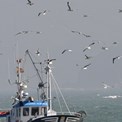
UE/PESCA: El papel esencial de nuestra flota pesquera de altura
Europêche ha publicado hoy una declaración informativa por la que declara que el tamaño de la flota pesquera es irrelevante cuando se trata de las poblaciones de peces y que en un alto grado, barcos pequeños y grandes son en realidad interdependientes.
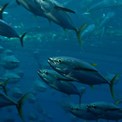
UE/PESCA: Los científicos indican una tendencia positiva en las pesquerías europeas
Europêche ha acogido con satisfacción las palabras claras de la comunidad científica y la Directora General de la DG MARE, Lowri Evans, en el seminario del viernes sobre 'el Estado de las Poblaciones de Peces' organizado por la Comisión Europea.
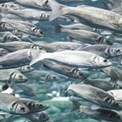
UE/PESCA: Europêche lanza la 'Exposición de productos del mar' en el Parlamento Europeo
Europêche y el Presidente de la Comisión de Pesca, Alain Cadec, fueron co-anfitriones de una triunfal exposición de productos pesqueros ayer por la tarde. El evento repleto, que se celebró en el Parlamento Europeo, ofreció una abundante variedad de productos capturados de forma sostenible con una pequeña explicación del viaje realizado desde el océano hasta el Parlamento Europeo.
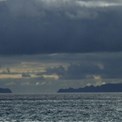
UE/PESCA: Los interlocutores sociales europeos adoptan una cláusula social a insertar en los acuerdos de pesca sostenible (SFPAs) con terceros países
En una de sus últimas reuniones, la organización de los trabajadores (ETF) y los representantes de los empleadores (Europêche y Cogeca) han adoptado formalmente una cláusula social revisada para ser incluida en los SFPAs con terceros países, que se refiere a las normas laborales y de protección social y tiene por objeto garantizar condiciones decentes de trabajo de los pescadores no comunitarios que trabajan a bordo de buques que operan en el marco de los Acuerdos Sostenibles de pesca con 3ºs países.
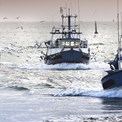
UE/PESCA: Europêche nombra nueva Director General para ayudar a asegurar un futuro sostenible para las pesquerías europeas
Bruselas: Europêche, la asociación de organizaciones nacionales de empresas de pesca en la UE, ha nombrado a Kathryn Stack como Directora General con el fin de impulsar el apoyo de la organización a la pesca sostenible y la promoción de la voz de la industria en la toma de decisiones de la UE.

UE/PESCA: Las posibilidades de pesca deben reflejar las realidades de la recuperación de los stocks
La Comisión Europea ha publicado hoy su documento de consulta anual sobre el estado de las poblaciones de peces que servirá como base para fijar las cuotas de pesca para el año 2015. Este es el primer documento de consulta sobre las posibilidades de pesca desde la reforma de la PPC, cuya nueva normativa causará revuelo en el sector y puede implicar cambios en el total admisible de capturas (TACs).
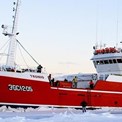
UE/PESCA: Comunicado de prensa sobre la pesca en aguas profundas
La Presidencia italiana presentó su programa de trabajo para los próximos seis meses al Consejo de Ministros de Pesca de hoy.
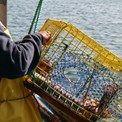
UE/PESCA: La inacción de Damanaki respecto a la Prohibición Rusa de productos del mar comunitarios causa trastornos económicos al sector
El 7 de agosto, la Federación de Rusia emitió una prohibición de las importaciones de la UE en una variedad de mariscos y productos agrícolas por un año, o al menos hasta que se levanten las sanciones impuestas por Occidente en Rusia.
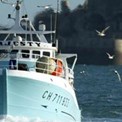
UE/PESCA: Europêche pide posibilidades de pesca justas y equilibradas en el Mar Báltico
La Comisión Europea acaba de publicar su propuesta de posibilidades de pesca de las principales poblaciones comerciales en el Mar Báltico para 2015, la primera vez desde que las nuevas y duras reglas de prohibición de los descartes y el rendimiento máximo sostenible fuesen decididas.
Comunicados de prensa 2022
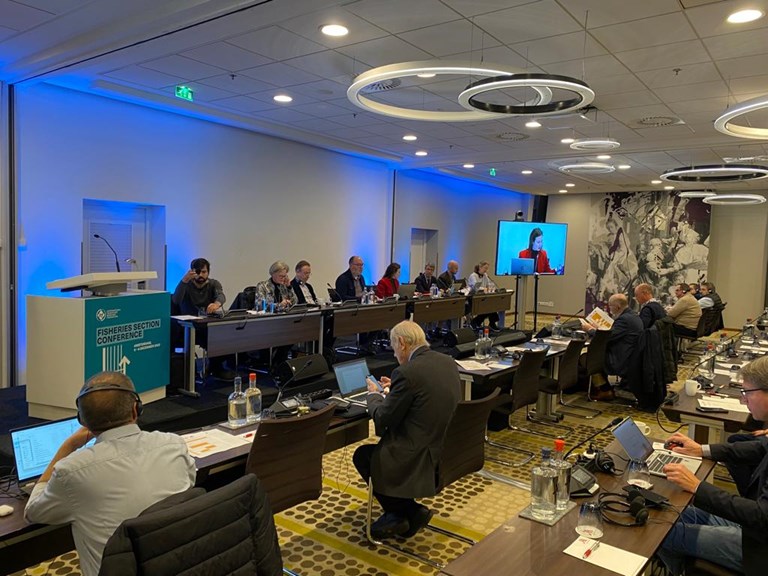
The new joint project of the European social partners for sea fisheries (Europêche and ETF) has kicked off today in Amsterdam. Following a selection process, Europêche and ETF will count with the participation of specialists to develop a wide range of studies for a safer, healthier and more worker-friendly fisheries sector in Europe and worldwide. The action will focus on trade measures to combat forced labour, develop guidelines on recruitment of migrant fishers, develop a training programme for medical examination of fishers and update a mobile app to facilitate communication on fishing vessels (FisherySpeak).
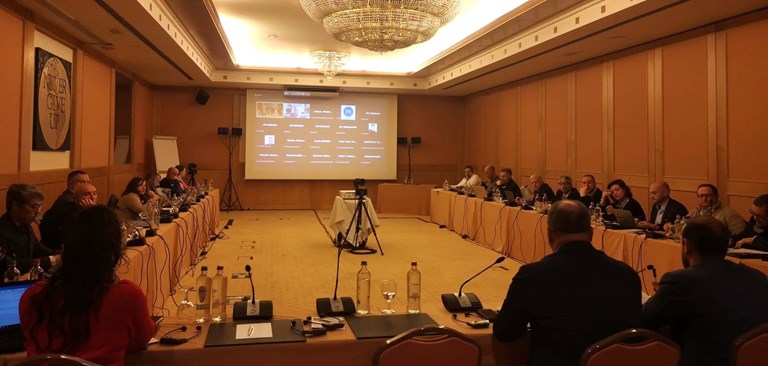
Last Friday, the Commissioner for environment, oceans and fisheries, Virginijus Sinkevičius, attended the plenary of the European Social Dialogue Committee for sea fisheries. The social partners, ETF and Europeche, had a constructive dialogue with the Commissioner about the social dimension of the CFP. Fishing sector representatives called on the Commission to seriously take into account the fact that fish workers and the livelihood of their families very much depend on the decisions taken in Brussels. Yet, despite the fact that more and more stocks are fished at sustainable levels, the EU fleet and its fishers are disappearing year after year.
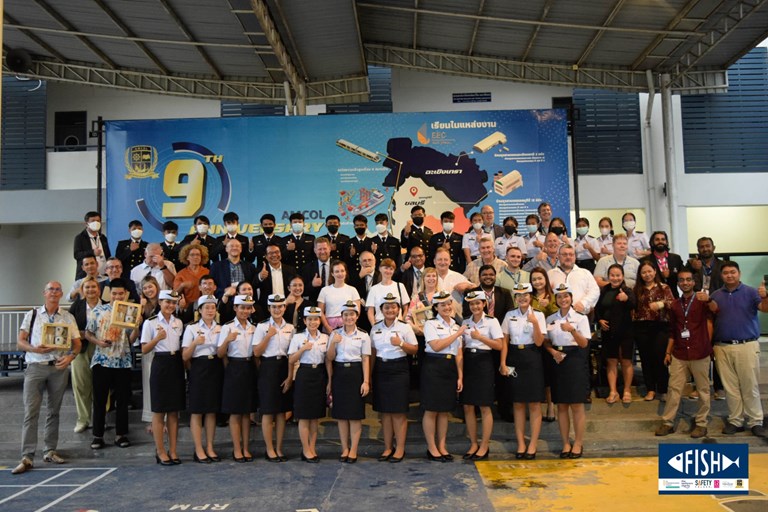
‘A fisher’s life, a fisher’s future’ has been the motto of the international conference organised by the Fishing Industry Safety and Health (FISH) Platform last week in Thailand. The FISH Platform is a world leading group of experts involved in safety and health in the fishing industry. Globally, most commercial fishers are located in the Southeast Asian region, characterised by a low level of ratification of international conventions aimed at protecting fishers’ health, safety and working conditions. The Platform considered it about time for public authorities, experts, employers and workers to come together to share experiences in the implementation of such conventions, social dialogue, and to jointly push for the sustainable management of the fishing industry. Europêche has joined the call.
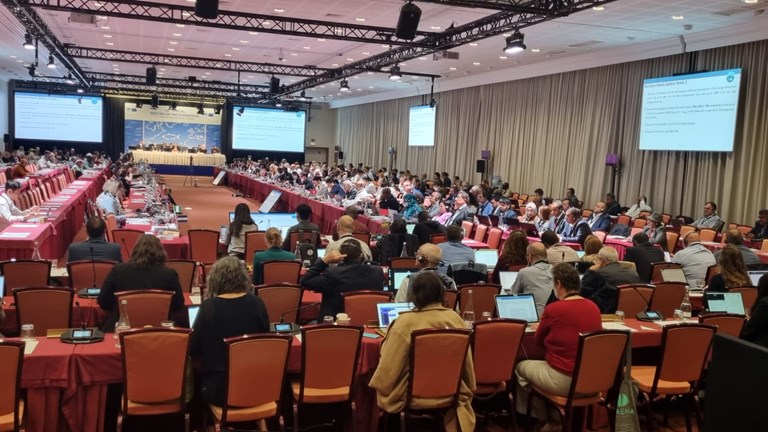
Europêche represented the European fishing fleet at the 23rd ordinary meeting of the International Commission for the Conservation of Atlantic Tunas (ICCAT) which just ended on Monday 21 November in Val de Lobo, Portugal.
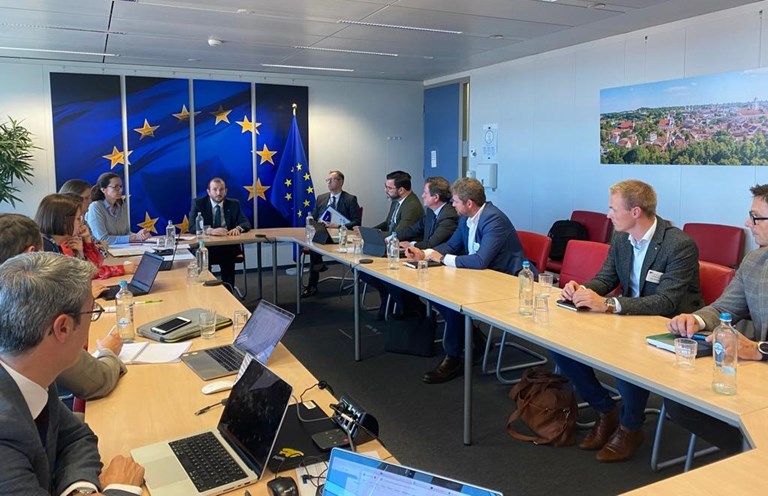
Brussels, October 21, 2022 - The European Bottom Fishing Alliance (EBFA), which represents more than 20,000 fishermen and 7,000 European vessels, met with the Commissioner for Maritime Affairs and Fisheries, Virginijus Sinkevičius, to alert and present in person the consequences of the implementing act establishing area closures in 87 areas across the Atlantic. EBFA also raised the issues of the principle of proportionality, the low legal quality of the proposed regulation as well as the lack of real consultation with stakeholders and lack of best scientific data to support parts of the new regulation.
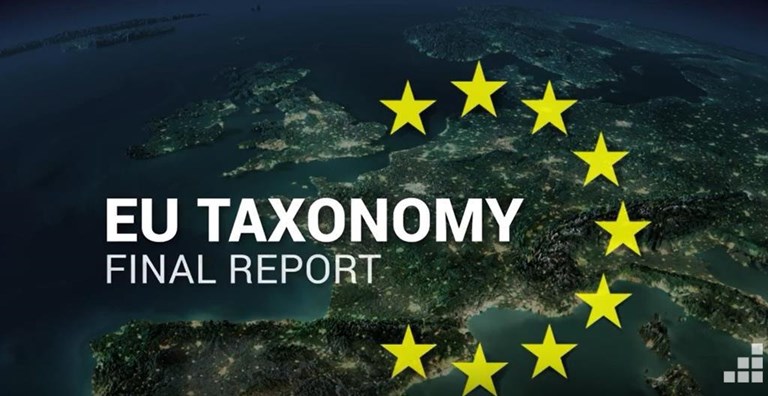
Recommendations are a wish-list of unrealistic and unachievable targets far from the fisheries realities. An unworkable EU Taxonomy will impact on the ability of operators to attract funding for their sustainable fishing activities.
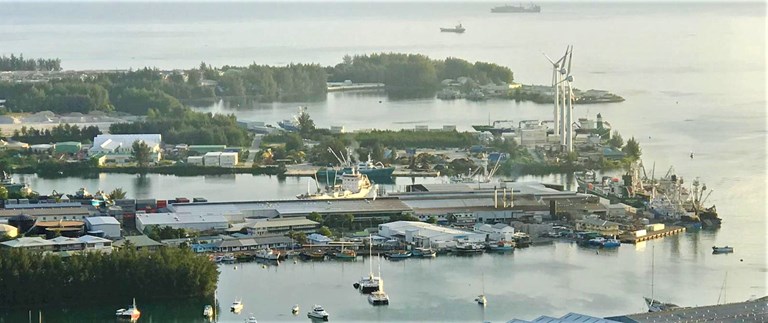
The control rule on margin of tolerance is currently incompatible with the conditions and specificities inherent to the fishing operations in the tropical tuna purse seine fishery. Crushed by heavy sanctions, EU tuna vessels operating in the Indian and Atlantic Oceans might disappear in the very near future.
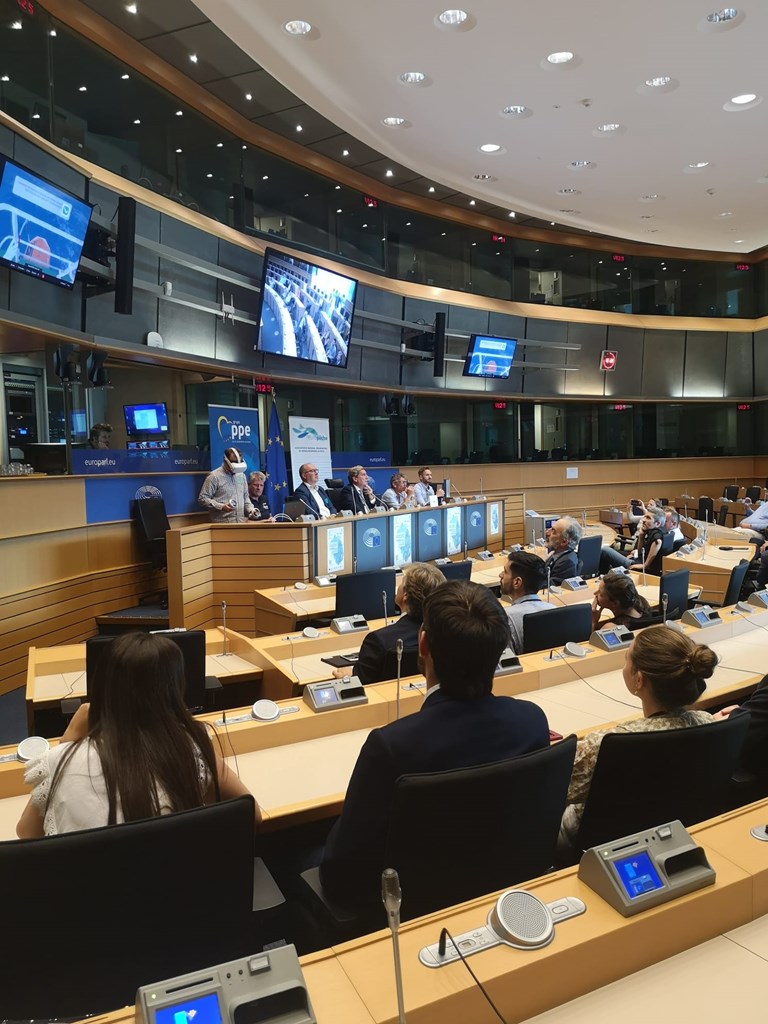
A consortium of EU fisheries experts together with the Member of the European Parliament (MEP), Mr Gabriel Mato, co-hosted a successful event to present a virtual reality simulator for maritime emergencies. The event brought together a wide range of fisheries stakeholders, including representatives of EU Institutions, industry and civil society that appreciated the innovative tool. The 3D training course accessible through a Virtual Reality kit is now publicly available to better face maritime emergency situations on board, decrease accidents and fatalities at sea and digitize the sector. This tool and training programme are the successful result of collaboration between the sector, safety specialist, training providers and IT experts.

• One billion Euros will be unlocked from the previous fisheries fund (EMFF) to support fishing companies • The sector looks forward to a speedy implementation in all Member States

The unilaterally set Northeast Atlantic mackerel quotas by Norway and Faroe Islands are unacceptable. The EU fishing industry is asking for an immediate EU response to stop Norway and Faroe Islands continuing their unsustainable and irresponsible behaviour, to prevent overfishing of the Northeast Atlantic mackerel stock. We reiterate our call on the EU Commission and the Council to make use of the instruments at their disposal, such as trade measures, for concrete action. Right now, responsible EU businesses are at risk of being disadvantaged for doing the right thing.
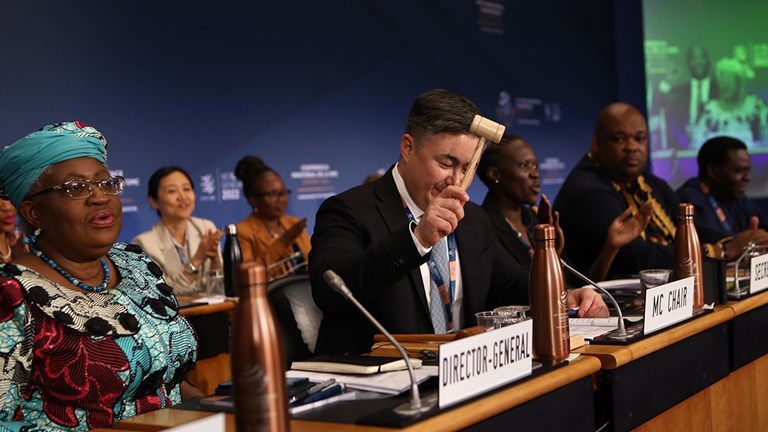
After two decades of dialogue, trade ministers from 164 countries broke today a last-minute deal on fisheries subsidies. Despite India's blocking pressures, which threatened to derail the multilateral agreement, WTO managed to sign a historic treaty to curb harmful fisheries subsidies. Europêche welcomes the introduction of fishing disciplines globally, similarly to what was done in the EU in the early 2000’s. The sector appreciates the decision of WTO not to extend the scope of the disciplines to cover non-specific fuel subsidies. However, the fleet considers the section that refers to fishing in the high seas to be very negative, since it is going to cause seriously harm in part of the EU long-distance fleet that operates in the Southwest Atlantic.
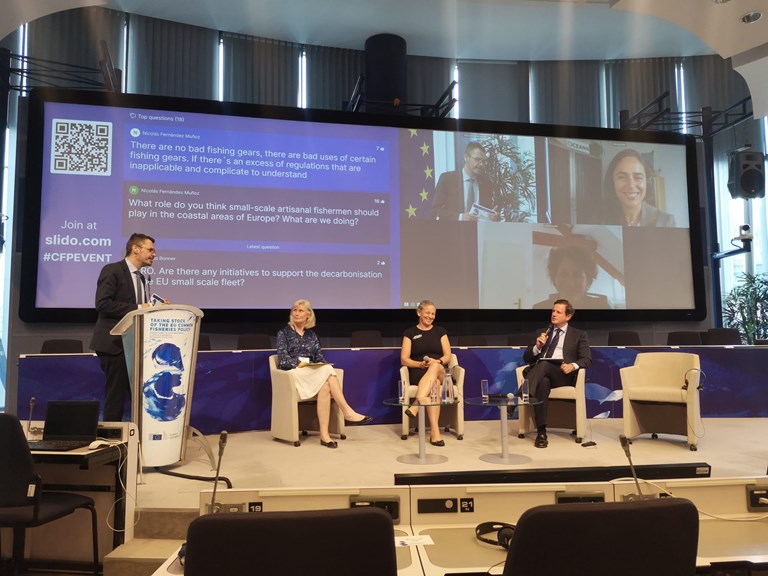
Fishing must regain its place as an essential and respected activity for the society. Environmental protection requirements must integrate but not overrule fisheries policies.
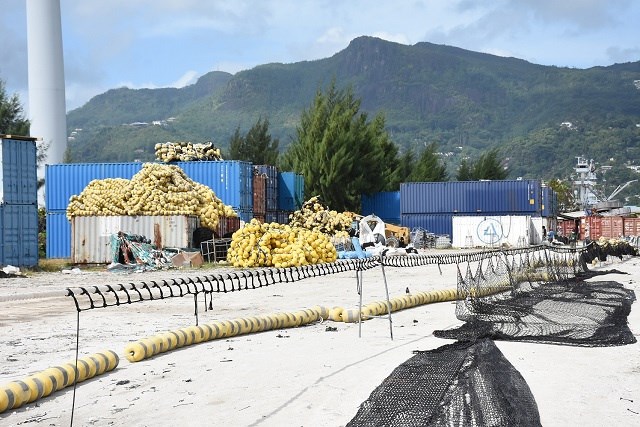
On May 19th 2022, OPAGAC and ORTHONGEL launched a joint net recycling project with BRIKOLE Ltd, a new local start-up managed by the NGO Sustainability for Seychelles .
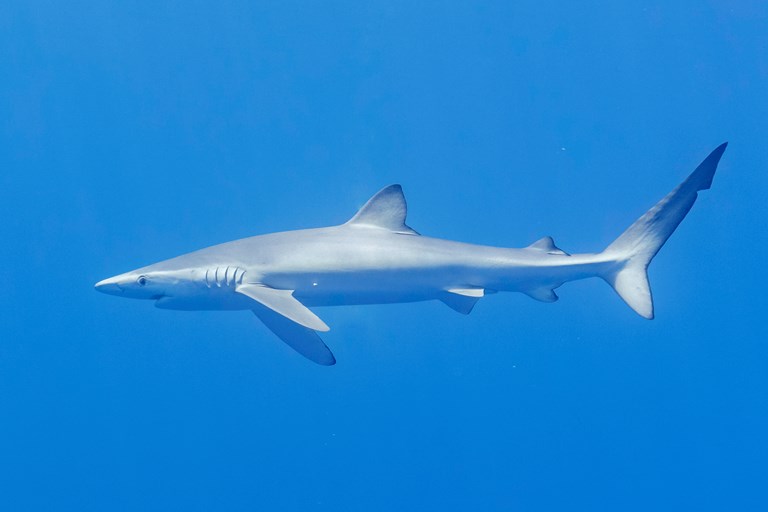
• Blue sharks are sustainably managed by international fisheries management bodies (RFMOs) and protected thanks to strong fins-attached policies and catch documentation schemes. • Blue sharks harvested by Europeans are in healthy conditions across the oceans and are not subject to illegal trade.

Out of the 9 topics discussed, 4 resolutions were adopted during the Indian Ocean Tuna Commission (IOTC) meeting that took place in Seychelles from May 16th to 20th. The 26th session of IOTC adopted a management procedure for bigeye tuna that will allow for the first time to set a total allowable catch in 2024. This proposal from Australia was co-sponsored by the EU and other countries. The adoption of catch limits for bigeye tuna marks a new milestone in the history of IOTC. This proves that Regional Fisheries Management Organisations (RFMOs) can apply modern harvest strategies for tropical tuna species based on the best science. IOTC also takes measure to improve the observer coverage, tightens monitoring and control rules on at-sea and on-port tuna transhipments and is the first RFMO adopting a Resolution on Climate Change.

• The so-called illegal fishing by EU vessels makes no sense in light of last week’s Compliance Committee in IOTC demonstrating the compliance of our fleet. • The report uses non-reliable data based on estimates and assumptions to unfairly accuse the EU tuna fleet of non-compliance with rules.
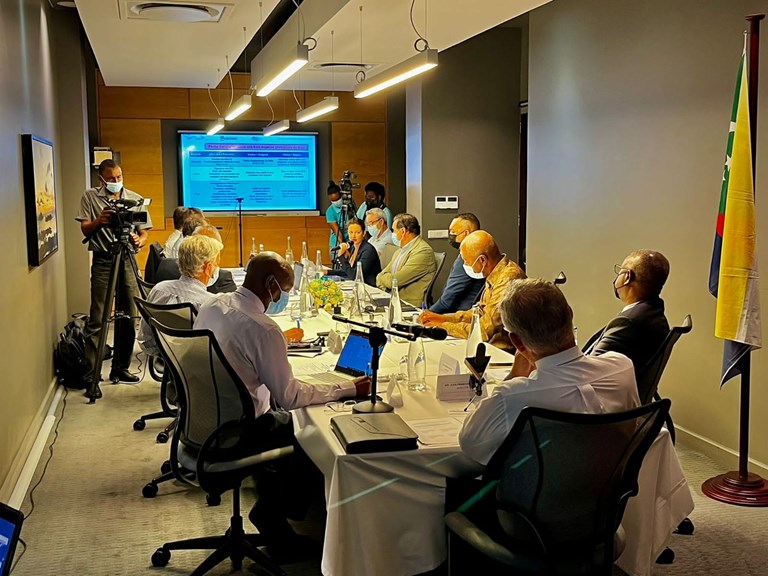
Yesterday, the fisheries Ministers from Comoros, Madagascar, Mauritius and Seychelles met at the Indian Ocean Commission (IOC) Fisheries Ministerial Summit. Ministers analysed the potential socio-economic impact that some of the proposals made by other governments for the 26th session of IOTC (16-20 May) can have on their coastal communities. Ministers also met with representatives of Europêche’s Tuna Group (AGAC/OPAGAC, ORTHONGEL, and ANABAC who joined the group) to address the situation of tuna fisheries in the Indian Ocean. The sector emphasized during the summit the substantial contribution from the Indian Ocean purse seine fleet to the local economies of the IOC countries.
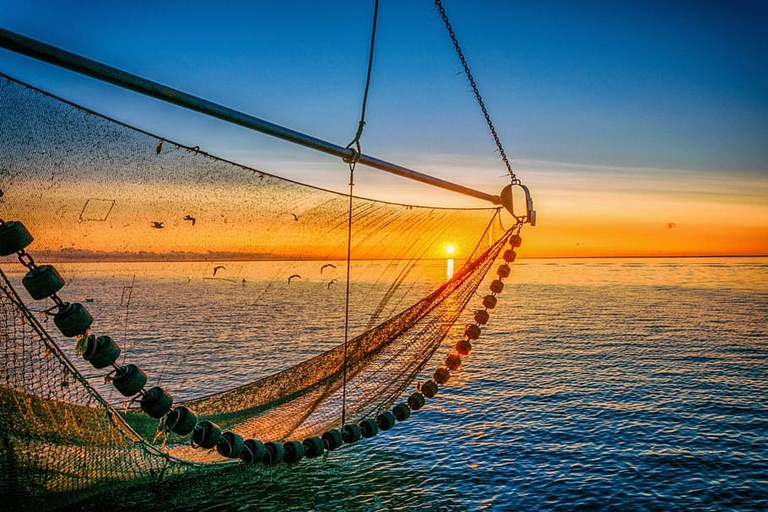
- Bottom contacting gears contribute to guarantee European food security and sovereignty; - Area closures to fishing should be done on case-by-case basis based on the best available scientific advice, not through a parody of political debate driven by NGOs and activists; - Bottom trawling is being banned from Marine Protected Areas to give way to industrial activities more environmentally intensive.
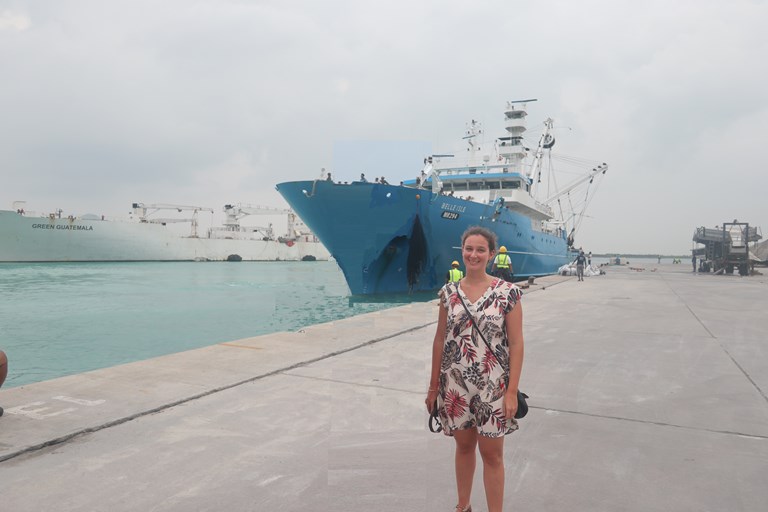
Europêche, the leading trade body representing the fishing industry in Europe, strengthens its team to boost the organisation’s support for sustainable tuna fishing and to promote the voice of the sector in wider EU and international decision making. Newly founded Europêche’s tuna group will advocate the interests of the EU and associated tuna freezer purse-seine fleet to enhance business competitiveness, improve the image of the sector, contribute to sustainable ocean governance, support the fight against IUU and labour abuse, and achieve an international level playing field.
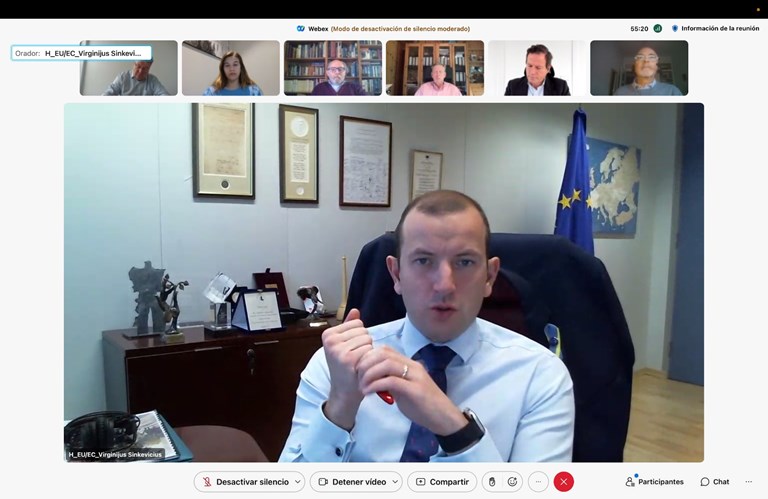
The sector calls on Member States to speed-up access to financial aid.
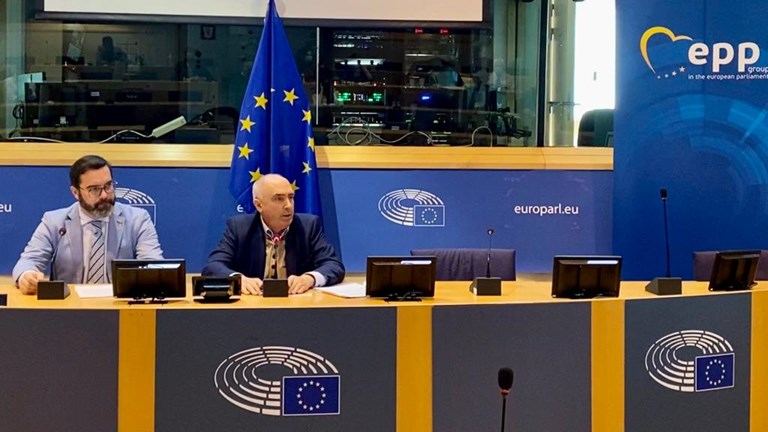
Today, fishing organisations from 14 EU countries representing over 20 000 fishers and 7 000 vessels, launched in the European Parliament the European Bottom Fishings Alliance (EBFA). Representatives of the alliance presented the reality of these fisheries across Europe and defended the use of active bottom gears as a sustainable activity. The press conference hosted by the first vice-chair of the Committee on Fisheries, MEP Peter van Dalen, drew political attention over the valuable contribution of these fleets in stark contrast with the negative perception expressed by the European Commission towards bottom gears. Decision-makers present fueled concerns over possible implications of phasing out bottom contacting gears in the upcoming EU Action Plan to further protect fisheries resources and marine ecosystems in the context of EU’s 2030 Biodiversity Strategy.
The sector dos not want a radical reform, but a surgical revision of the CFP to better balance the protection of biodiversity, sustainable use and food security. Fishers are blamed for not fulfilling radical fisheries policies which per definition are unachievable.
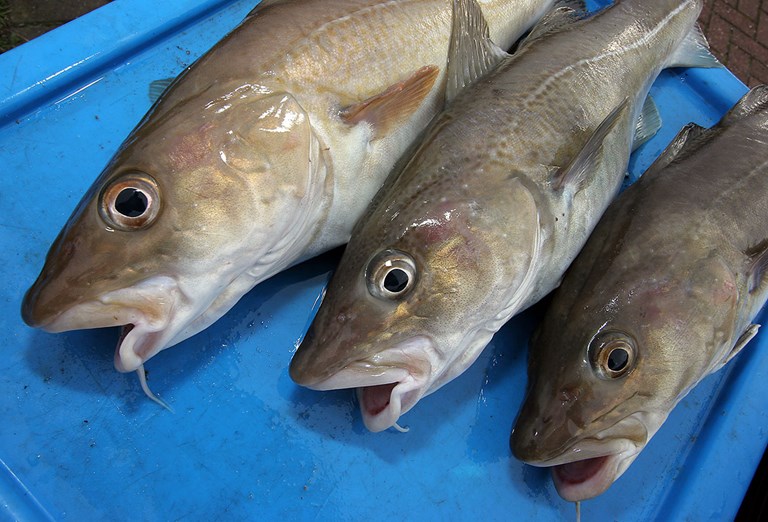
The sector requests the full cod quota allocation of 24,600 tons in the Fisheries Council of 21-22 March 2022.

The European fisheries sector met this morning with Commissioner Sinkevičius in view of the sharp rise in energy and logistics prices due to the invasion of Ukraine. If the activity collapses, there could be problems with the supply of fishery products in a matter of weeks.

Yesterday, during the meeting of the Social Dialogue Committee for Sea Fisheries, the Social Partners – ETF, Europêche and Copa-Cogeca – adopted a joint resolution on the situation of fisheries in the Mediterranean. The sector representatives seized the opportunity to call upon the European Commission to propose balanced measures that secure a future for fishermen, coastal communities and fishing resources alike in the Mediterranean Sea.

Today, an alliance of fishing organizations from 14 EU countries [1] representing over 22 000 fishermen and 8 000 vessels, presented to Fisheries Commissioner Sinkevicius the importance and realities of bottom fishing activities across Europe. The meeting was requested by the industry due to the negative perception expressed by the Commission towards certain bottom gears and against the background of the Action Plan that the Commission is developing to further protect fisheries resources and marine ecosystems in the context of EU’s 2030 Biodiversity Strategy. The industry showcased the sustainability and overall importance of these widespread fishing methods in all EU member states and demonstrated that these fisheries are well regulated, controlled, researched and widely certified.